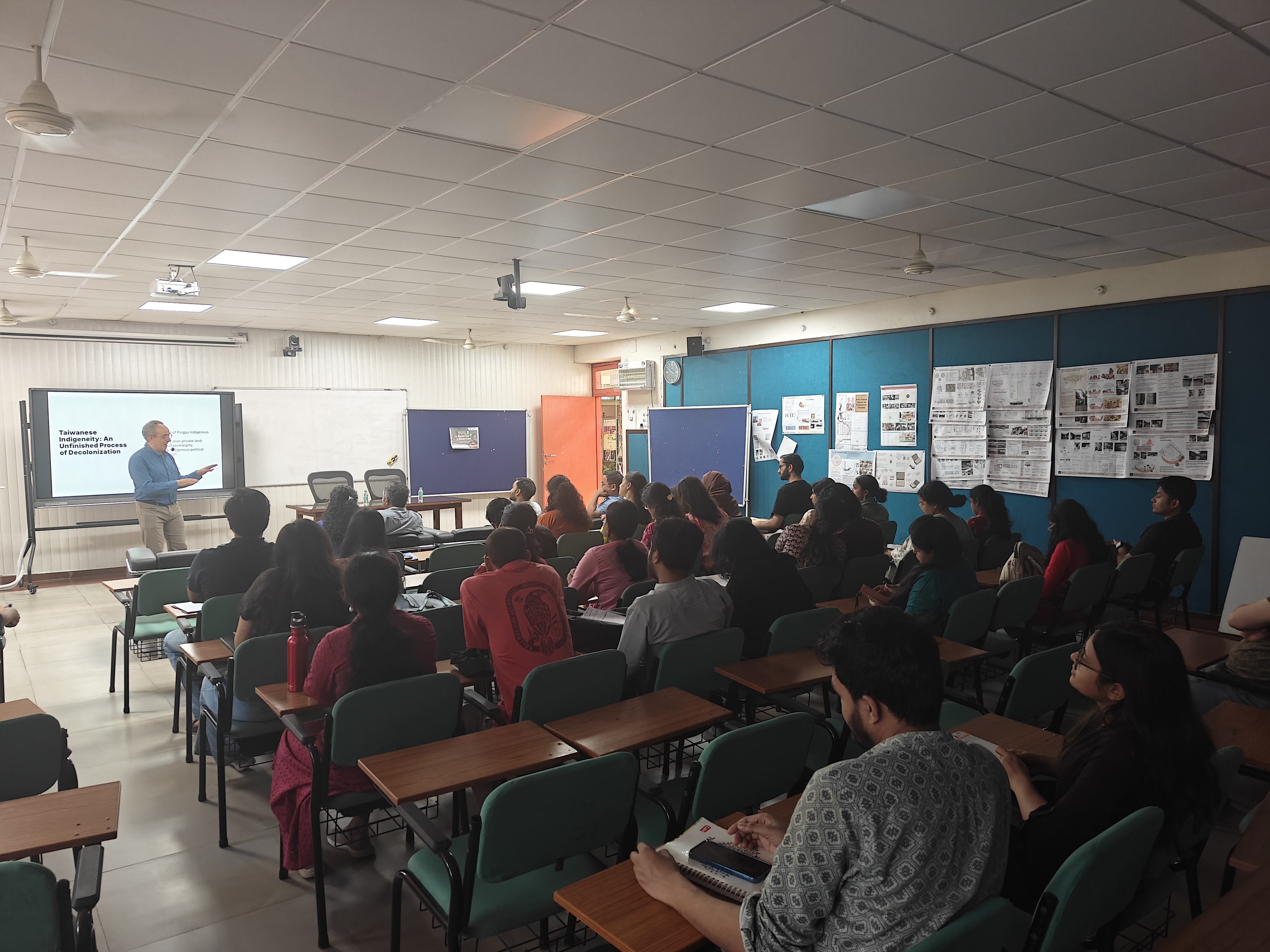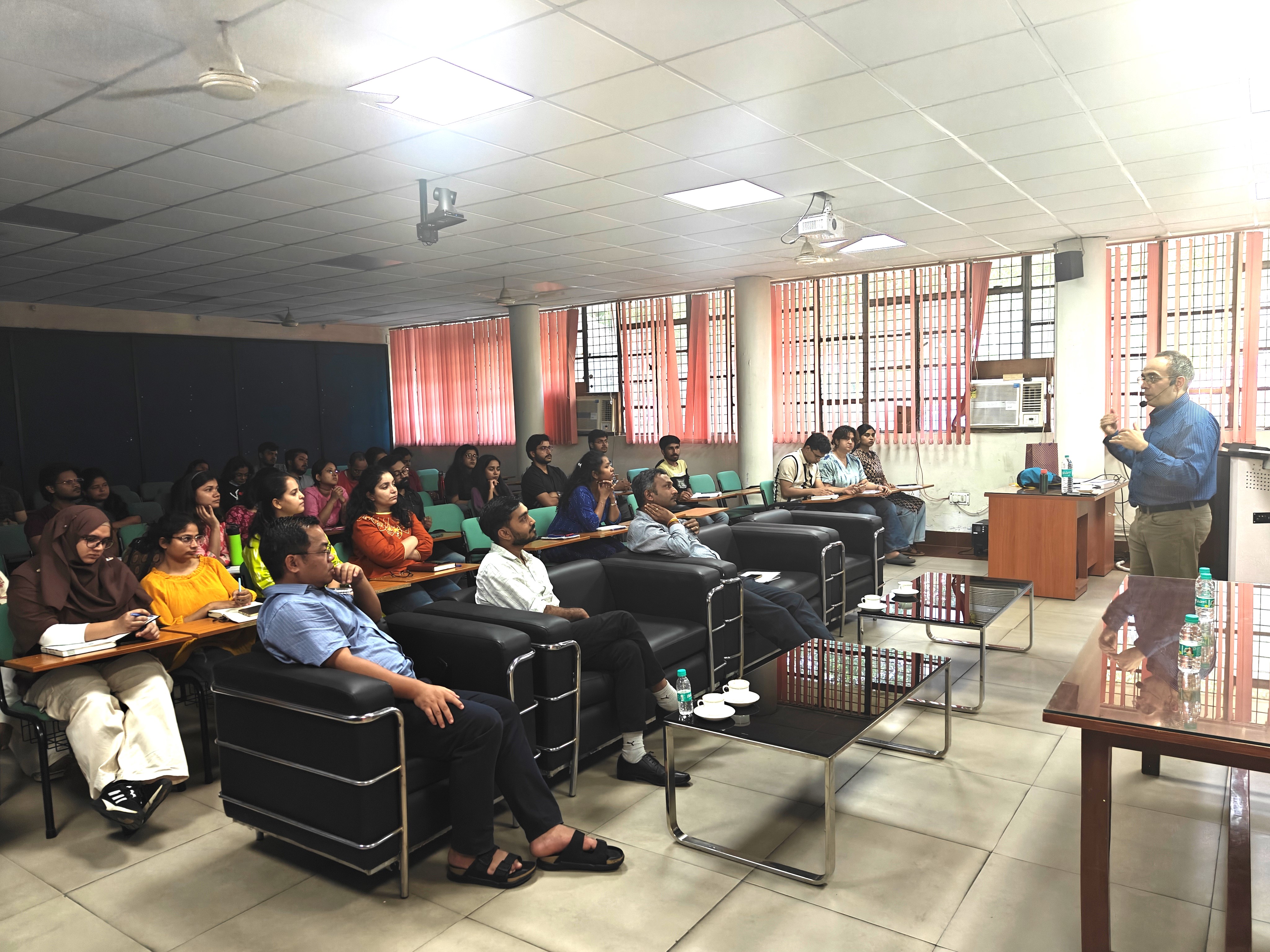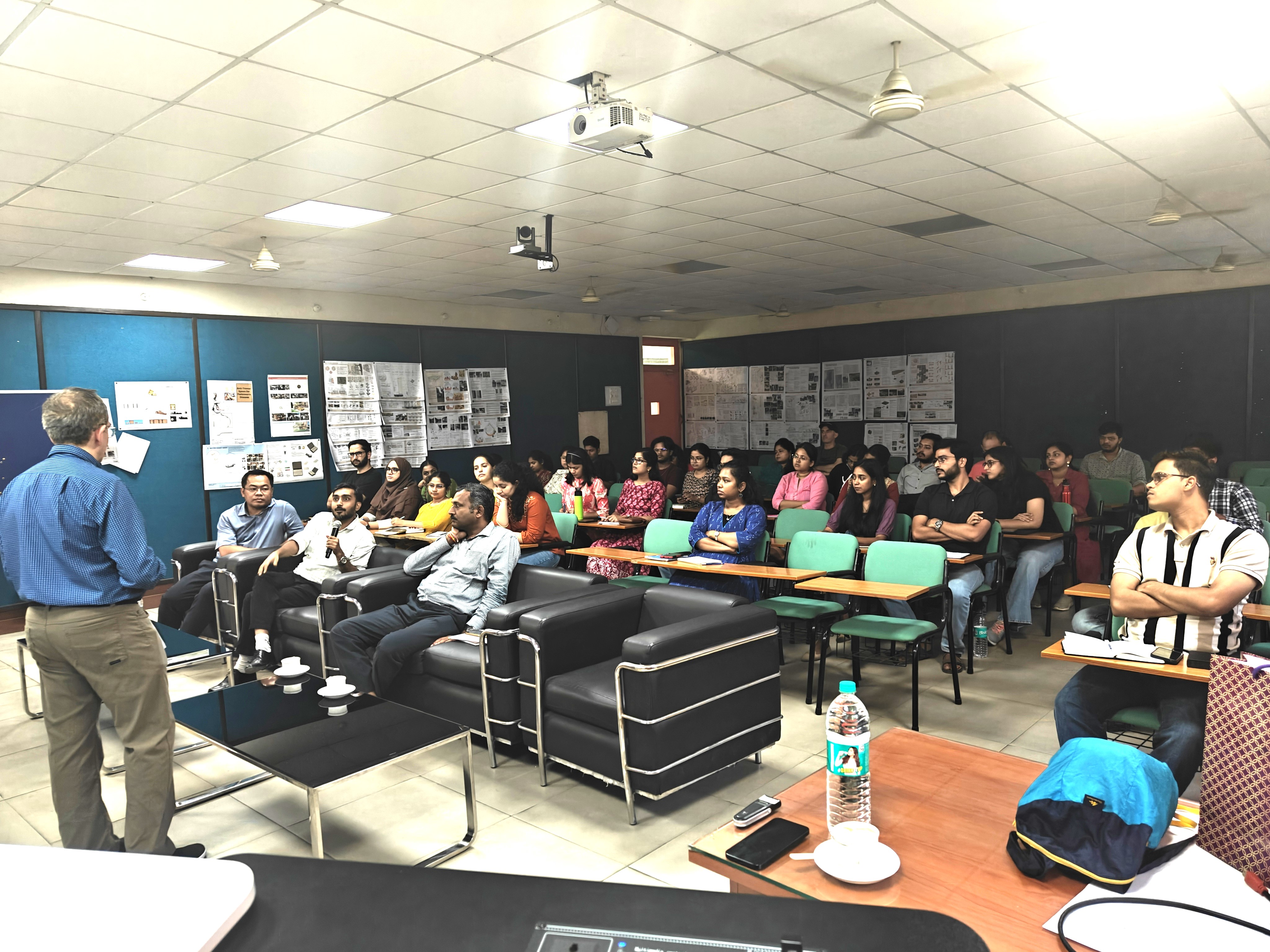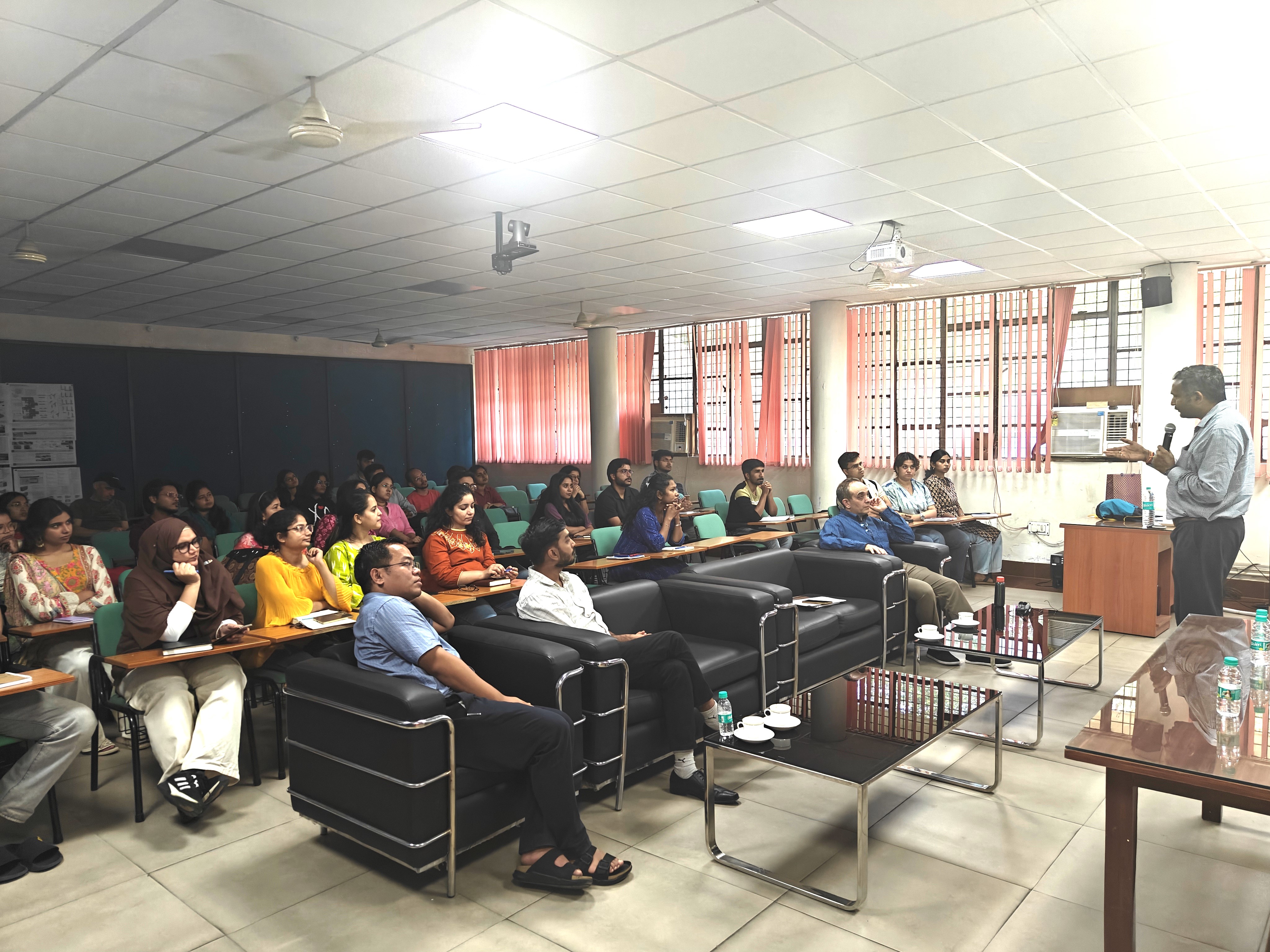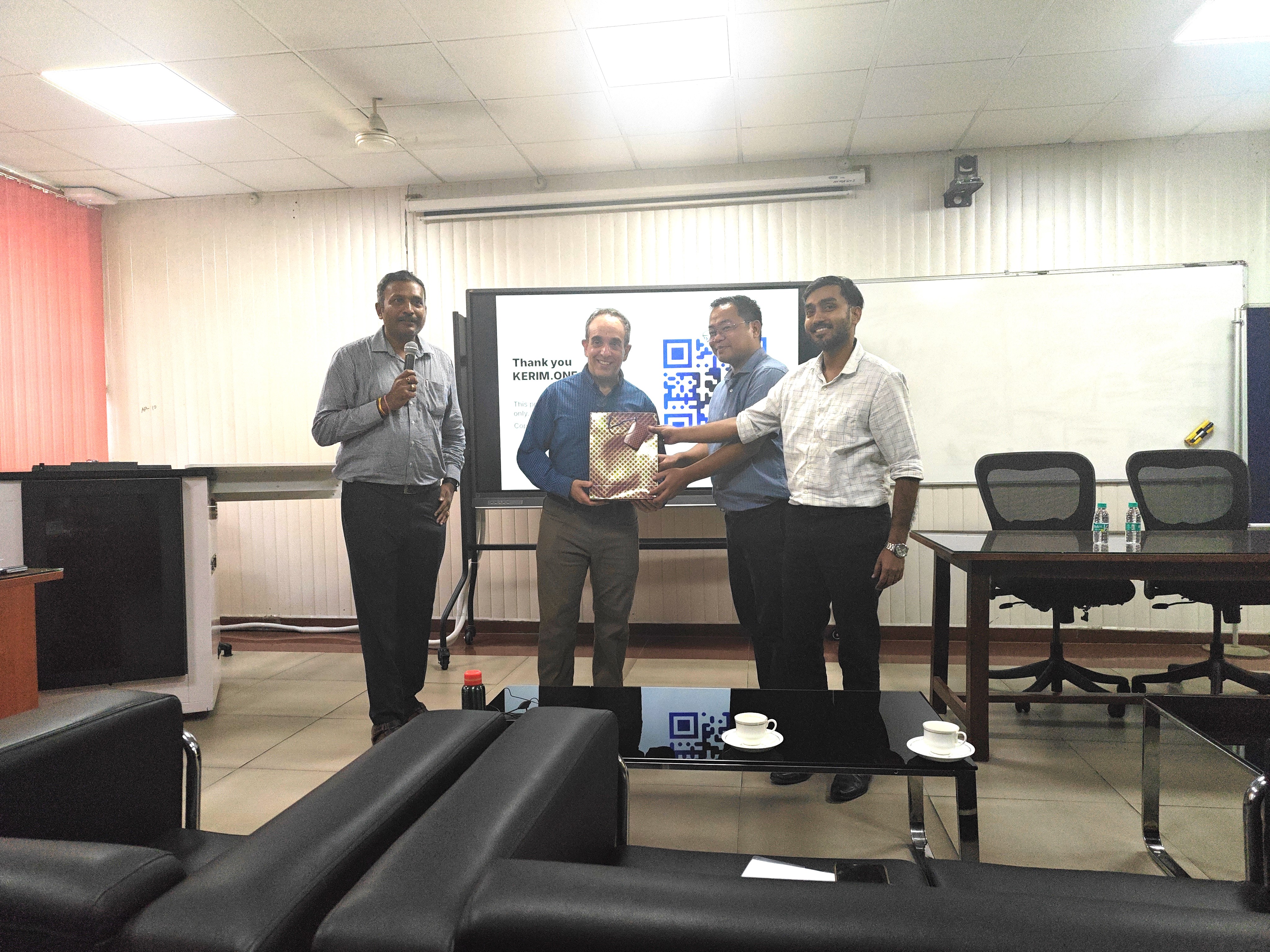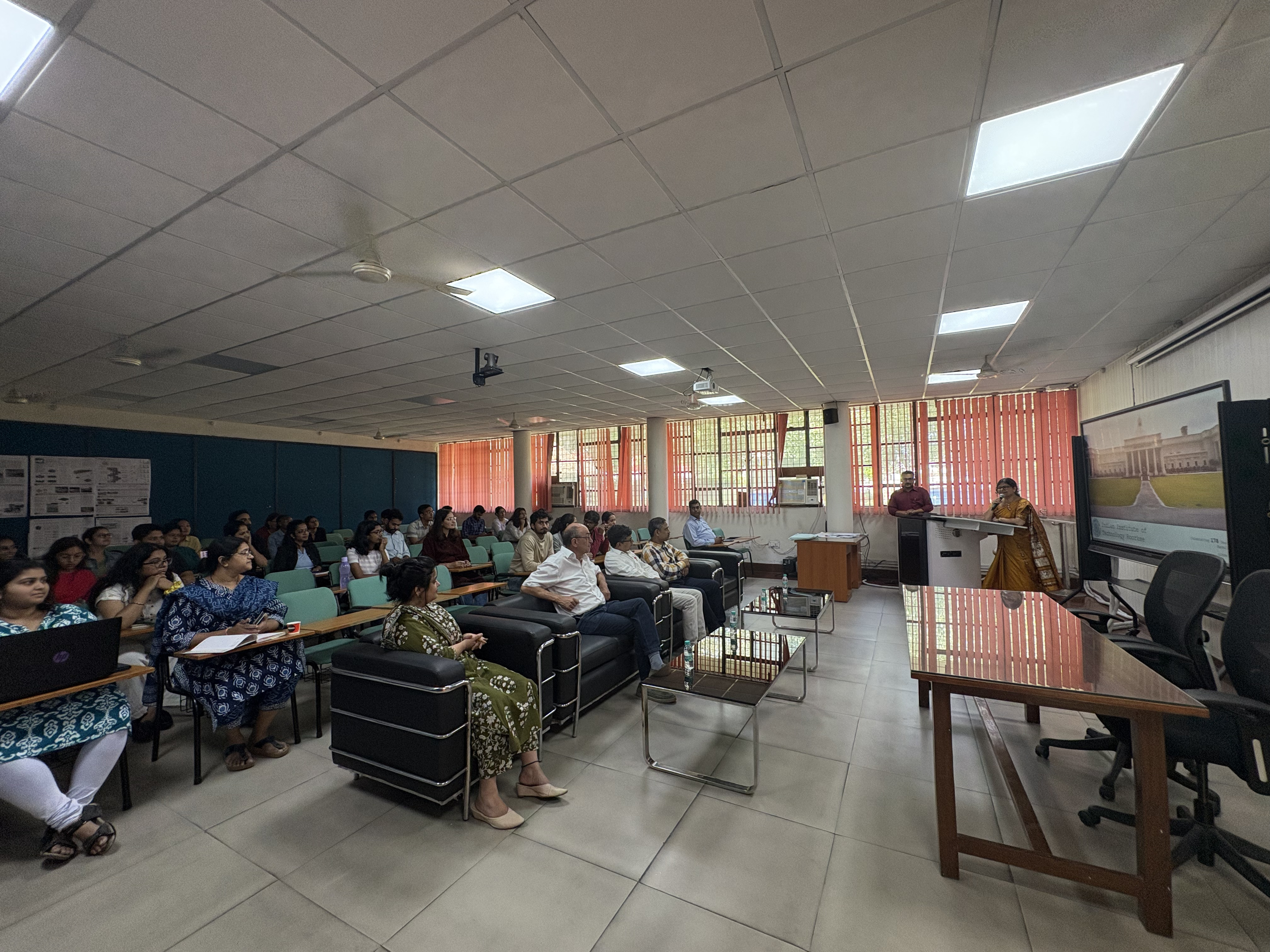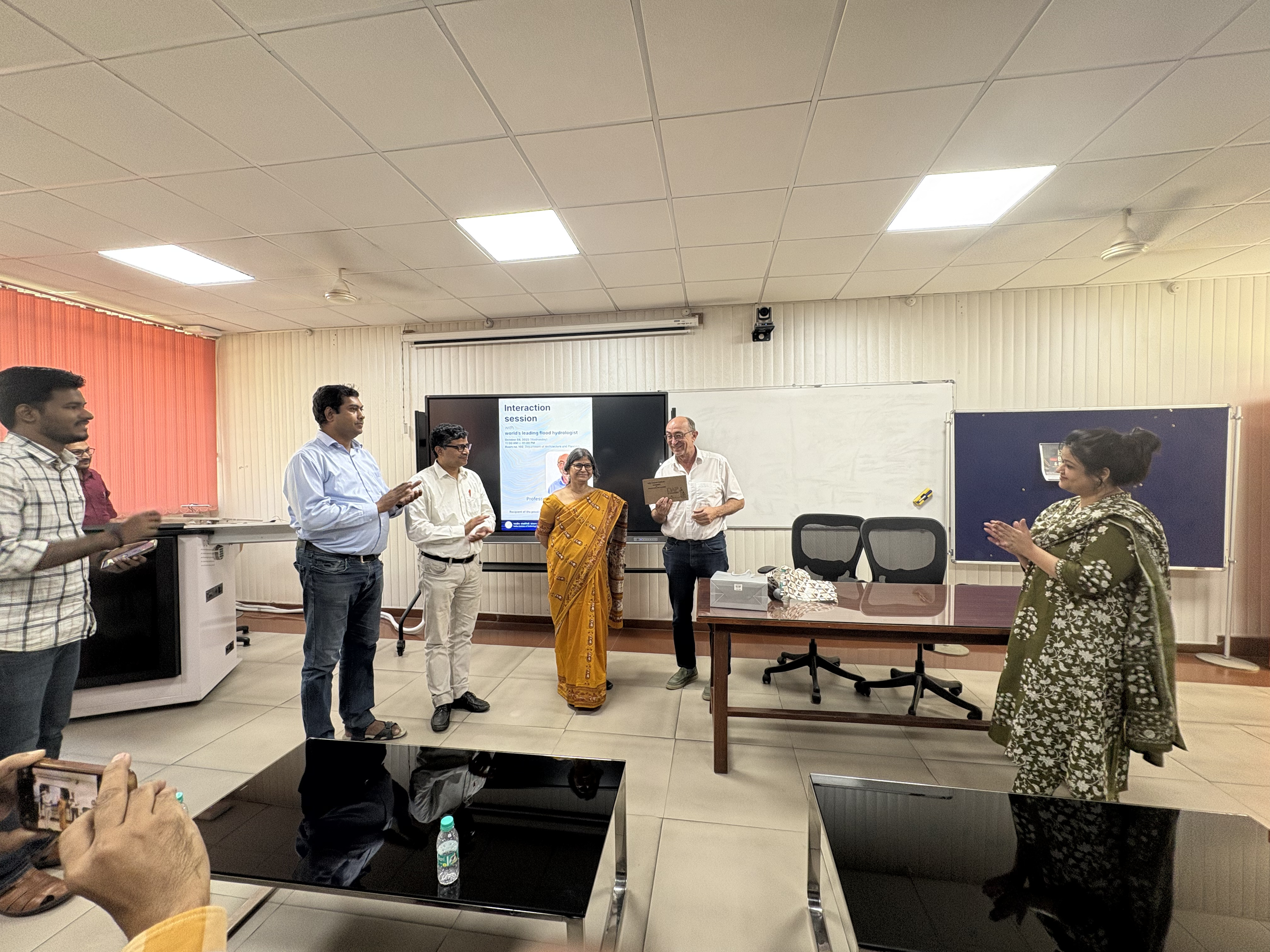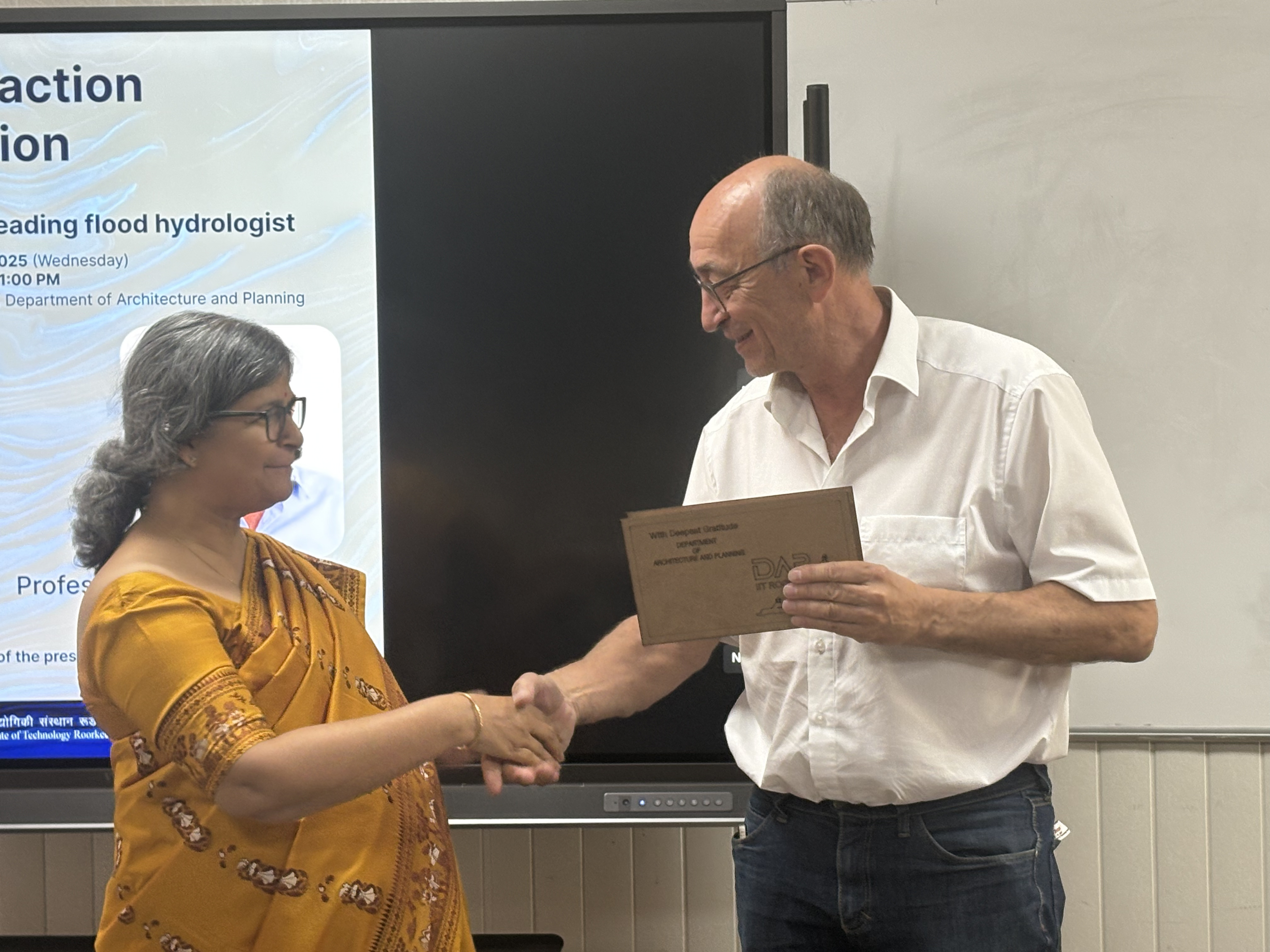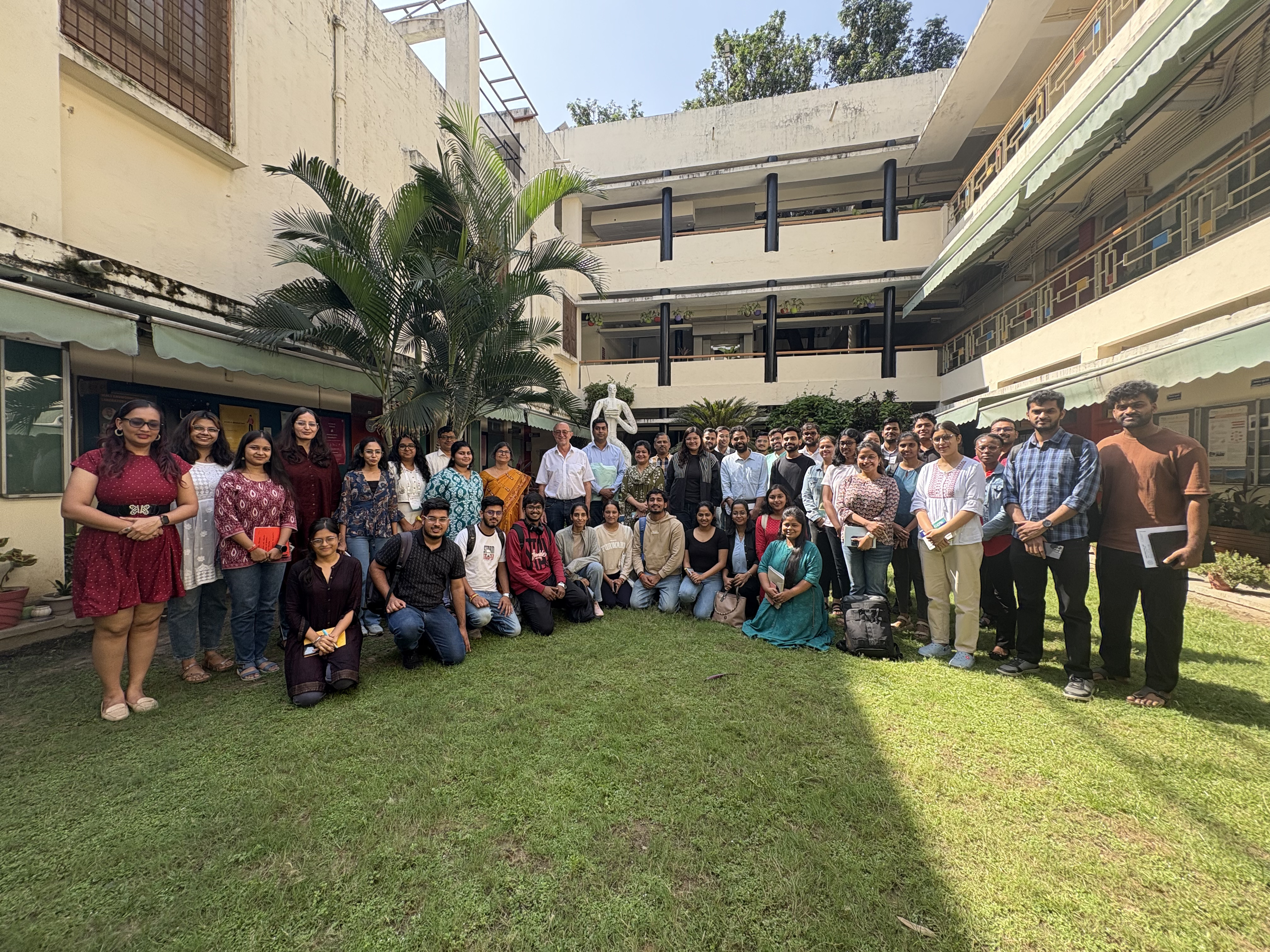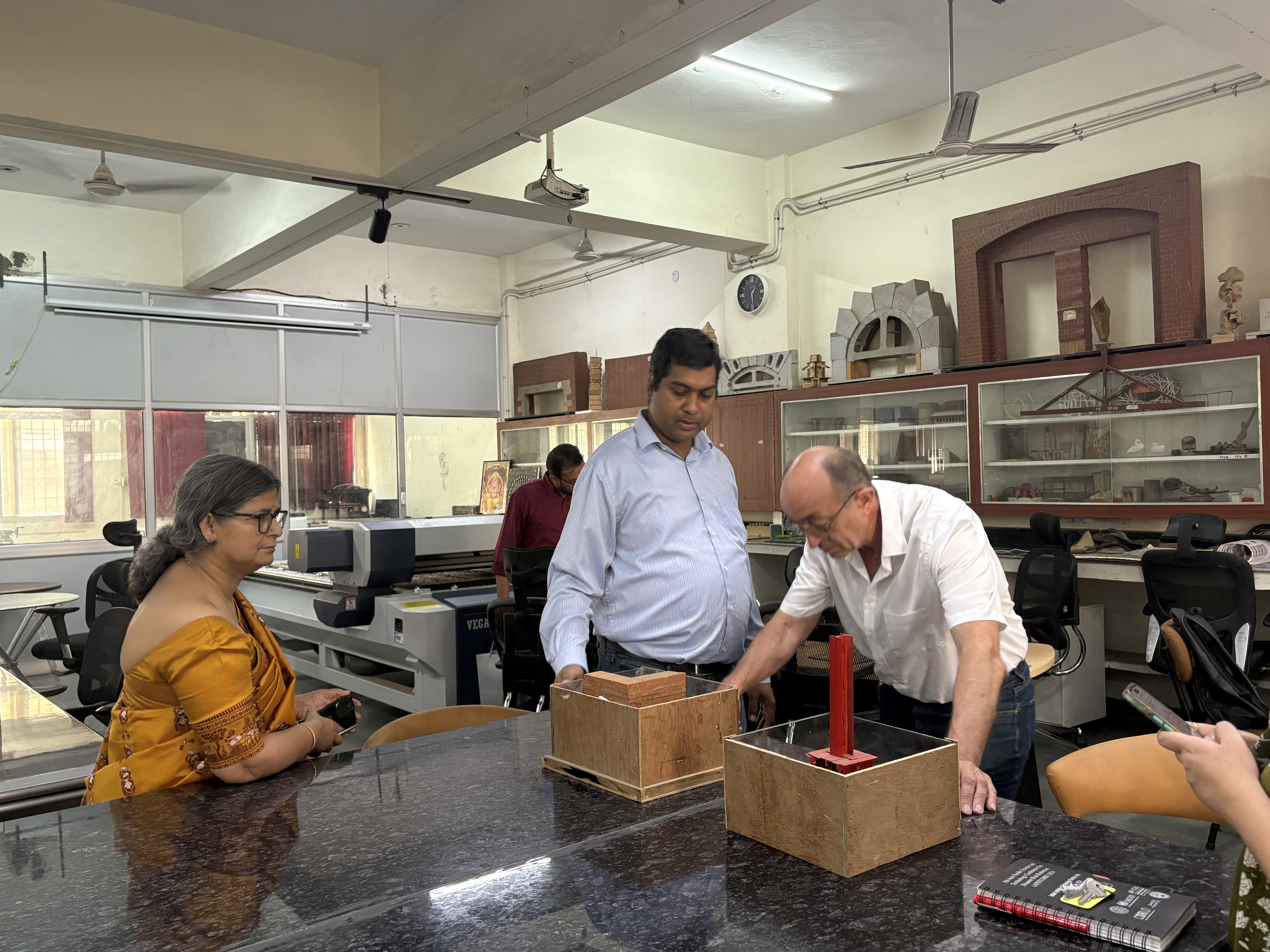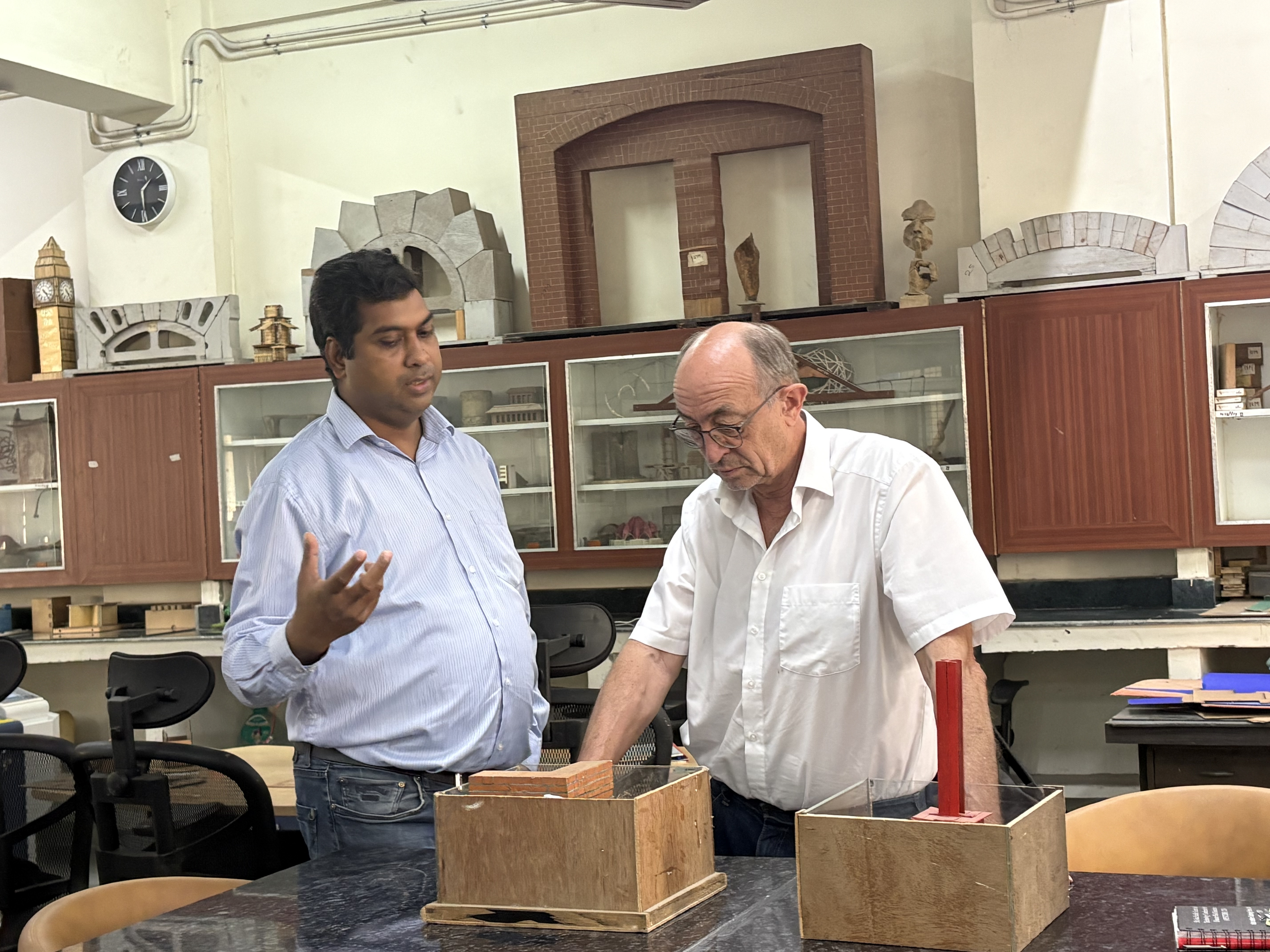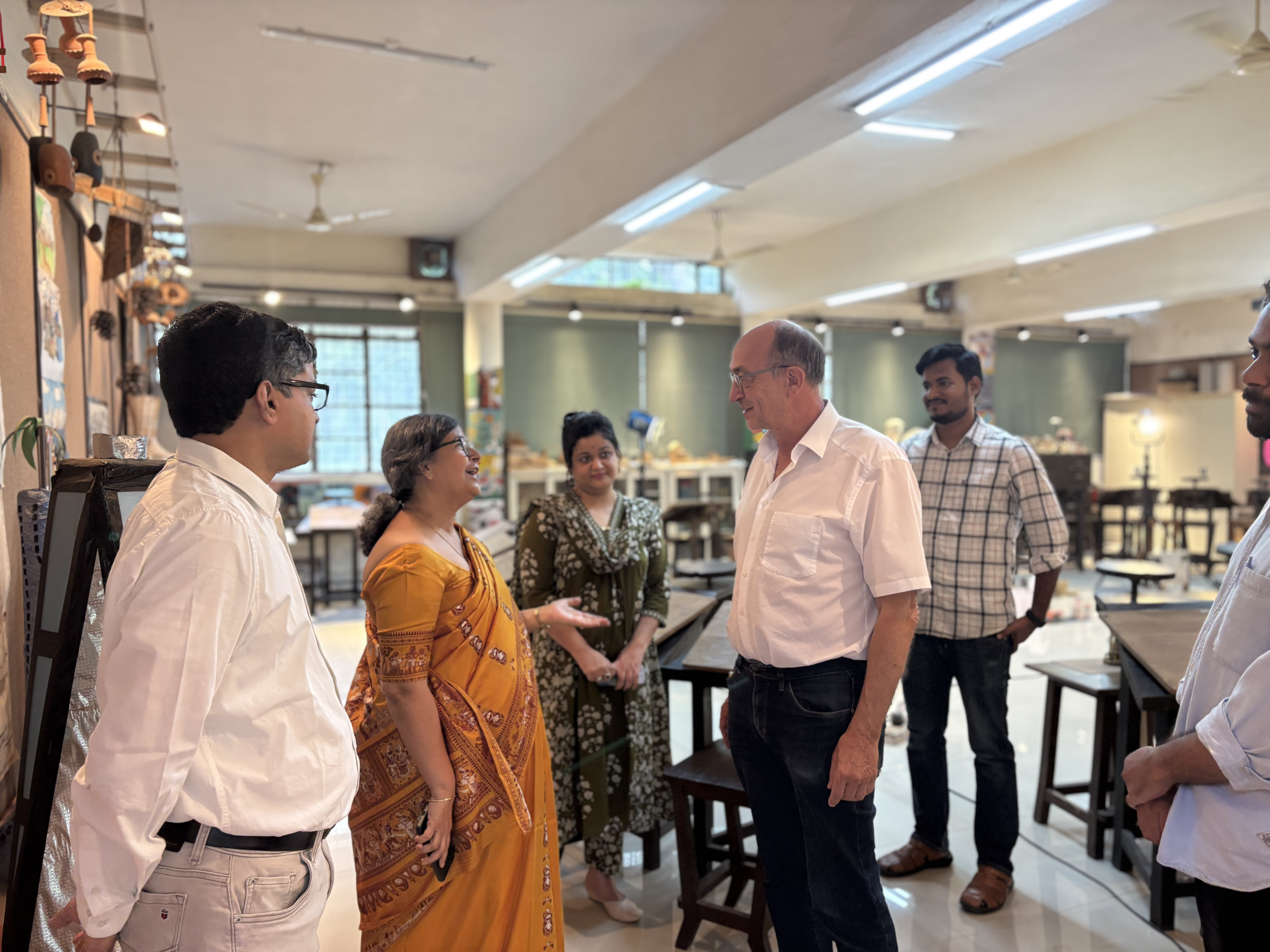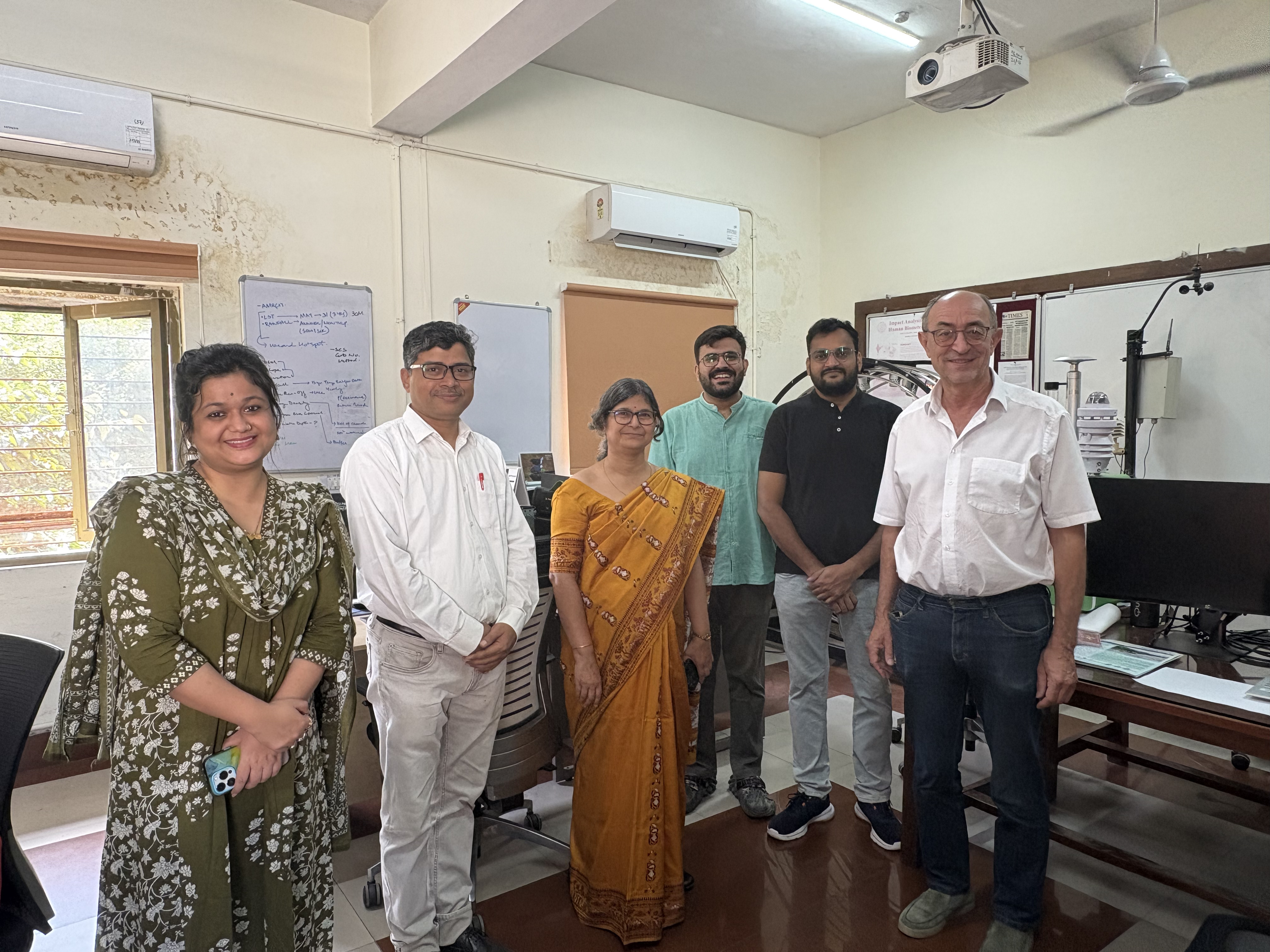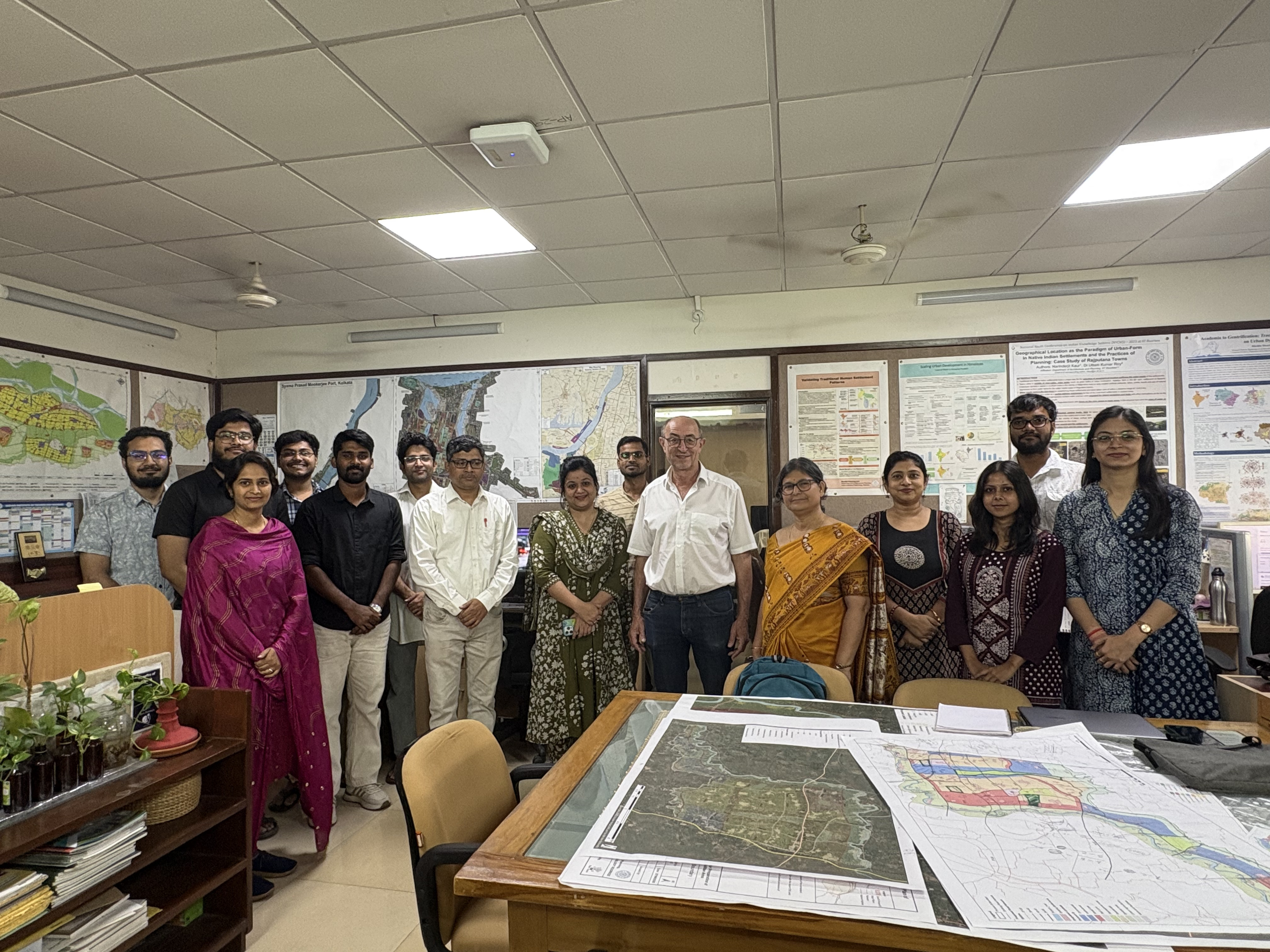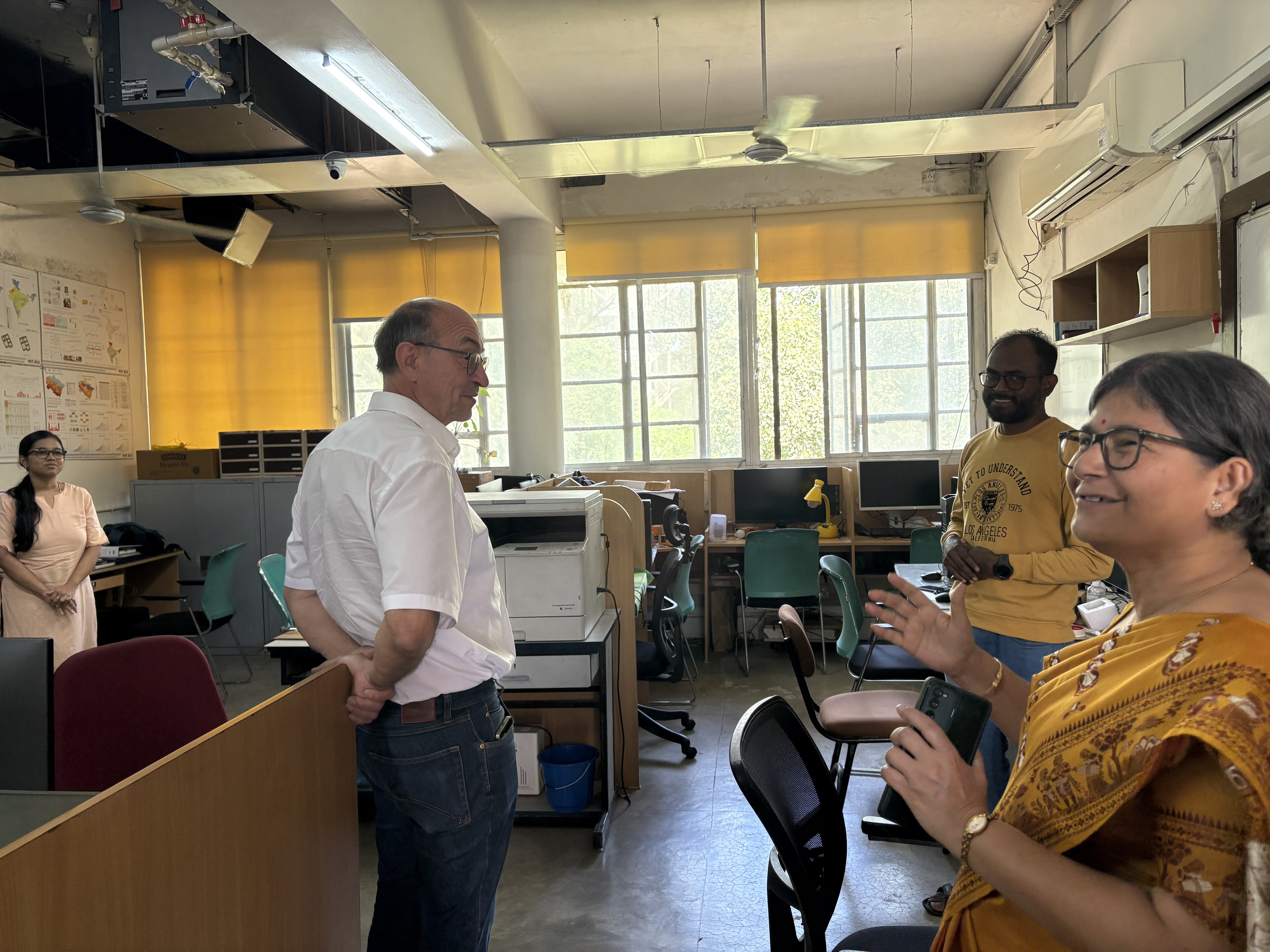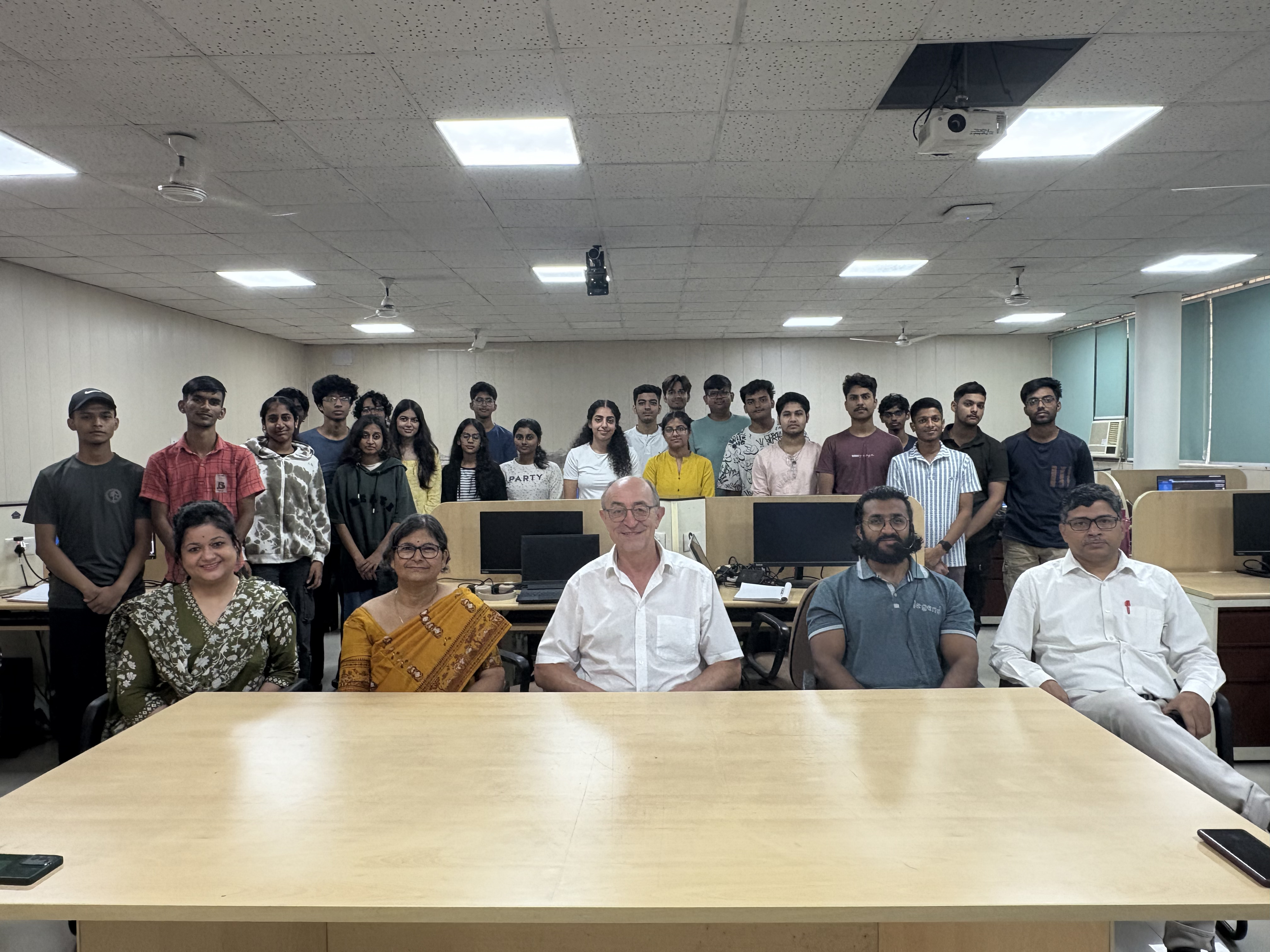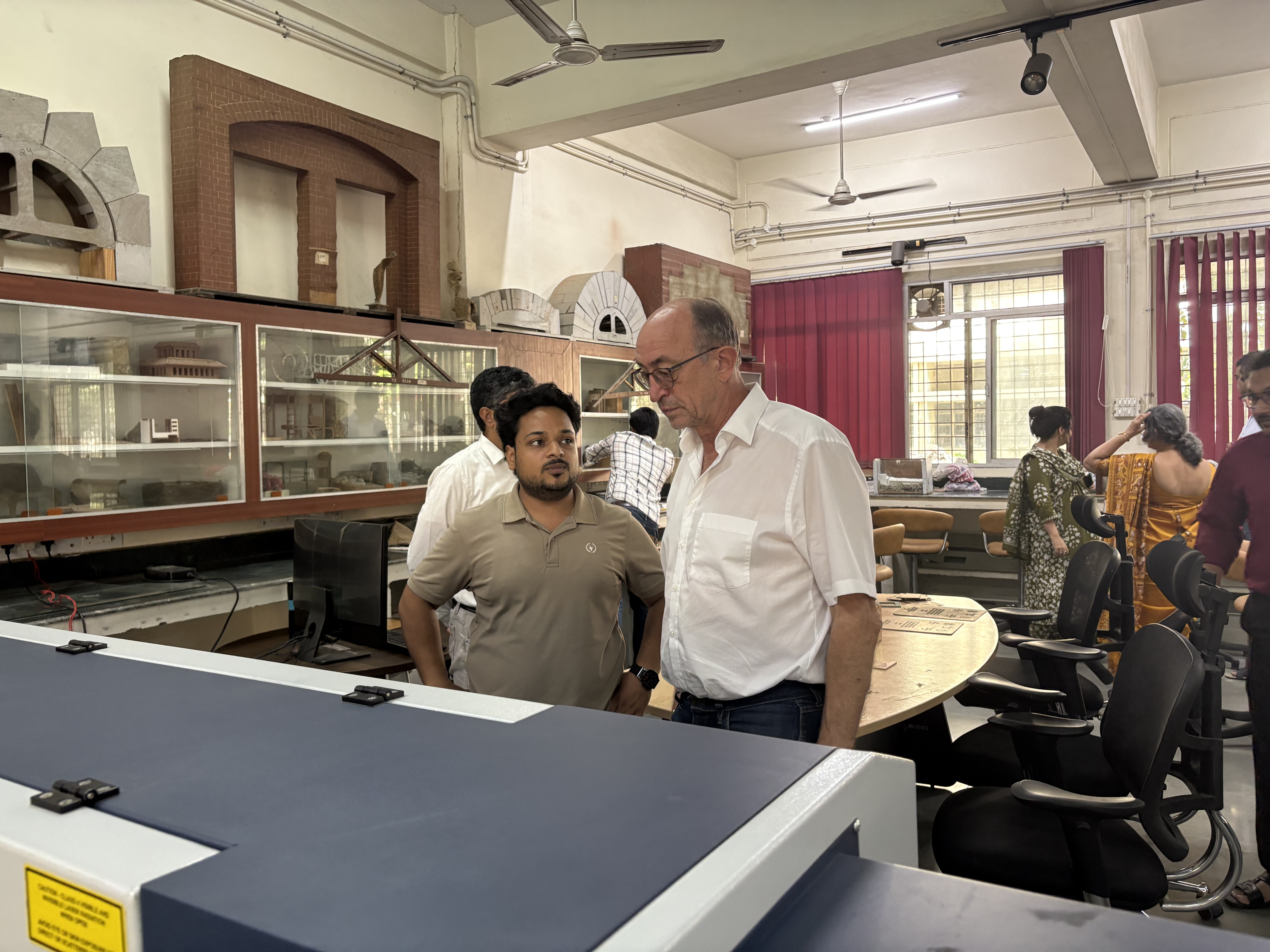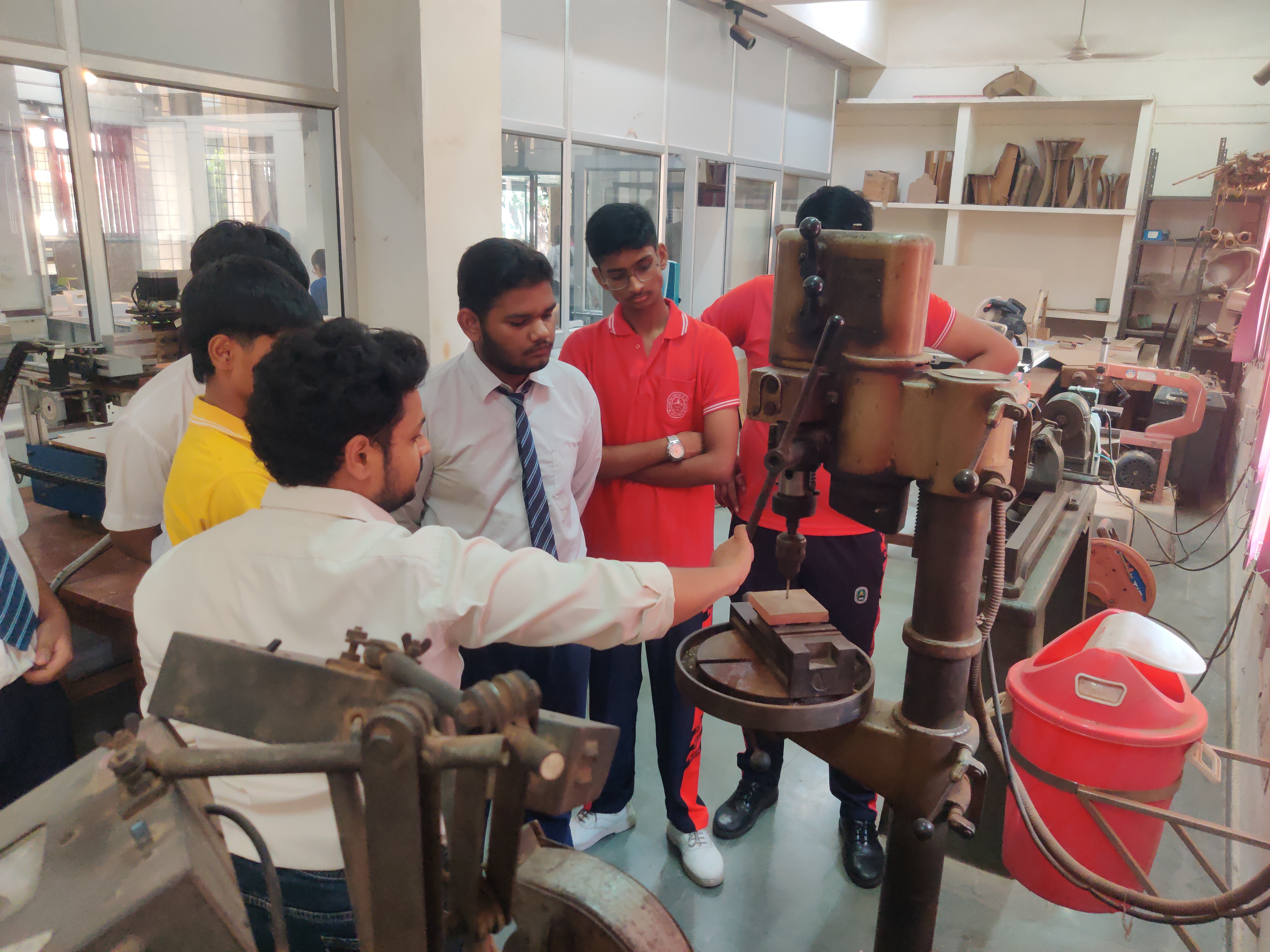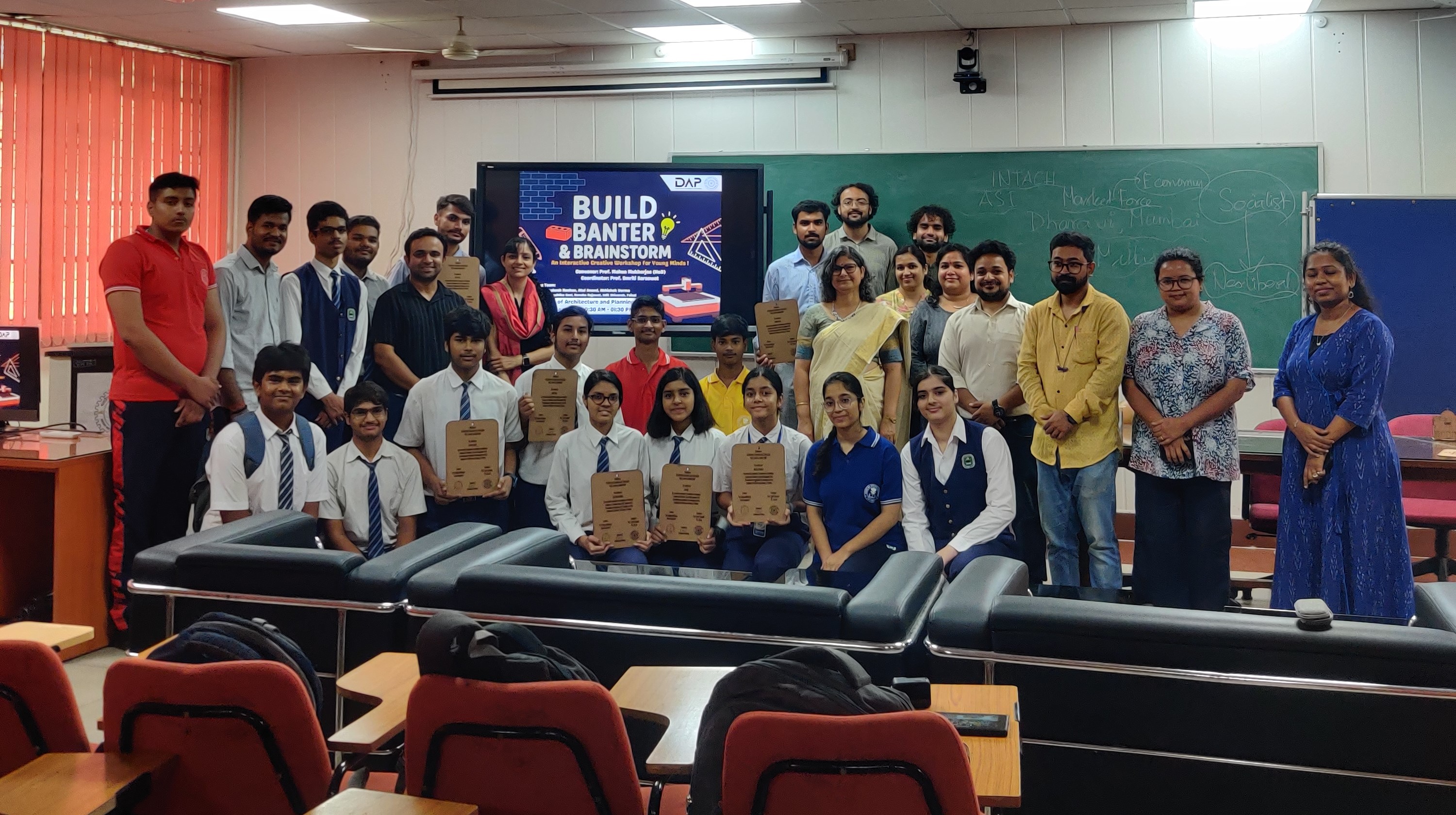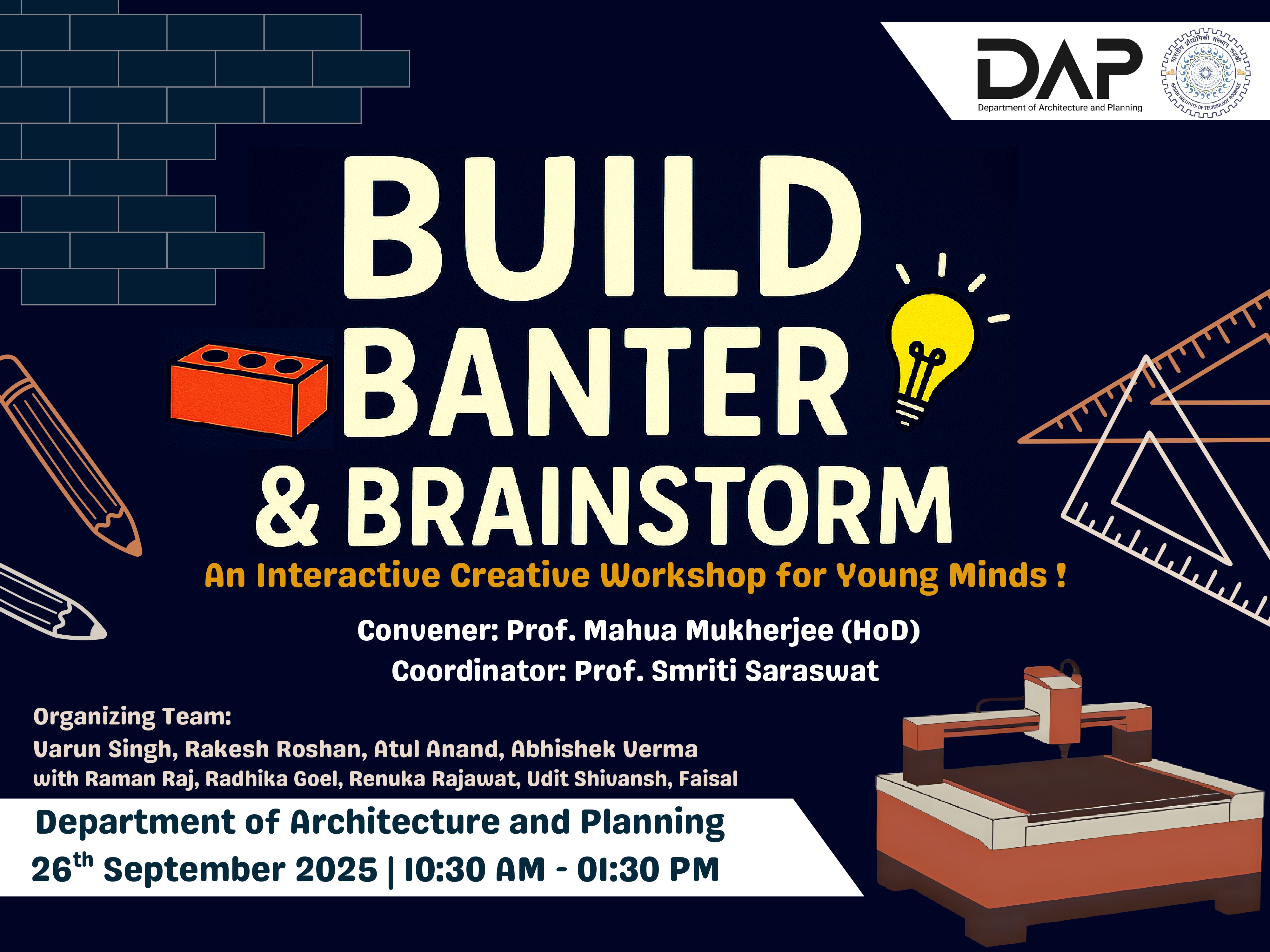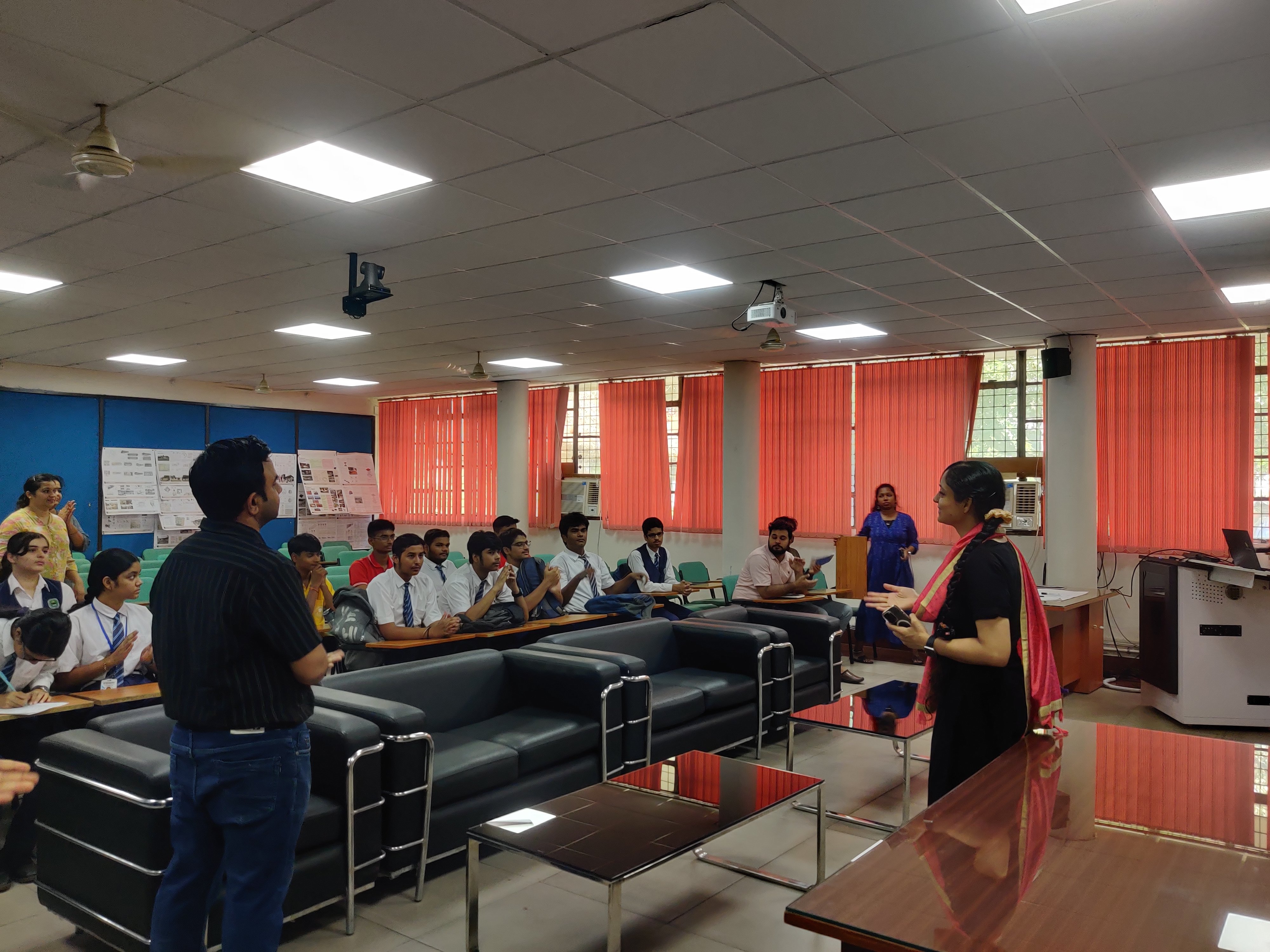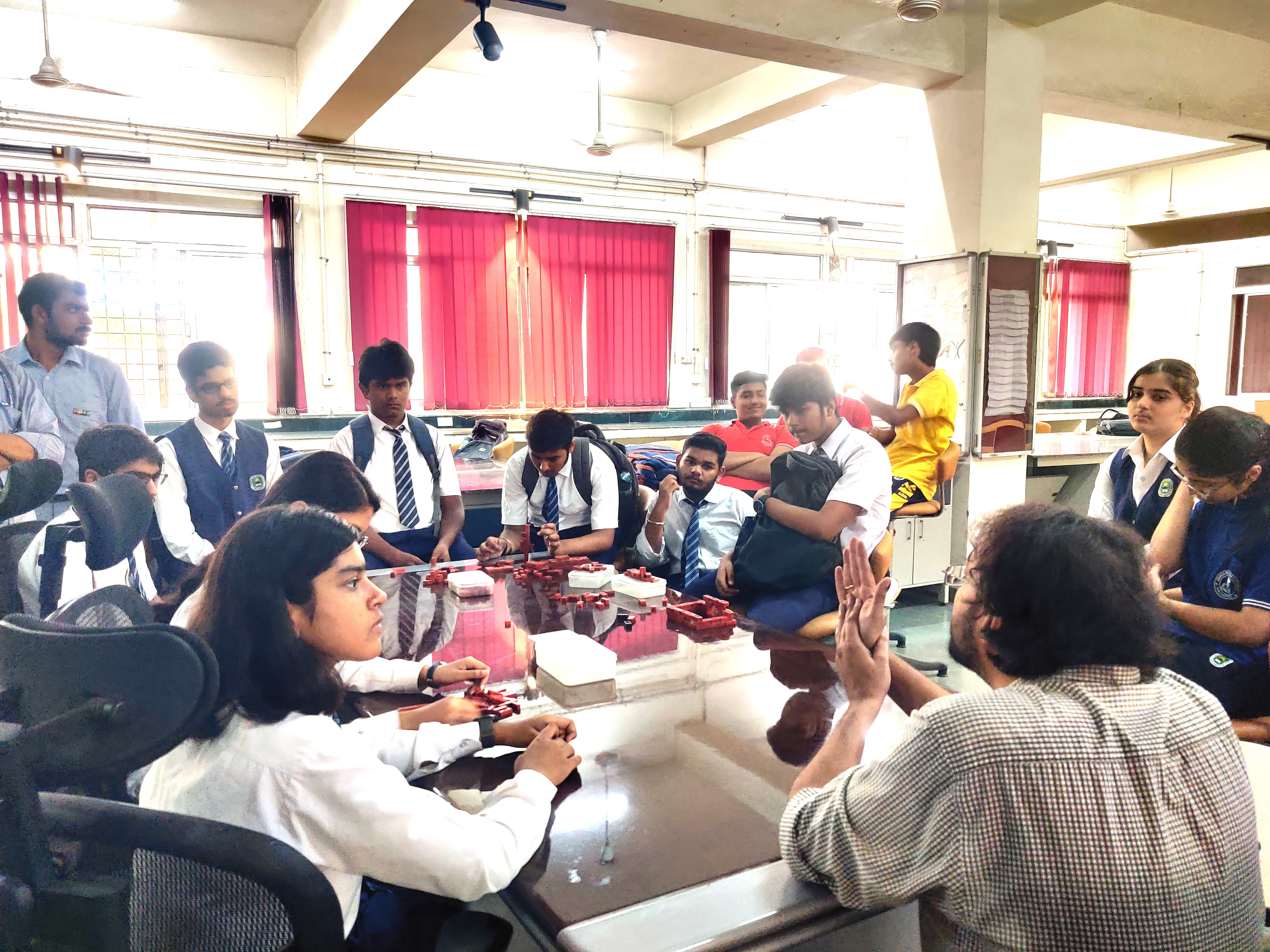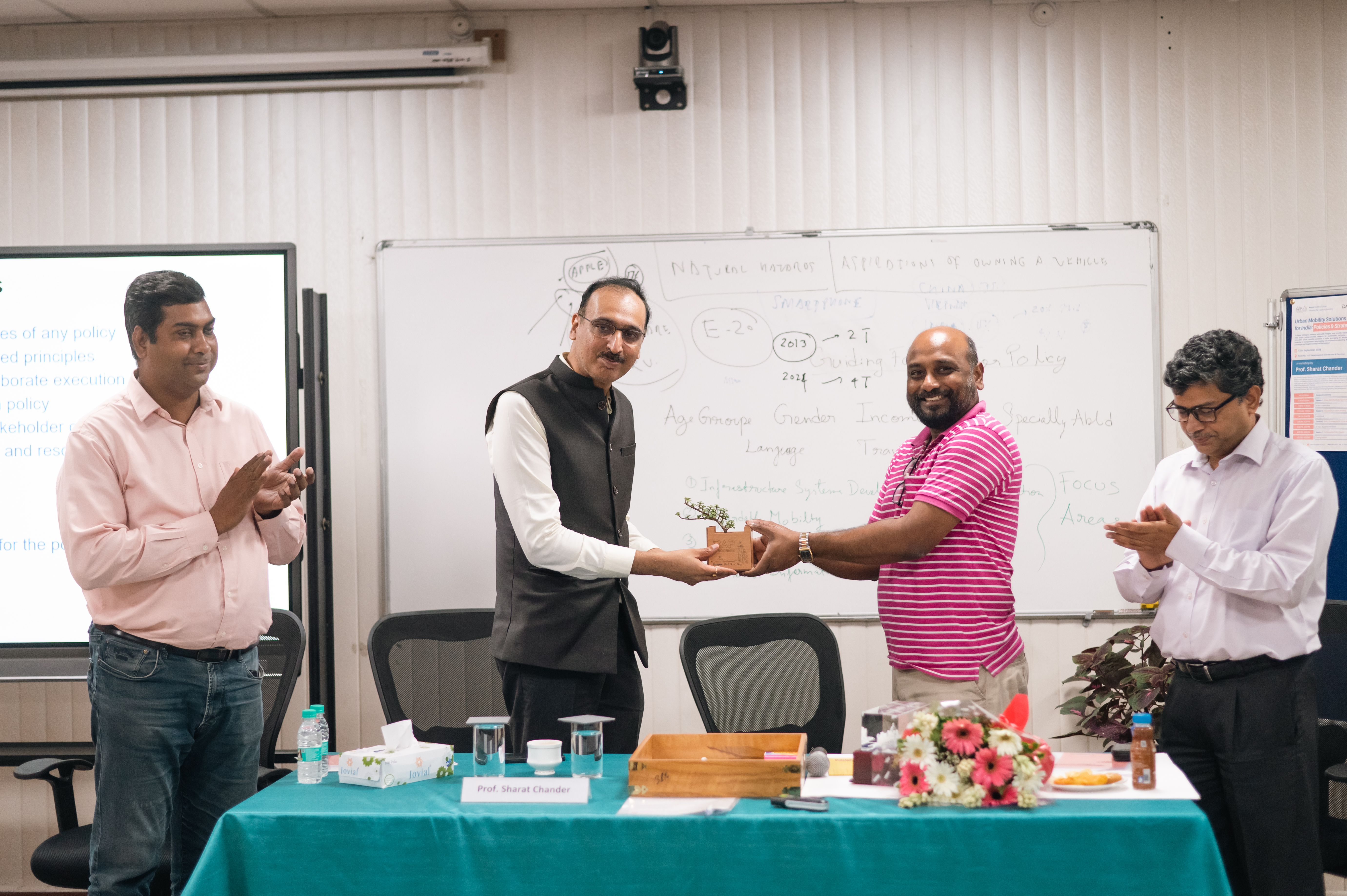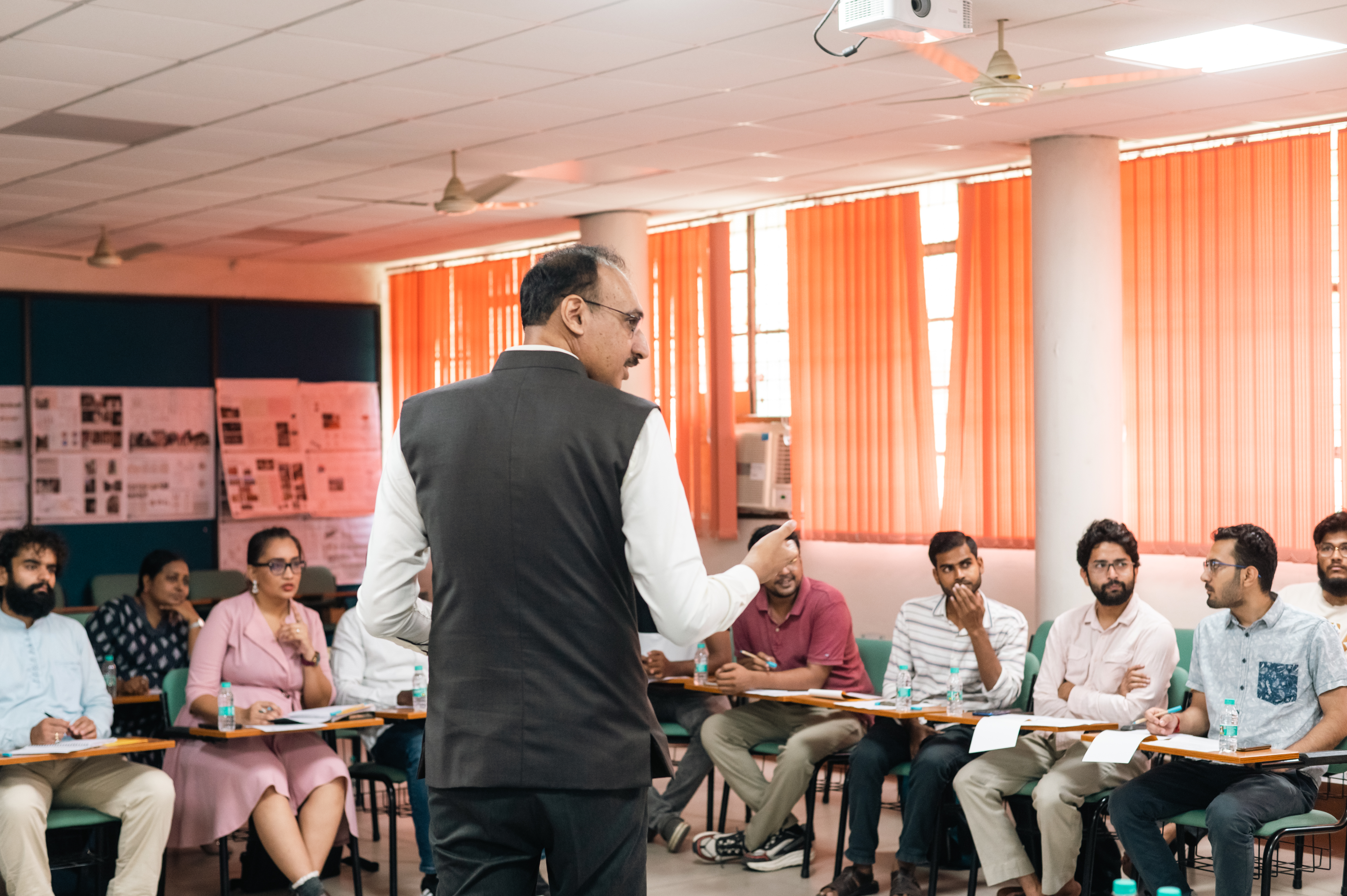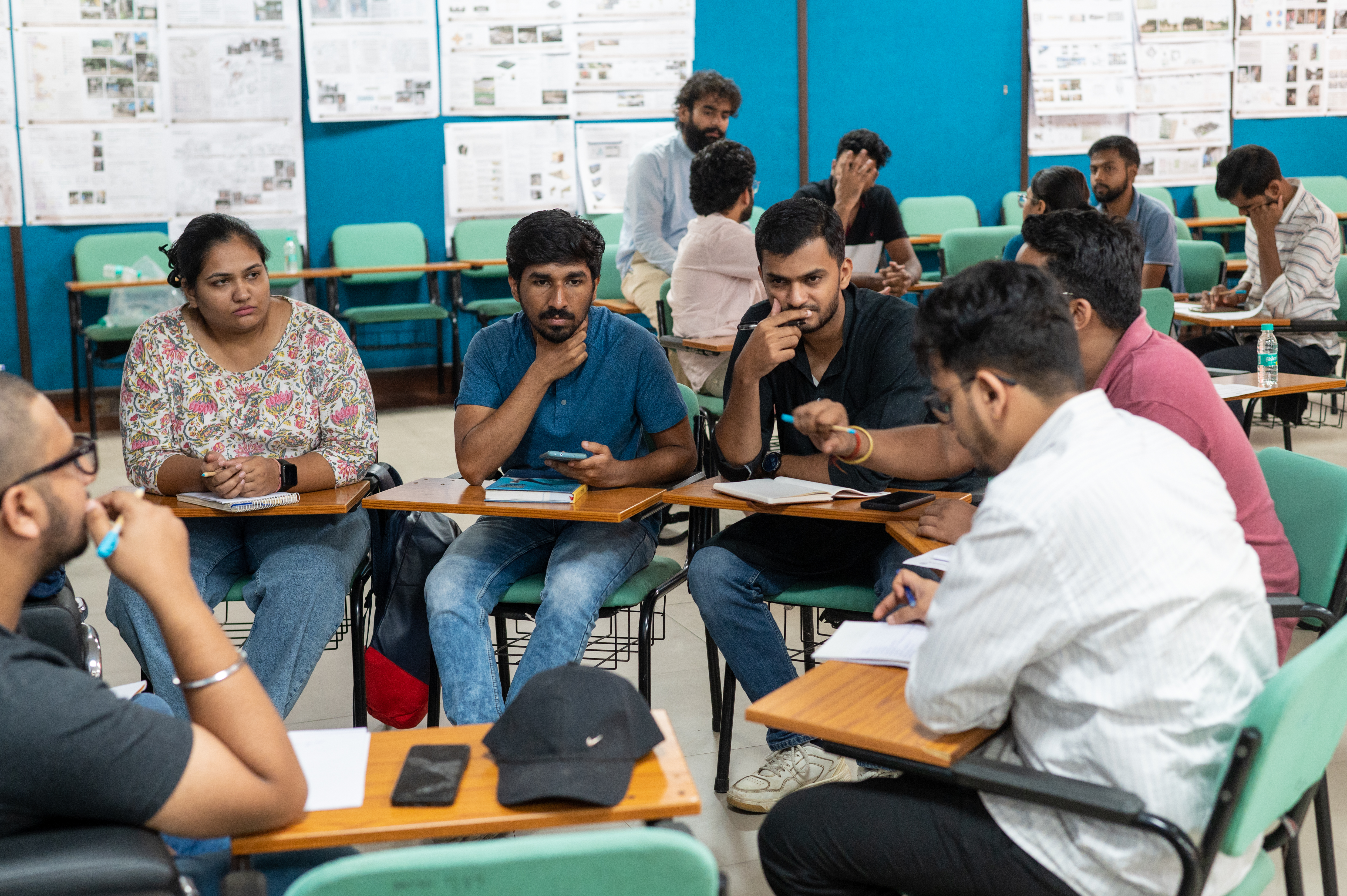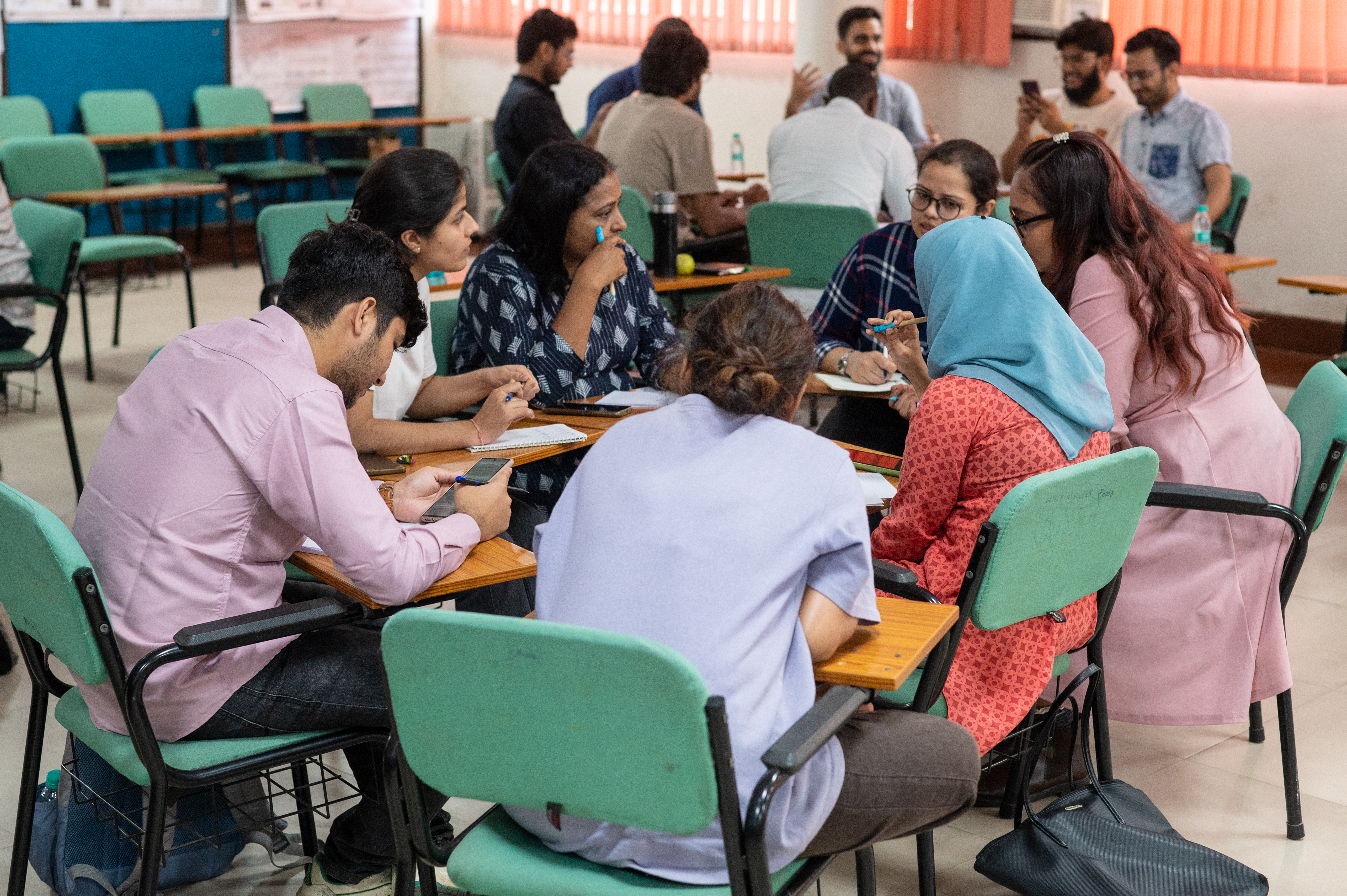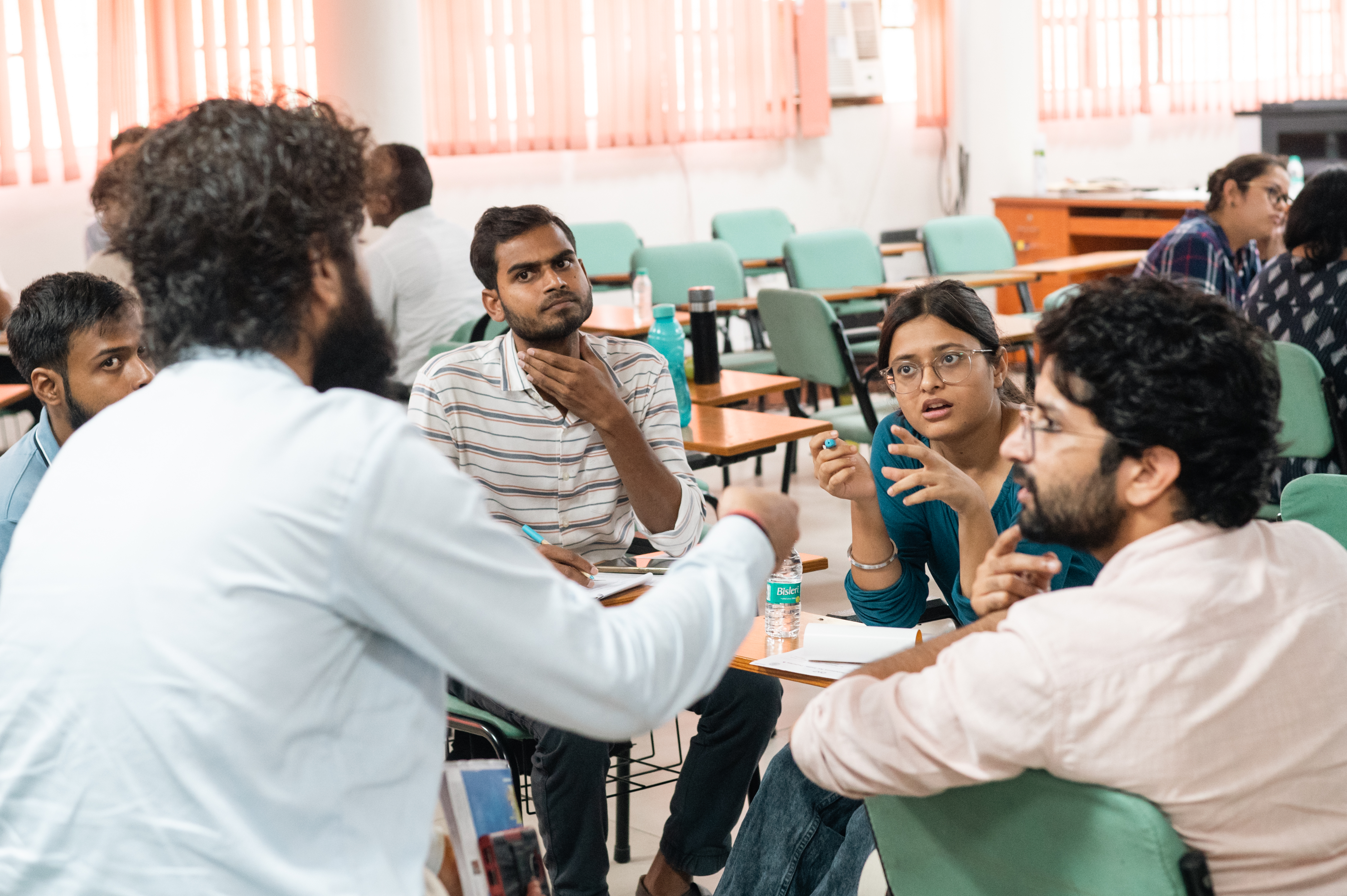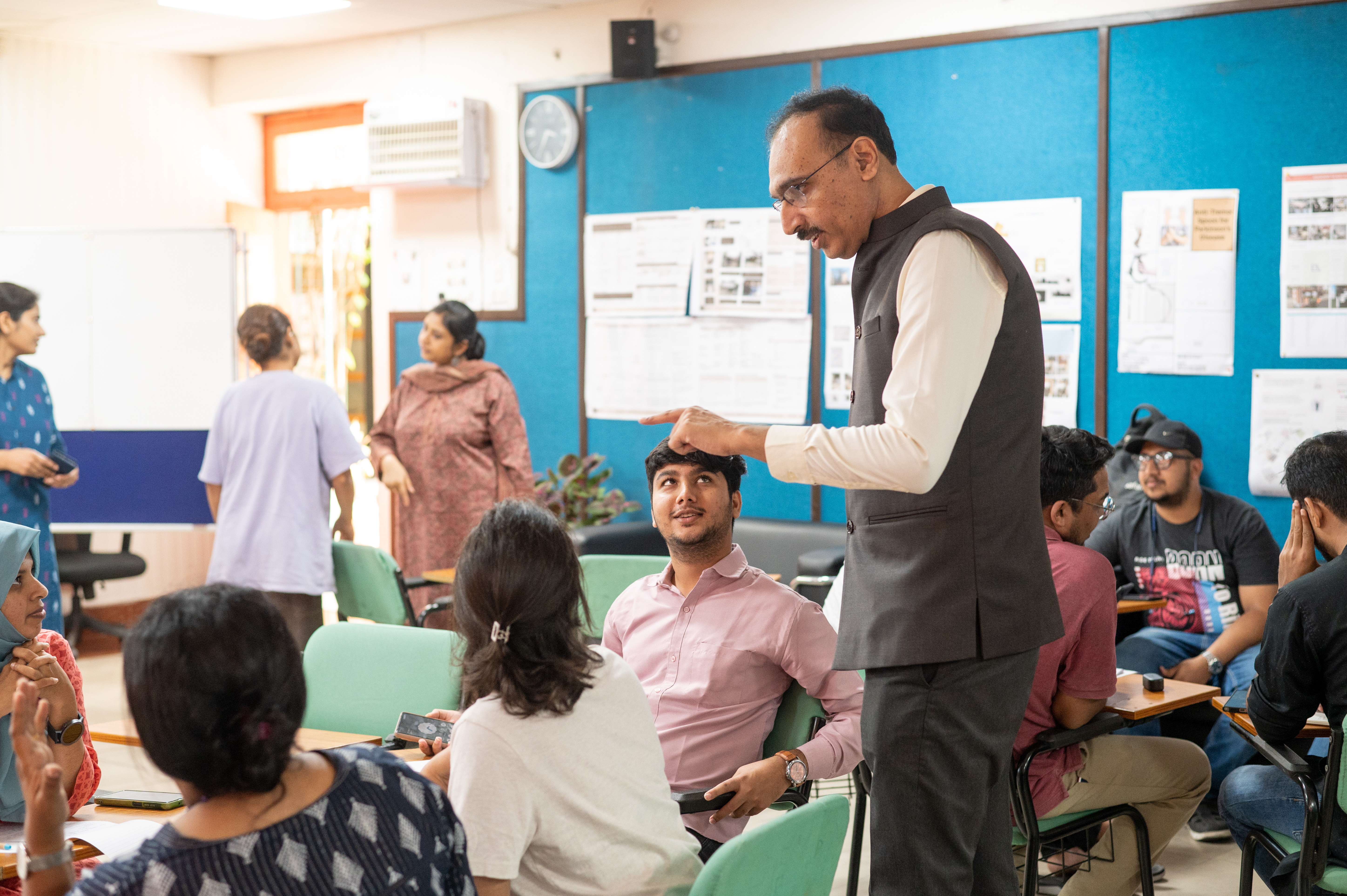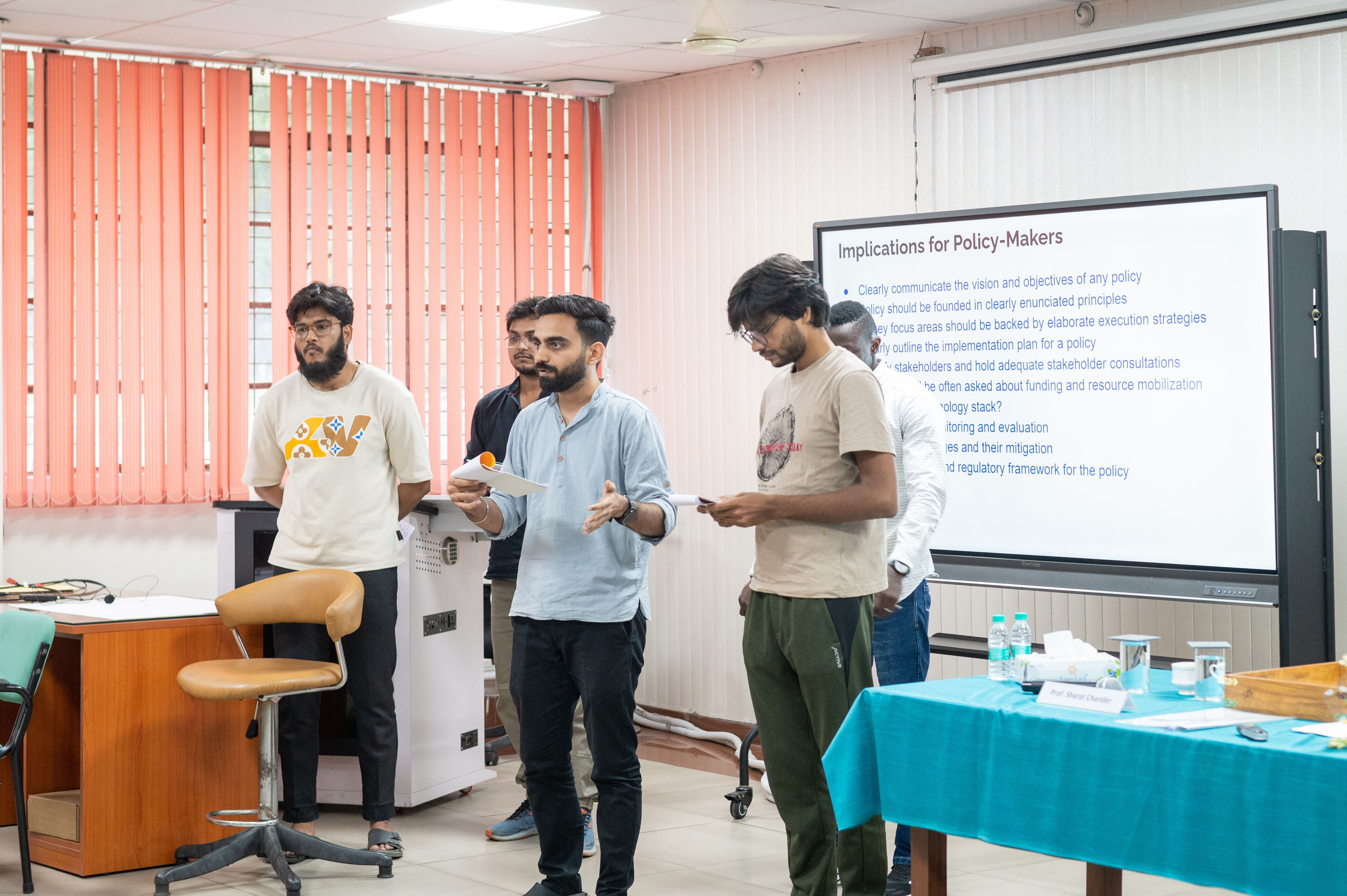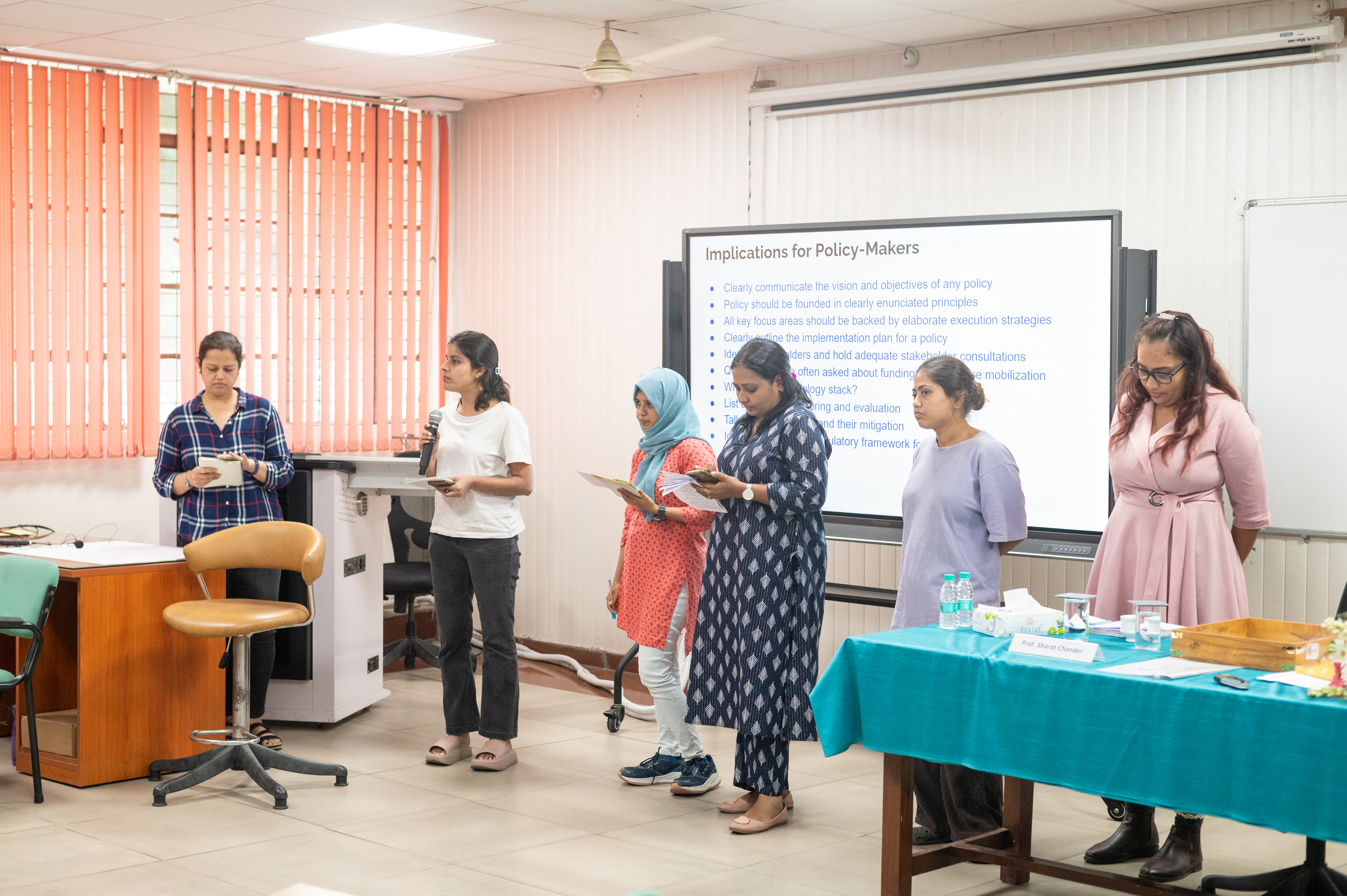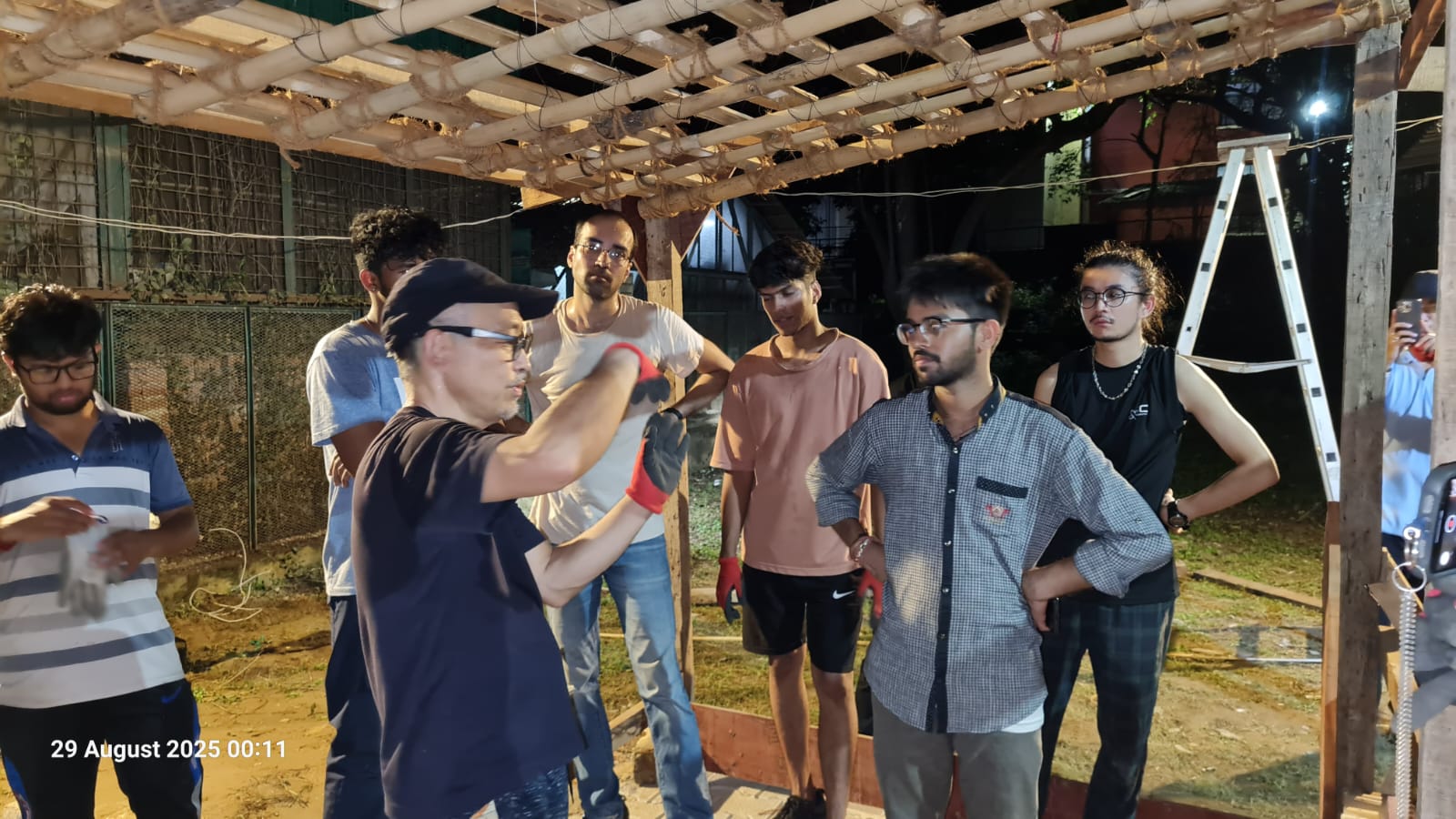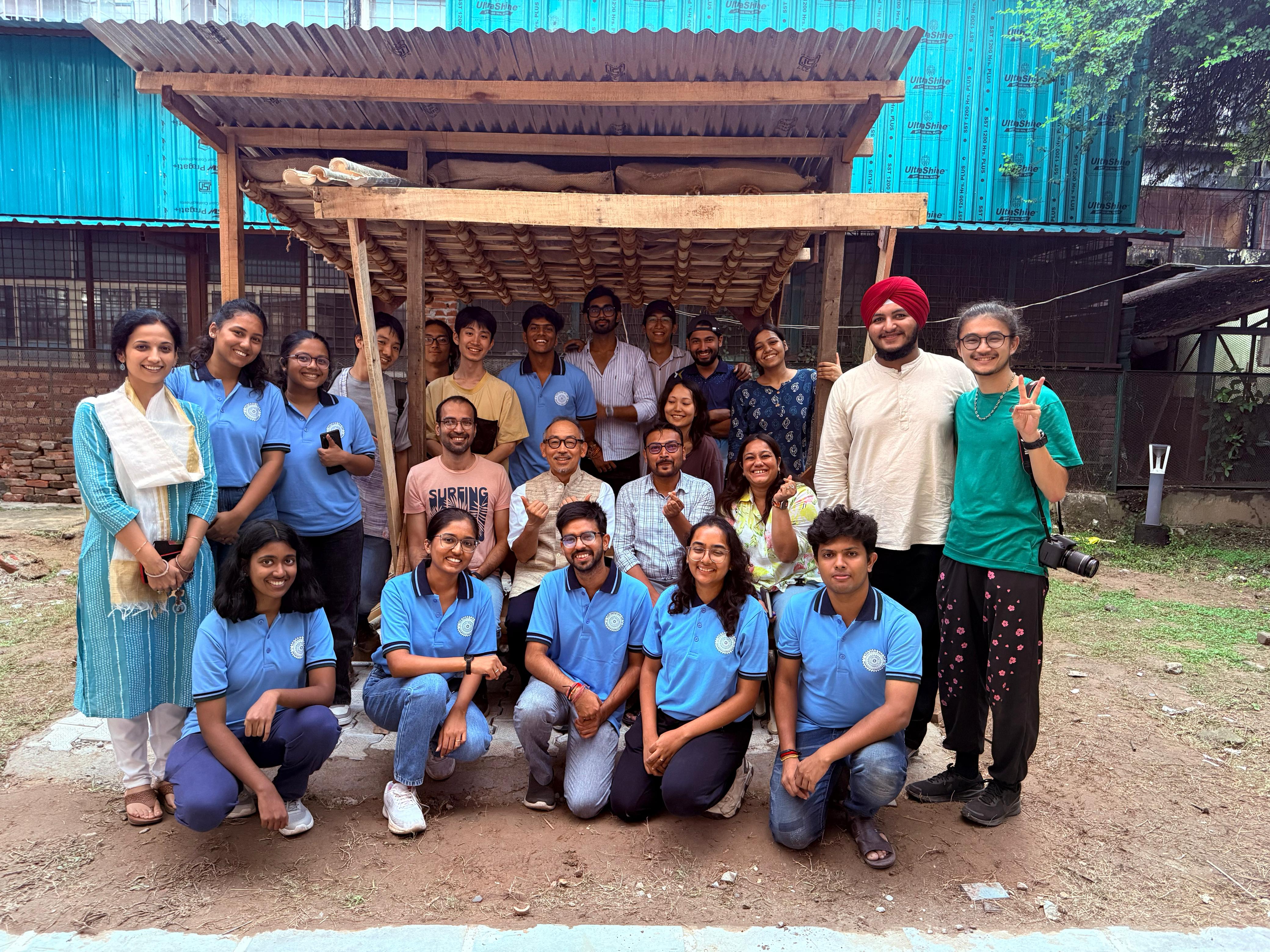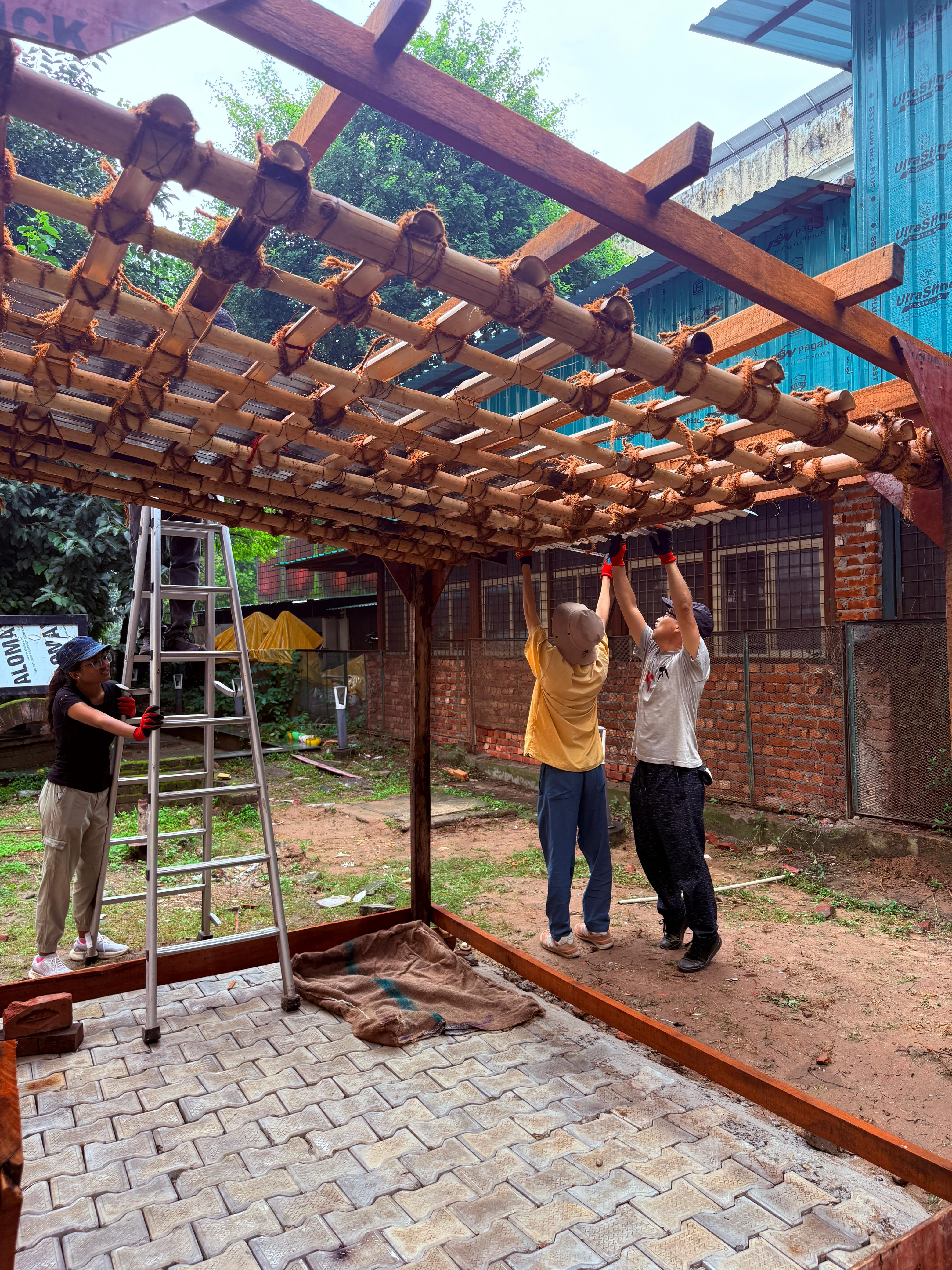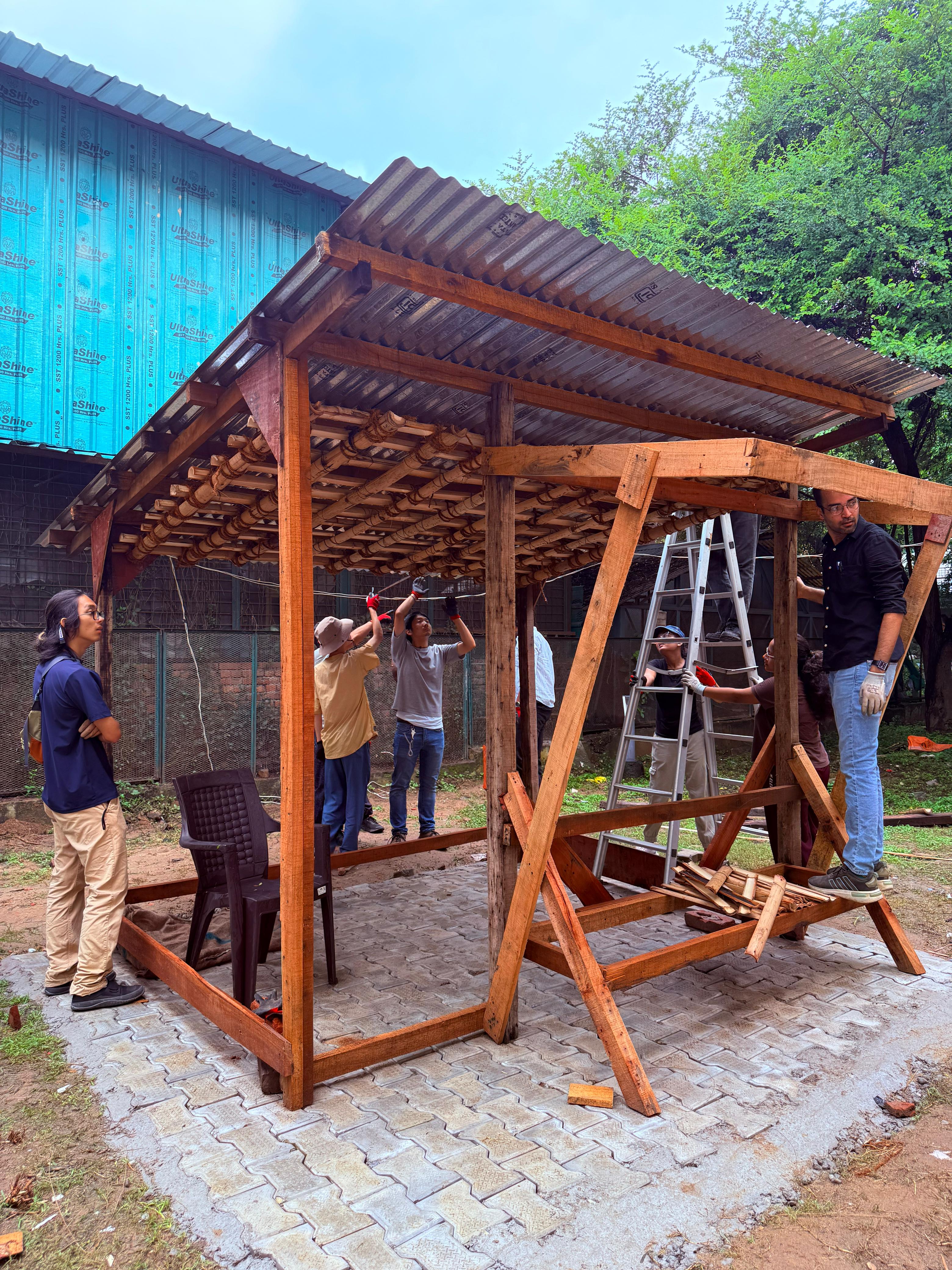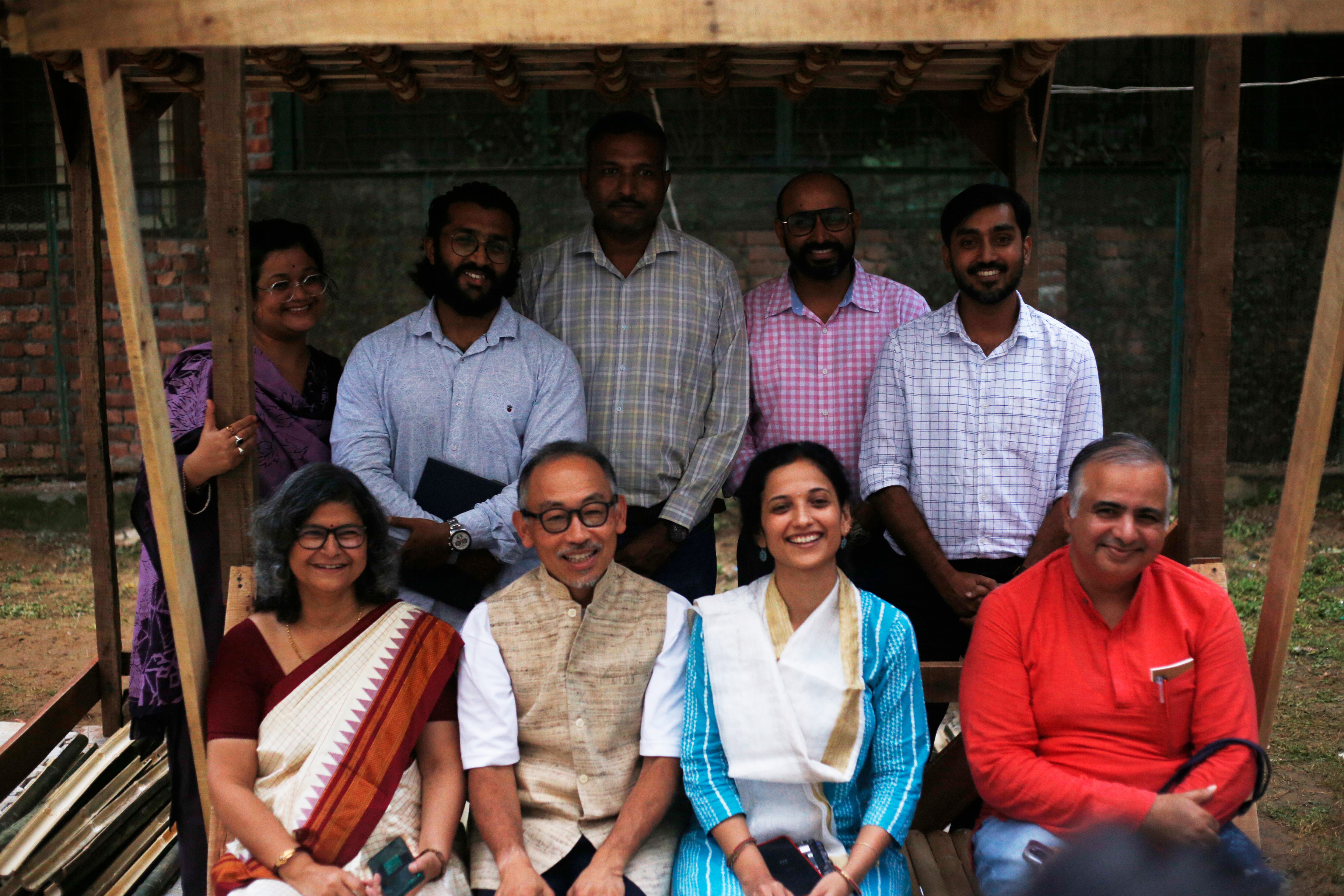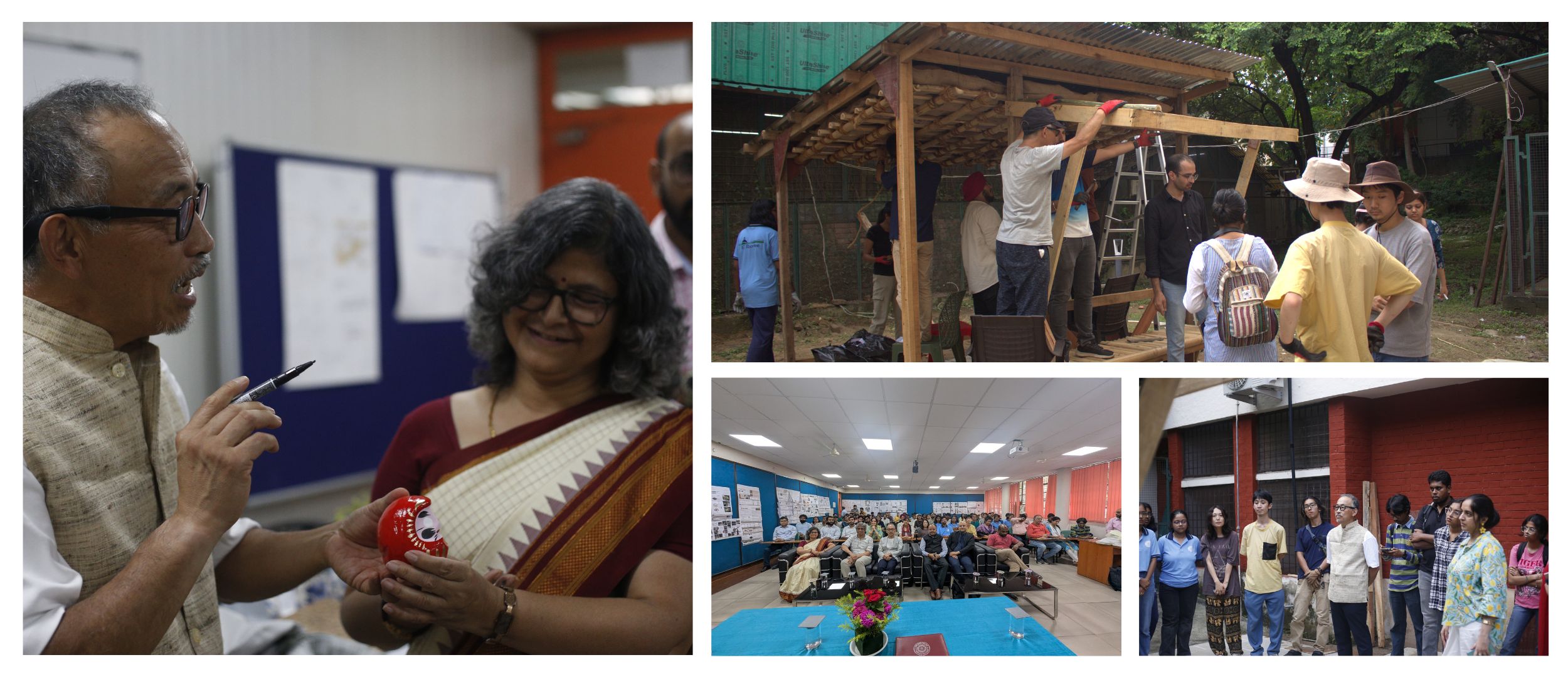Events & Workshops
Events & Workshops
AIPAN Workshop cum Design Competition
The Department of Architecture and Planning, IIT Roorkee, in collaboration with @TIDES IIT Roorkee, successfully conducted the AIPAN Workshop cum Design Competition under the project titled “Integrated Livelihood, Renewable Energy, and Environmental Resilience Initiative for Rural Communities of Uttarakhand”, hereafter referred to as ANUGOONJ. The ANUGOONJ project enables resilient rural livelihoods by supporting youth and women entrepreneurs through renewable energy–based enterprises, local capacity building, and policy integration. We are pleased to acknowledge the enthusiastic participation of students who successfully completed the workshop sessions held from 08 January 2026 to 12 January 2026 at the Department of Architecture and Planning, IIT Roorkee, under the guidance of Aipan artists Sandhya Badhani, Puja Negi, and Poonam Arya, professional designer Rajeev Meena, and faculty members Prof. Sonal Atreya and Prof. Saptarshi Koley from the Department of Architecture & Planning and the Department of Design. The workshop provided a valuable platform for experiential learning, creative exploration, and cultural engagement, encouraging participants to integrate traditional art forms with contemporary design thinking. We sincerely appreciate the guidance and support of the programme coordinators: Mr. Azam Ali Khan, CEO, TIDES IIT Roorkee Prof. Avlokita Agrawal, Department of Architecture and Planning, IIT Roorkee We congratulate all participating students on their active engagement and creative contributions and look forward to continued academic, cultural, and community-focused collaborations.
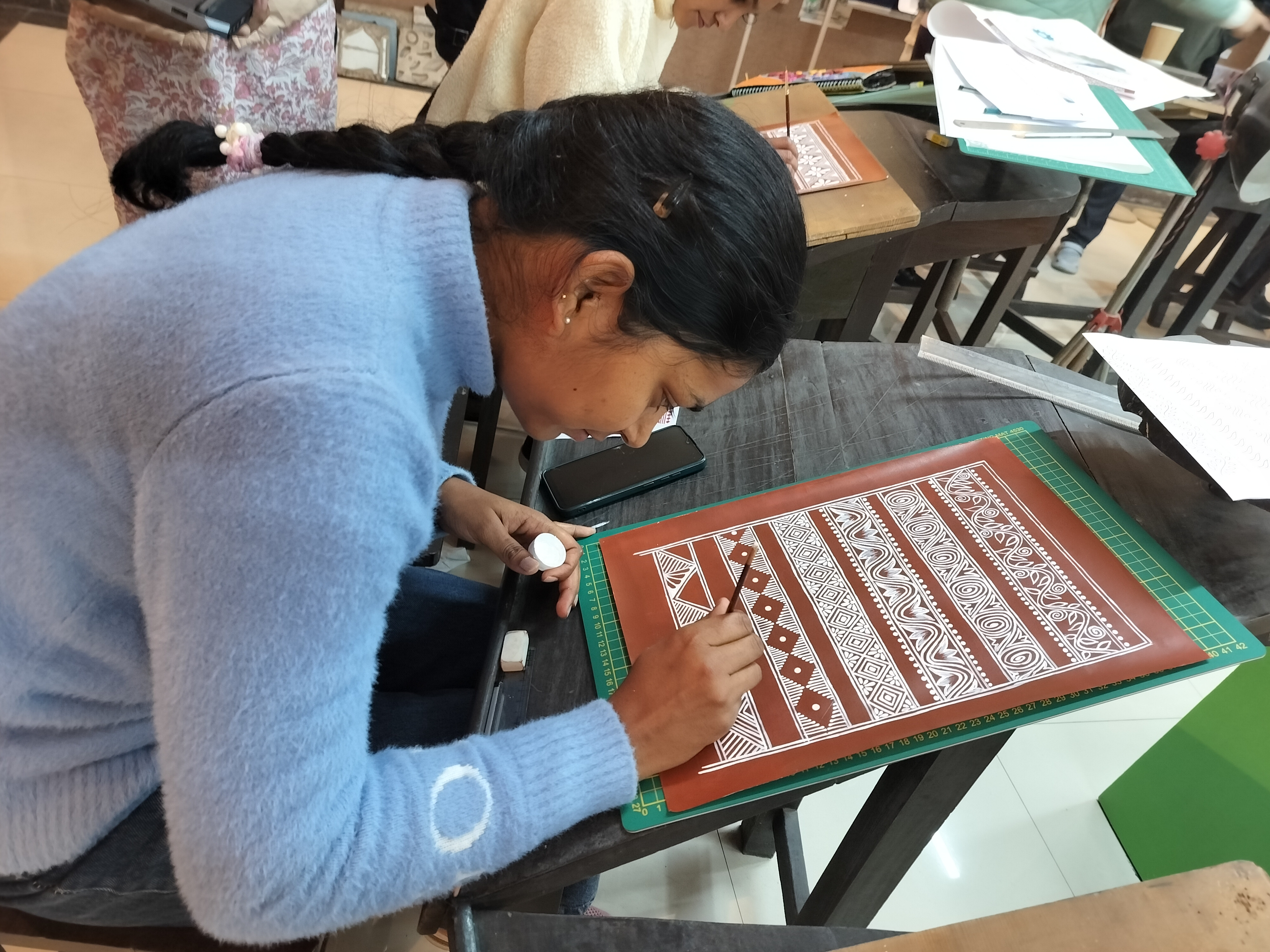
1
1

2
2
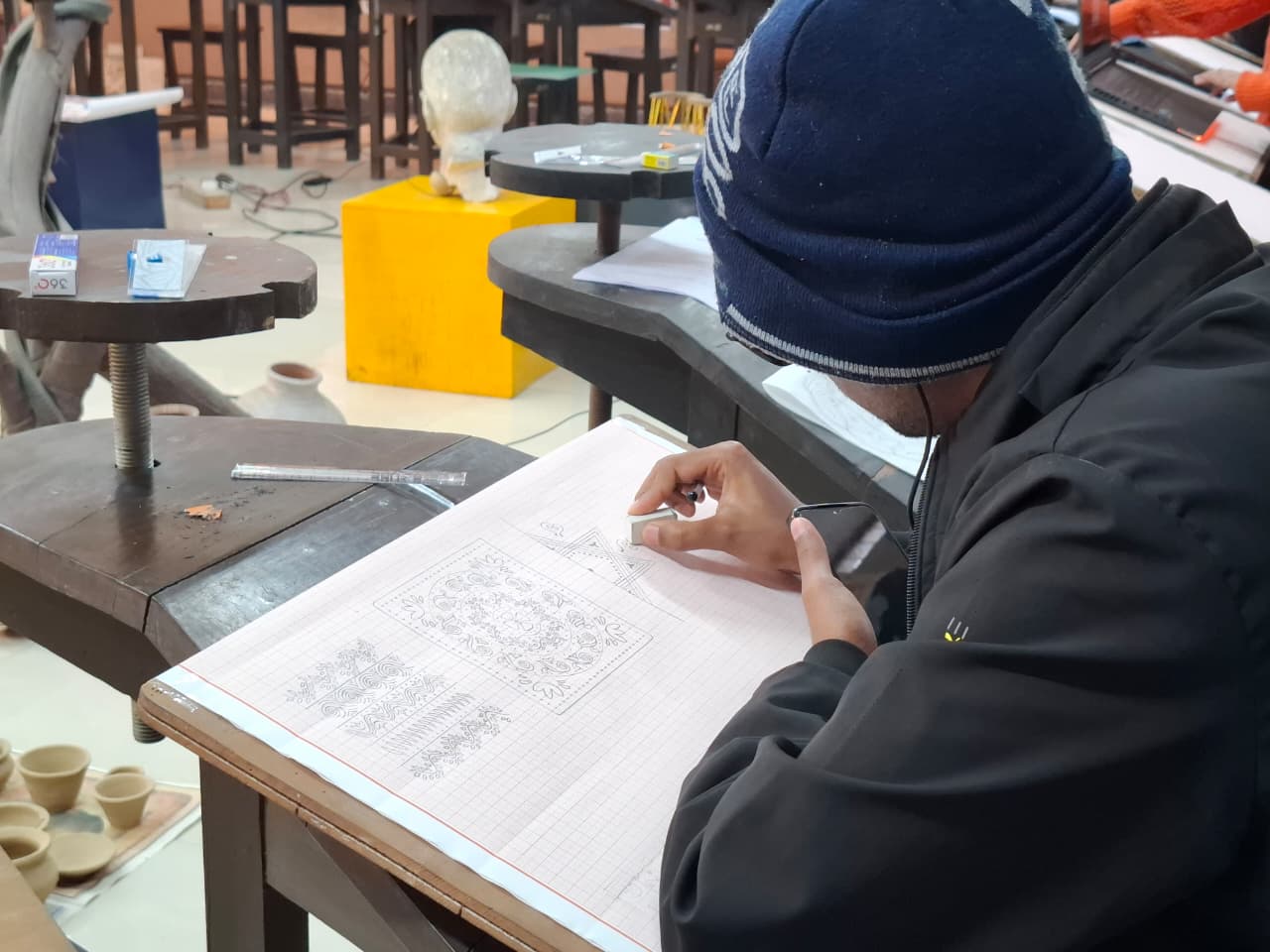
3
3
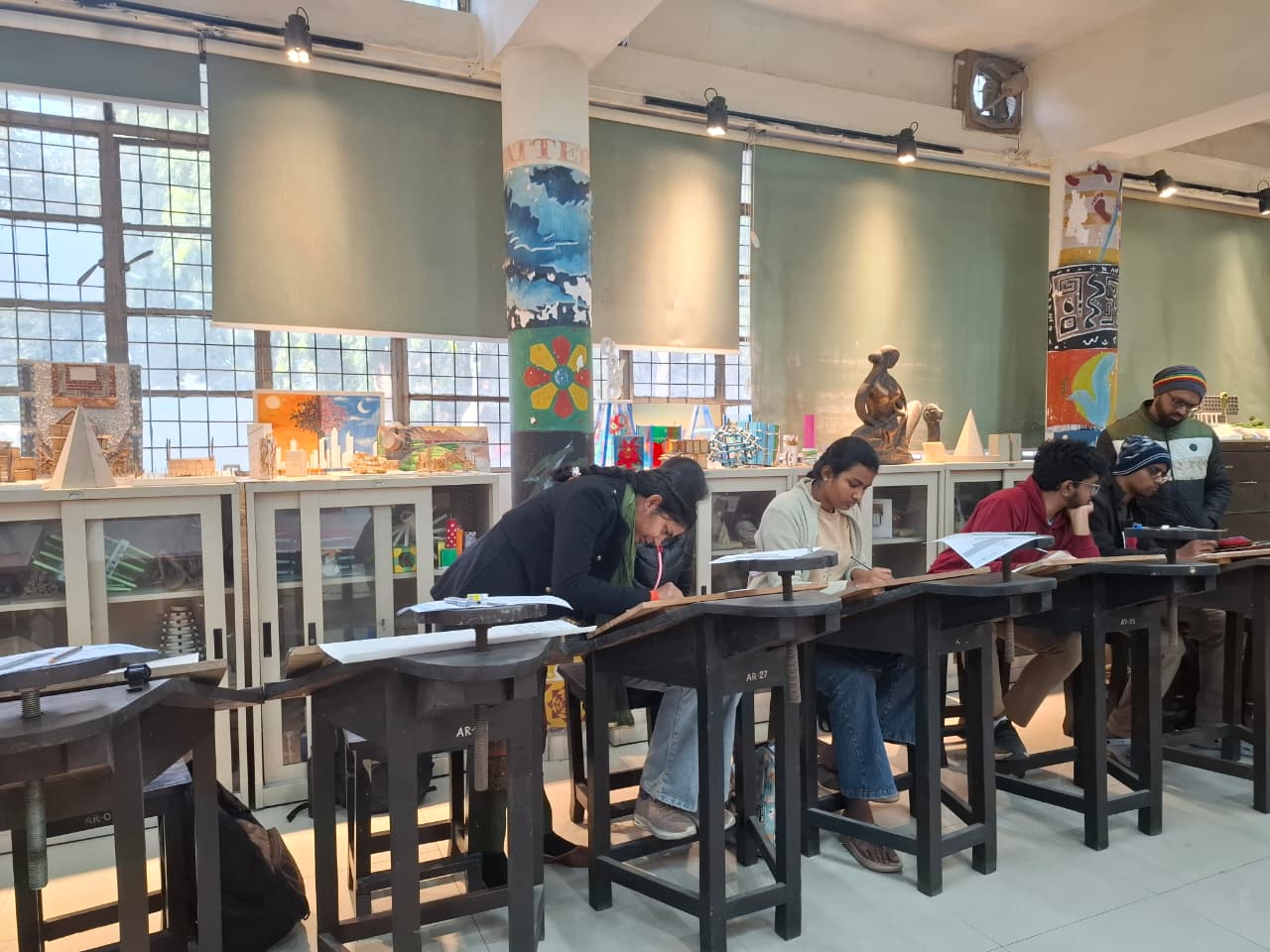
4
4
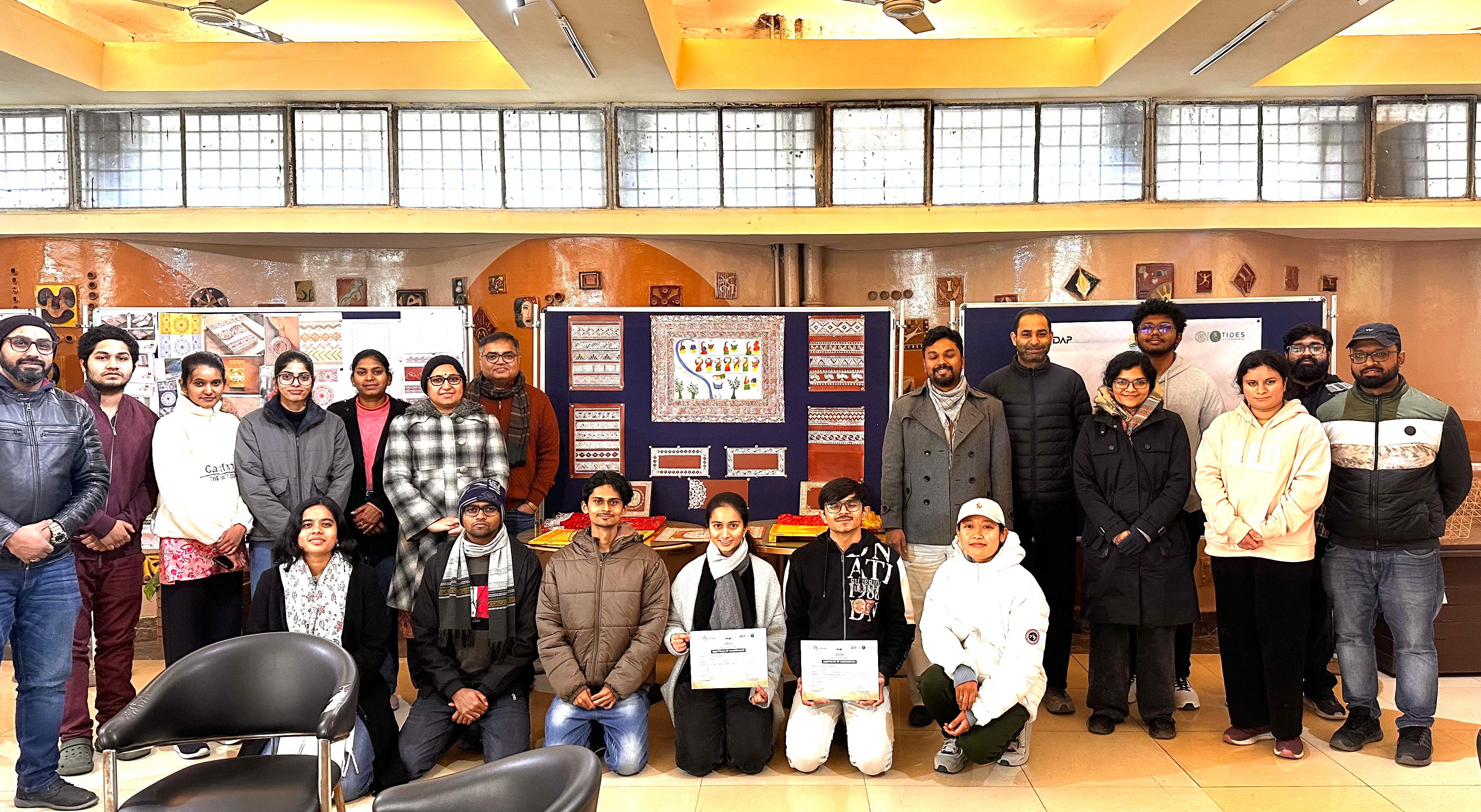
5
5
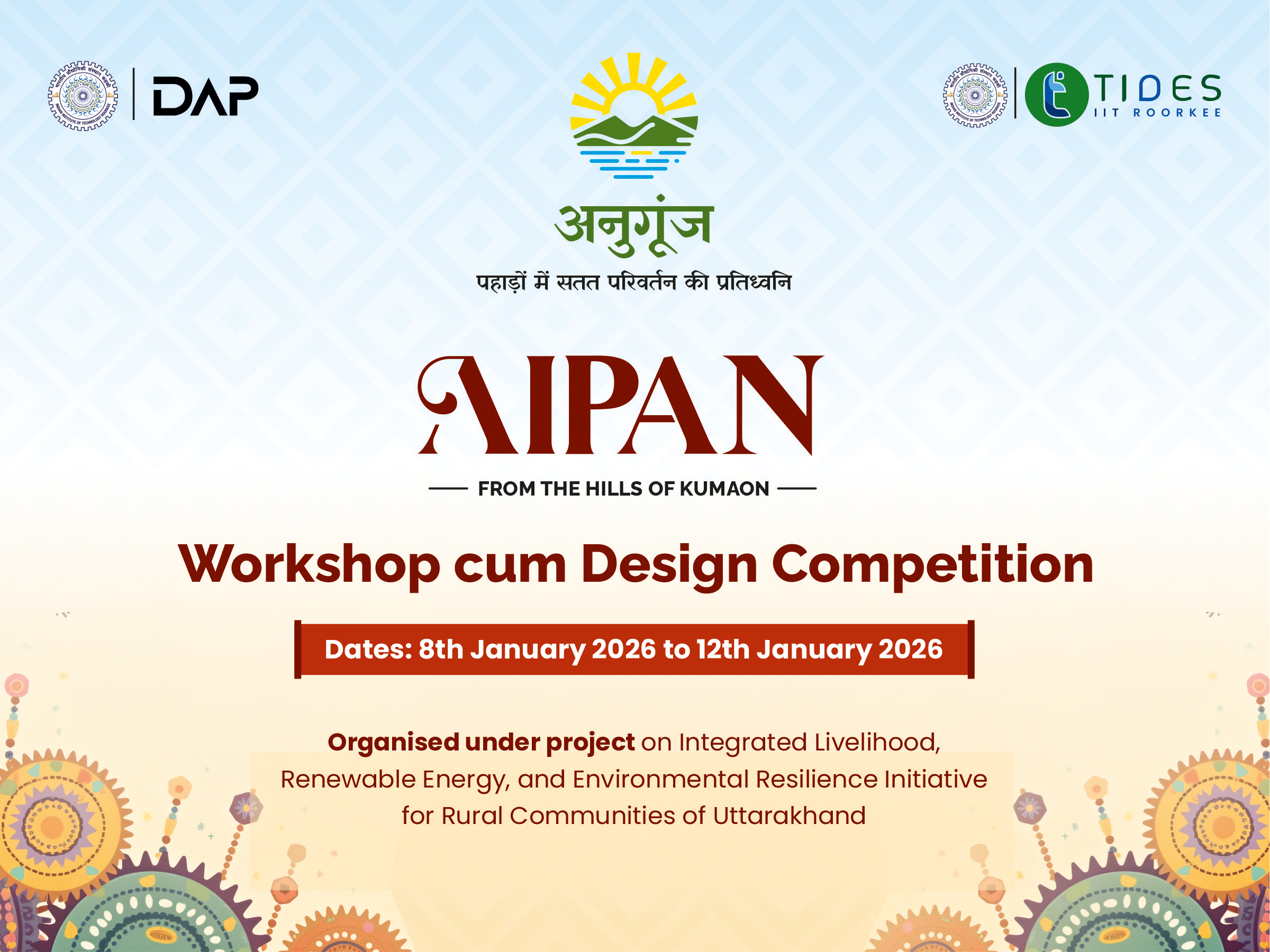
6
6
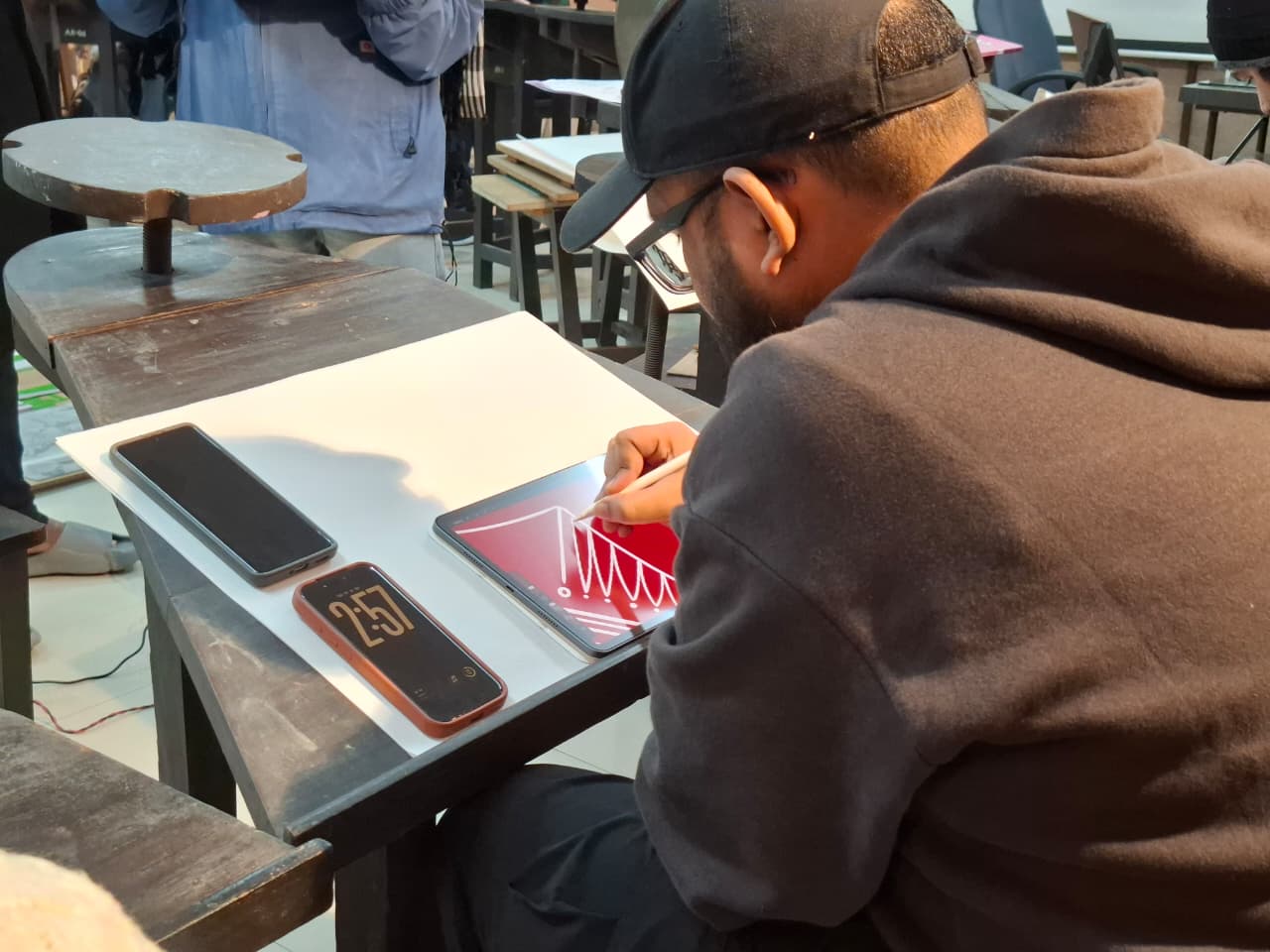
7
7
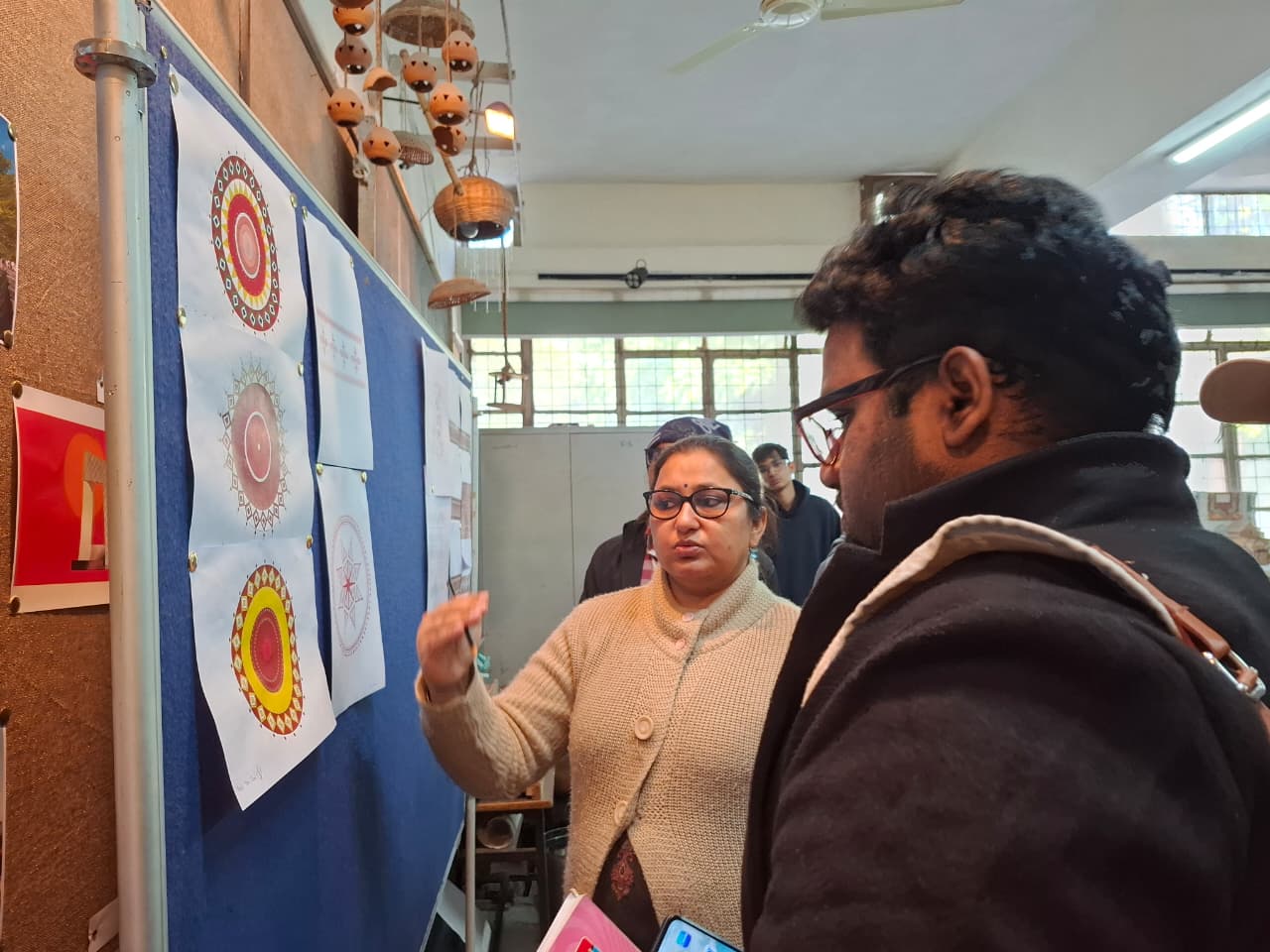
8
8
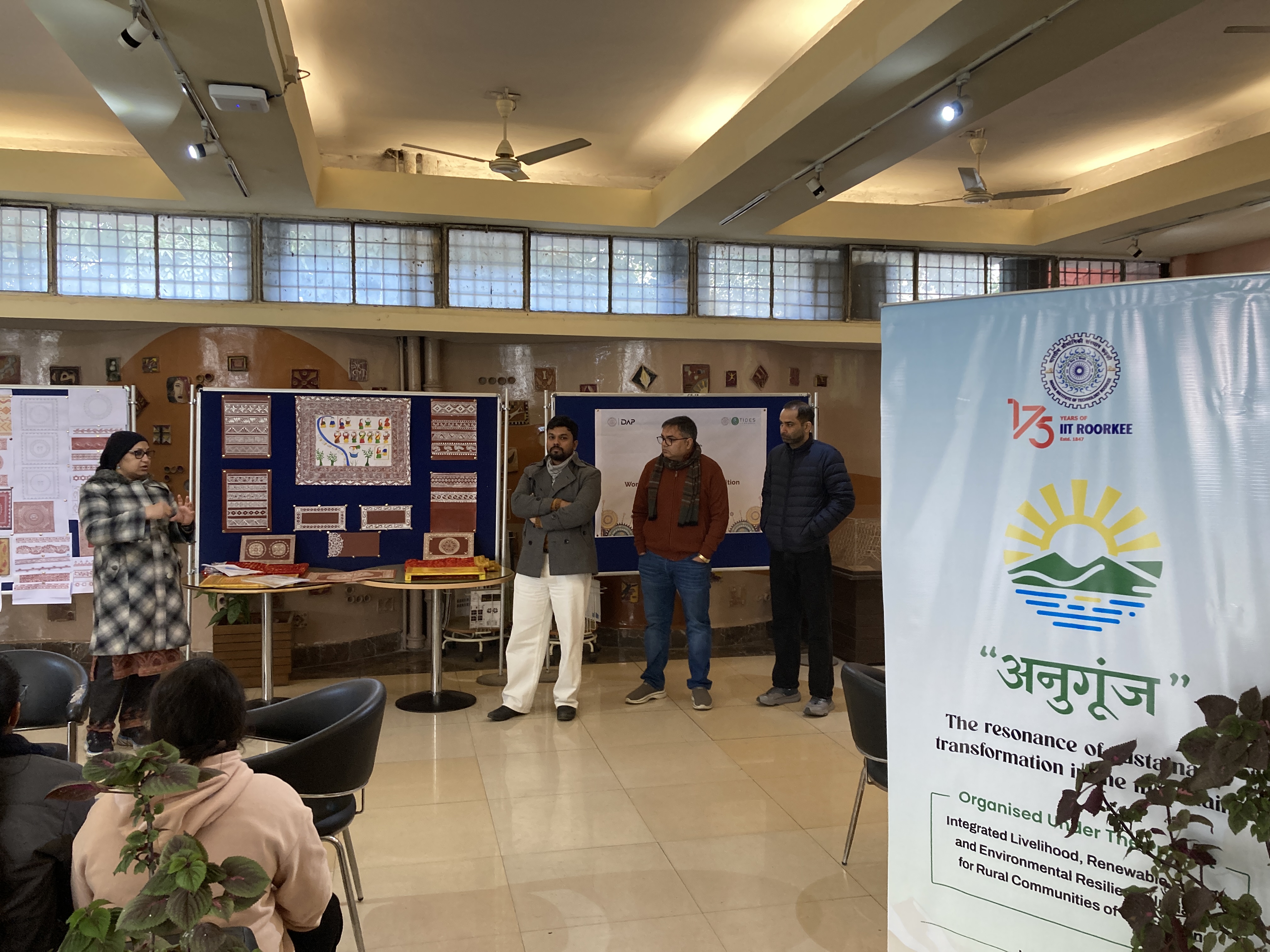
9
9
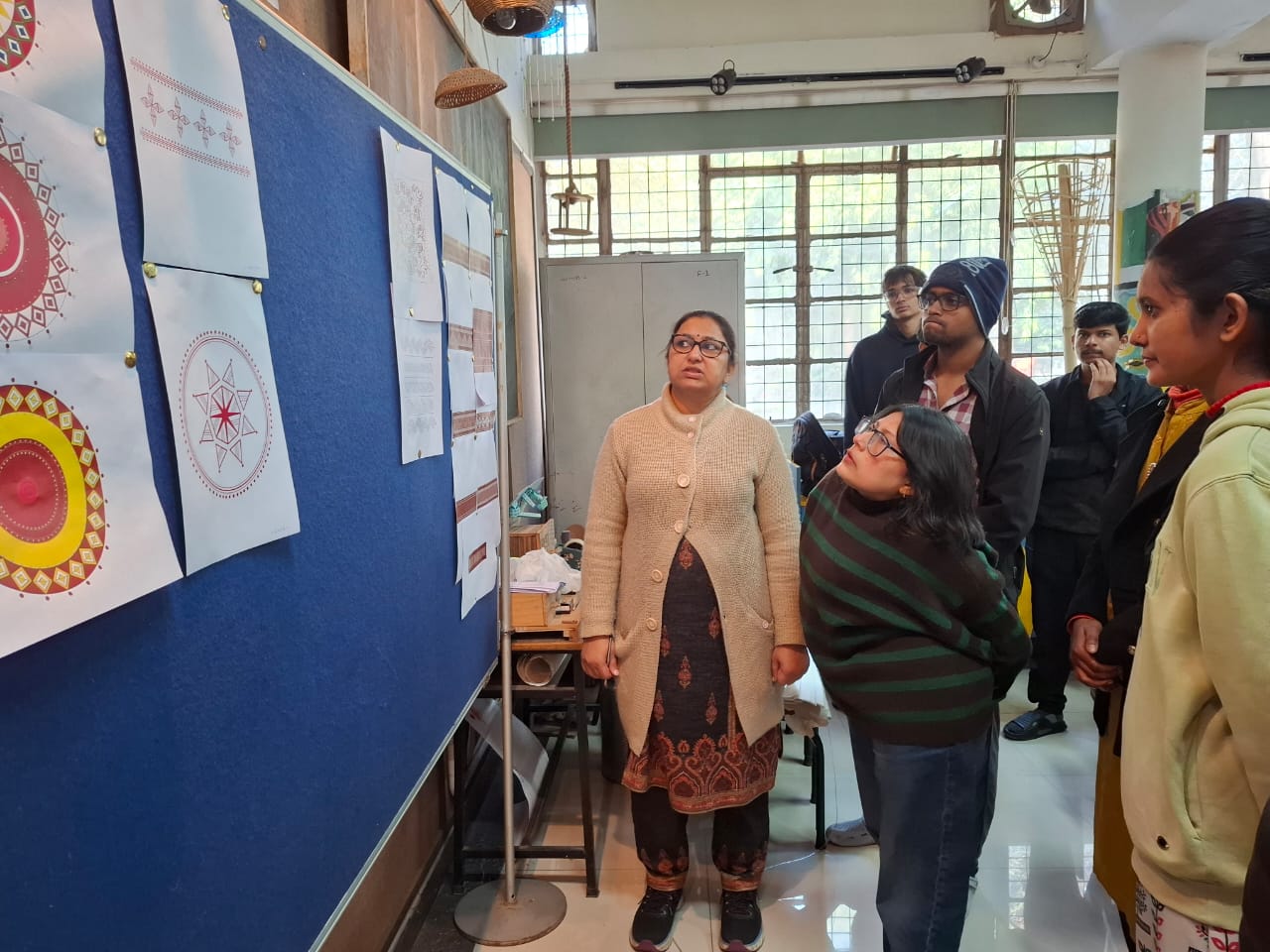
10
10
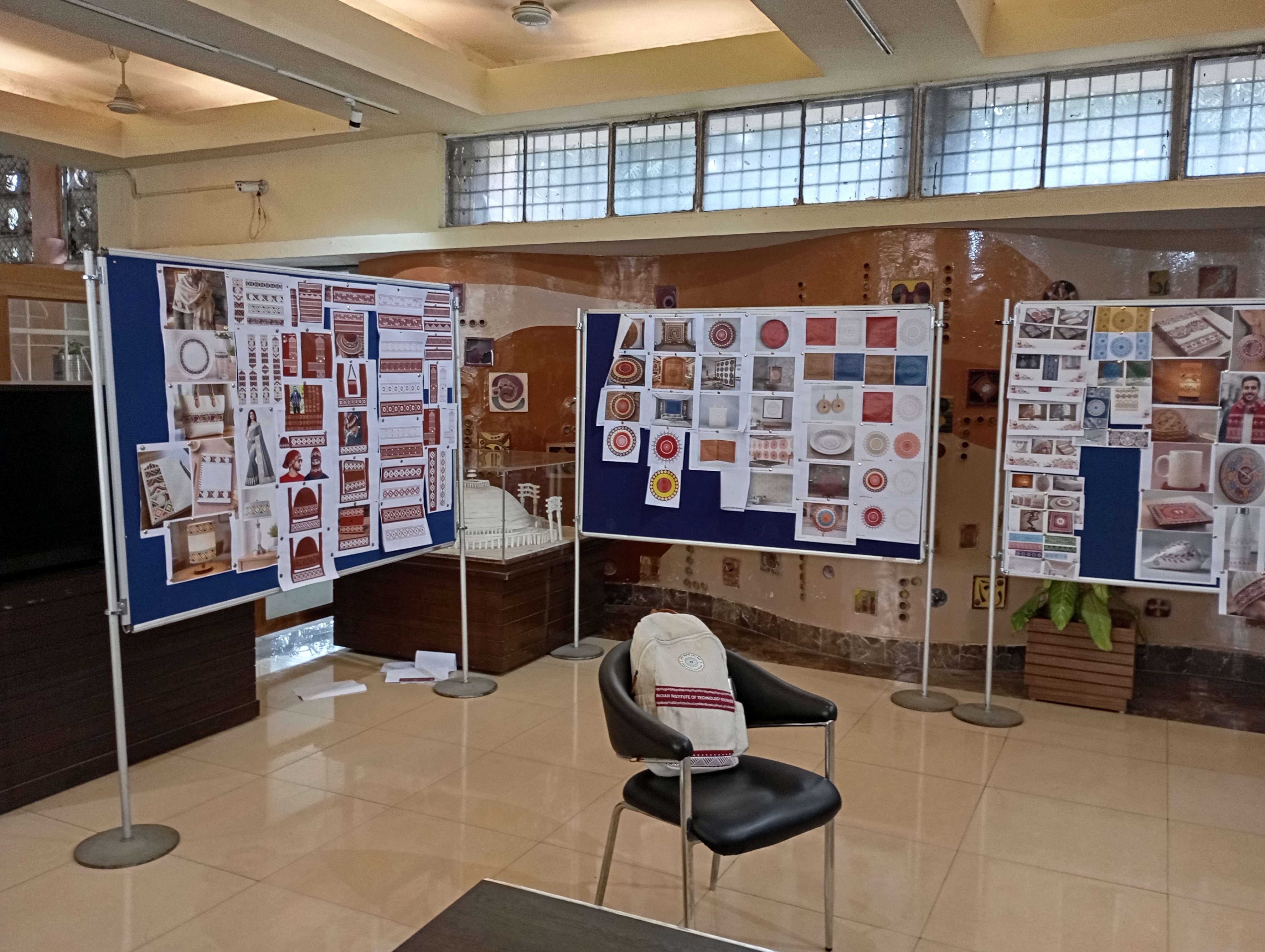
11
11
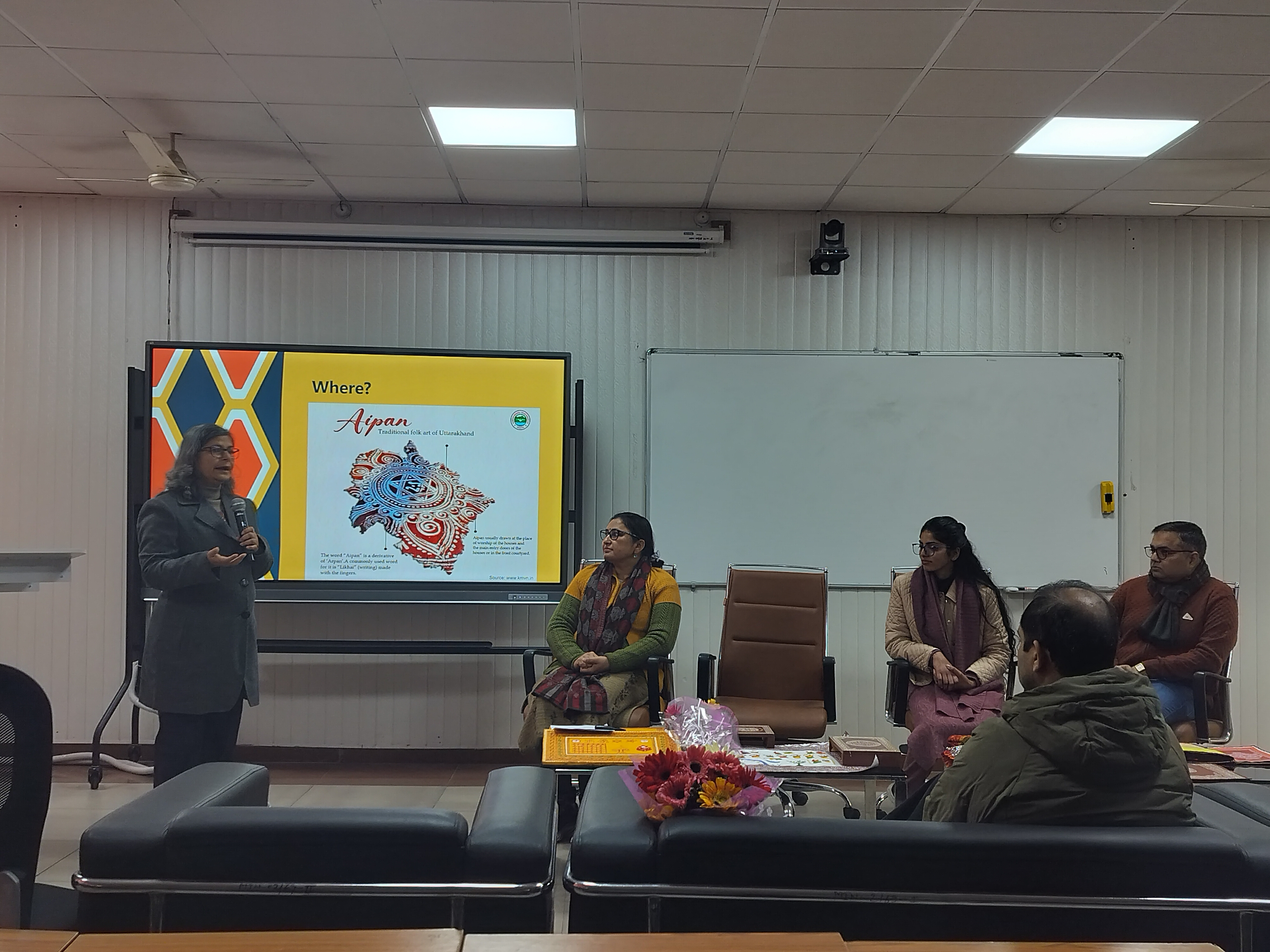
12
12
Interaction Session with Prof. O. P. Aggarwal, Professor of Practice, IIT Roorke
The AMRUT Centre of Urban Planning for Capacity Building, Department of Architecture & Planning, IIT Roorkee, recently hosted an engaging policy dialogue titled “Rethinking Cities” on 27th November 2025 at 4:30 PM. The session was delivered by Prof. O. P. Aggarwal, Professor of Practice, IIT Roorkee, a distinguished Administrative Service (IAS) officer (1997-2007) widely recognised for his extensive expertise in public policy, urban transport, and sustainable development. Prof. Aggarwal shared valuable insights on how Indian cities must evolve to address emerging urban challenges, rethink governance structures, and adopt people-centric planning approaches. His perspectives sparked meaningful discussions among students and faculty, enriching our understanding of future-ready urban development.
Department hosted the Council of Architecture delegation on 22–23 November 2025
The Department of Architecture and Planning hosted the Council of Architecture - India (CoA) delegation on 22–23 November 2025 as part of the academic review process. The visiting delegates were Prof. Joy Sen (IIT Kharagpur) and Prof. Anjali Kadam (CEPT University, Ahmedabad). Over the two days, the delegates reviewed the department’s academic programmes, studios, laboratories, workshops, and ongoing exhibitions. They interacted with faculty, staff, students, and alumni, and examined academic records, teaching–learning practices, and research activities. The campus tour further introduced them to key institutional facilities that support academic and professional development. The department extends its appreciation to the delegates for their time, engagement, and the constructive feedback shared during the visit. Their observations will contribute to strengthening the department’s academic environment and future initiatives.
The department recently hosted an enriching origami workshop, delving into the ancient Japanese art of paper folding. The term "origami" combines two Japanese words: oru, meaning "to fold," and kami, meaning "paper." Students had the privilege of meeting Mr. Himanshu Agrawal, a world-renowned origami artist who has been practicing since 1989. With five records for large-scale origami installations, his sculptures have graced art shows and events worldwide. The workshop was highly informative, as students learned to craft everything from interactive toys to intricate 2D and 3D models, including complex geometric forms that come to life when air is blown into the folds. Students learned the ability to transform a single square sheet of paper into stunning sculptures, experiencing the magic of origami firsthand.
Training Session: "Advanced Machinery Operations for Prototyping & Fabrication"
Mastering Modern Tools: Empowering Future Architects
The Department of Architecture and Planning organized an enriching training session titled "Advanced Machinery Operations for Prototyping and Fabrication" during October 19-20, 2024 at the Fabrication Lab, with 85 attendees that included students, faculty and staff across 7 departments.
The rigorous technical sessions that followed informative orientation sessions, all spread across two days, concentrated on empowering architecture fraternity in the campus, by facilitating mastering of modern tools and equipment.
The sessions offered in-depth understanding of the theoretical principles behind cutting-edge technologies such as 3D printing, CNC machining, and laser cutting, coupled with exposure to hand and power tools. The major take-aways were the awareness towards new paradigms of architectural pedagogy and practice; and, the hands-on training of these tools and equipment.
The participants had the valuable opportunity to learn and work with Mr. Nripendra Kumar, an experienced Technical Resource person with nearly a decade of experience in the field. The in-house team - Prof. Mahua Mukherjee; Prof. Smriti Saraswat; Prof. Navjit Gaurav; Ar. Atul Jha; Ar. Abhishek Verma; Sh. Rakesh Raushan; and, Sh. Varun Singh, also contributed to diverse sessions and discussions. During the sessions, the participants gained operational skills in FDM 3D printing, CNC and thermocol cutting, and laser cutting machines. The session emphasized model-making processes, allowing the participants to gain practical knowledge and firsthand experience in utilizing these advanced tools for architectural prototyping and fabrication. This training session provided a unique, hands-on learning experience, equipping the participants with essential skills to elevate their creative and technical capabilities.
Architecture of the future, for the Future !
We had the incredible opportunity to have a guest lecture by our esteemed alumnus, Mr. Badrinath Kaleru, founder of Studio Ardete. With a firm belief in the transformative power of design, he provided a captivating glimpse into the future of architecture. The two-hour session explored the evolving landscape of the profession, emphasizing the importance of understanding the intricate relationship between architecture, site, community, and context. Mr. Kaleru discussed the need for a human-centric approach to design, incorporating emotions and experiences into the built environment. He also highlighted the significance of agility in design, adapting to site constraints and potential challenges. The lecture explained the role of technology and innovation in shaping the future of architecture, emphasizing the importance of sustainable and resilient design practices. The interactive session that followed provided students with the opportunity to engage with Mr. Kaleru and gain further insights. His passion and expertise were truly inspiring, leaving the audience eager to explore the possibilities of the future of architecture.
Interaction Session with Dr. P. Kerim Friedman
An engaging interaction session with Dr. P. Kerim Friedman, Associate Professor of Indigenous Cultures at National Dong Hwa University, Taiwan. The session, titled “What Does It Mean to Be ‘Indigenous’ Taiwanese? – A Brief History”, explored the evolving notions of indigeneity in Taiwan and its intersections with identity, culture, and politics. Dr. Friedman provided deep insights into the historical and contemporary contexts of Taiwan’s Indigenous communities, discussing how colonial histories, state policies, and cultural revival movements have shaped the understanding of being “Indigenous” in modern Taiwan. The session was attended by faculty members, research scholars, and students, who actively participated in the discussion. It fostered meaningful dialogue on global Indigenous studies and their relevance to local and regional contexts.
Interaction Session with Prof. Dr. Günter Blöschl
An enlightening interaction session conducted with Prof. Dr. Günter Blöschl, a world-renowned flood hydrologist from the Technical University of Vienna and recipient of the prestigious Stockholm Water Prize 2025, on October 8, 2025. The session provided valuable insights into the global challenges of flood management, hydrological research, and climate resilience, drawing upon Dr. Blöschl’s extensive experience and pioneering contributions in the field. Students and faculty members actively participated in the discussion, engaging with Dr. Blöschl on issues related to sustainable water management, urban planning, and the role of scientific research in addressing environmental crises. The session proved to be highly informative and inspiring, encouraging participants to broaden their understanding of hydrology’s interdisciplinary significance in contemporary architectural and planning practices.
Workshop on Architectural Education and Fabrication "Build Banter and Brainstorm
A Workshop conducted on Architectural Education and Fabrication for students of ABN School, Graphic Era, and COER College on September 26, 2025. The workshop aimed to introduce young students to the fundamentals of architectural education and to provide hands-on exposure to fabrication techniques through engaging activities and demonstrations. Participants were introduced to the basic uses of tools and machines such as laser cutting machines, CNC machines, thermocol cutting machines, 3D printers, and various hand tools. The interactive nature of the session allowed students to understand the practical aspects of fabrication processes that are essential in architectural model-making and design exploration. Faculty members, staff, and students actively participated, making the event a highly informative and enriching experience for all.
Policy Workshop on Urban Mobility AMRUT Centre (ACUPCB)
Pivotal Policy Workshop on Urban Mobility, presented by the AMRUT Centre of Urban Planning for Capacity Building (ACUPCB), Department of Architecture and Planning, at IIT Roorkee. Shaping the Future of Urban Mobility This full-day workshop, "Urban Mobility Solutions for India: Policies & Strategies," will explore the critical challenges, innovations, and policy frameworks shaping urban transportation in India. We will cover both passenger and freight mobility, with a focus on fostering dialogue and developing actionable insights to guide sustainable and inclusive solutions. About the Speaker Our distinguished speaker is Prof. Sharat Chander , an alumnus of IIT Roorkee, IIM Lucknow, and SPA Delhi. With over two decades of experience in the Union Government, Prof. Chander is a former Indian Information Service officer (1999 batch) and served as Officer on Special Duty to Prime Minister Modi from 2014 to 2019. An accomplished public policy expert, he has held leadership roles as Director of Public Policy at Samsung, and previously at Uber (India & South Asia) and Coursera (Asia-Pacific). As a visiting faculty member at IIM Ahmedabad and IIT Roorkee, he brings a unique blend of government, corporate, and academic expertise to this workshop.
Hosts 3rd A.P. Kanvinde Lecture Series Featuring Prof. Hiroto Kobayashi
The Department of Architecture and Planning, IIT Roorkee, successfully hosted the 3rd A.P. Kanvinde Lecture Series on 29th August 2025, with the distinguished presence of Prof. Hiroto Kobayashi as the keynote speaker. The event paid tribute to the monumental legacy of Padma Shri A.P. Kanvinde, celebrated as the Father of Modern (Post-Independence) Indian Architecture. Prof. Kobayashi, founding partner of Kobayashi Maki Design Workshop (KMDW) and representative of Skidmore Owings and Merrill LLP (SOM) in Japan, captivated the audience with his insights on contemporary architectural practices, cross-cultural design approaches, and his pioneering design-build methodology using engineered wood developed post the 2011 Tohoku disaster. His lecture shed light on student-led initiatives such as the Student-Build Campus (SBC) at Keio University, offering a unique perspective on collaborative, sustainable, and community-driven architecture. The session witnessed enthusiastic participation from faculty, students, and professionals, making it a memorable and enriching tribute to A.P. Kanvinde’s enduring vision
A.P. Kanvinde Lecture Series
We had the privilege of welcoming Ar. Vivek Singh Rathore, Founder of SALIENT, a multidisciplinary design studio in Kolkata and a distinguished alumnus of IIT Roorkee, to the Department of Architecture and Planning. This occasion marked the 2nd A.P. Kanvinde Lecture, hosted by the Department in honor of Padma Shri Ar. A.P. Kanvinde, a trailblazer in post-independence Indian architecture. His impactful work continues to shape the campuses and cities we live in today. Ar. Sanjay Kanvinde joined the session online, making the event even more special.

4
4

5
5
"AN INTERACTION WITH DR. FABIAN FALTER, RWTH AACHEN UNIVERSITY"
We were honoured to host Dr. Fabian Falter at the Department of Architecture and Planning. Dr. Fabian’s visit celebrated the long-standing relationship between the two Institutes, and also kick started the meetings related to our recently established University-wide MoU

4
4

5
5
"AN INTERACTION WITH DR. V. NARAYANAN, ISRO CHAIRMAN"
We were honoured to host Dr. V. Narayanan, Chairman of ISRO, along with his team, at the Department of Architecture and Planning, IIT Roorkee, on 4th March 2025, under the leadership of Prof. Mahua Mukherjee (HoD) and Prof. Devadas. During his talk, he captivated the audience with his inspiring journey—from humble beginnings to leading India’s space program. He spoke about his career progression, the importance of setting clear goals, and how ISRO has continually pushed boundaries in space exploration. Touching upon historic milestones, he reflected on India’s early space endeavours in 1963, the 1967 rocket launch, and the evolution of rocket and engine development over the decades. He emphasized the role of space technology in everyday life, ISRO’s contributions to disaster management and mitigation, and the remarkable achievement of launching 100 satellites with a single rocket. He also shared personal anecdotes, lessons learned from Chandrayaan-2, and how they paved the way for the historic Chandrayaan-3 landing at the Moon’s South Pole. Ending on a powerful note, he highlighted the strength of Indian talent across the world and the immense potential of youth in nation-building, leaving the audience deeply inspired and proud. A big shout-out to all students and faculty members, for support and zeal ! #ISRO #IITRoorkee #DAP #SpaceInnovation #Chandrayaan3 #NationBuilding 🚀
Workshop on ‘Project Finance in Urban Planning’
The Department of Architecture and Planning recently hosted a two-day workshop, focusing on the fundamentals of project finance in urban planning. The workshop provided a practical introduction to building financial models for urban infrastructure projects, with a special emphasis on metropolitan cities in India. The sessions, led by invited expert Mr. Hiren Joshi, Associate Principal at Coordinates Consulting, Ahmedabad, included lectures, hands-on exercises, and case studies. Participants gained a deeper understanding of public finance frameworks, financial modeling, and funding strategies for large-scale urban projects. The workshop culminated in group presentations where students applied their studio work to real-world financial scenarios, enhancing their grasp of project feasibility in urban planning.

4
4

5
5
"Celebrating the 67th Foundation Day"
Reimagining Architectural Education and Profession
The Department of Architecture and Planning marked its 67th Foundation Day with a thought-provoking event on the theme, "Reimagining the Architectural Education and Profession", coordinated by Prof. Ram Sateesh Pasupuleti and his team, exploring the dynamic evolution of architecture and planning in response to emerging challenges and opportunities in the field. The event was graced by distinguished guests, Dean SRIC - Prof. Akshay Dvivedi, Associate Dean (Corporate Interaction) - Prof. Sai Ramudu Meka, Visiting Professor from the University of Alberta - Prof. Sandeep Agrawal and former faculty Dr. Pushp Lata, who shared valuable insights into the profession's evolution and the significance of innovation in architectural education. Engaging discussions, presentations, and interactive sessions followed, where faculty, industry experts, and students deliberated on transformative ideas for shaping the profession's future. The day's highlight was an Exhibition showcasing the exceptional creativity and forward-thinking projects of UG, PG, and PhD students, followed by the cultural event. The exhibits reflected the department's commitment to fostering talent and pushing the boundaries of design thinking. This celebration not only honored the department's rich legacy but also set the stage for a future grounded in collaboration, innovation, and excellence.











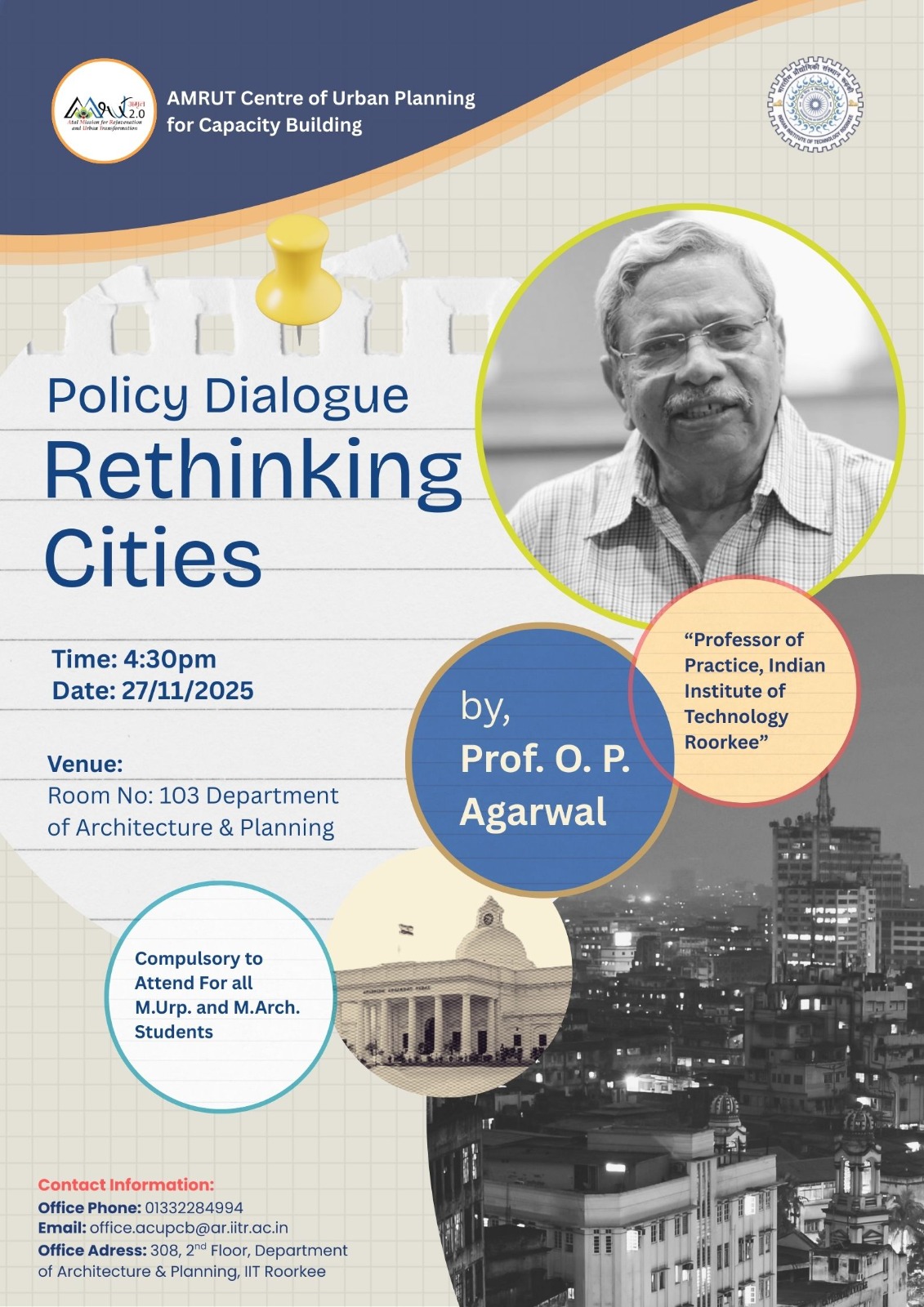
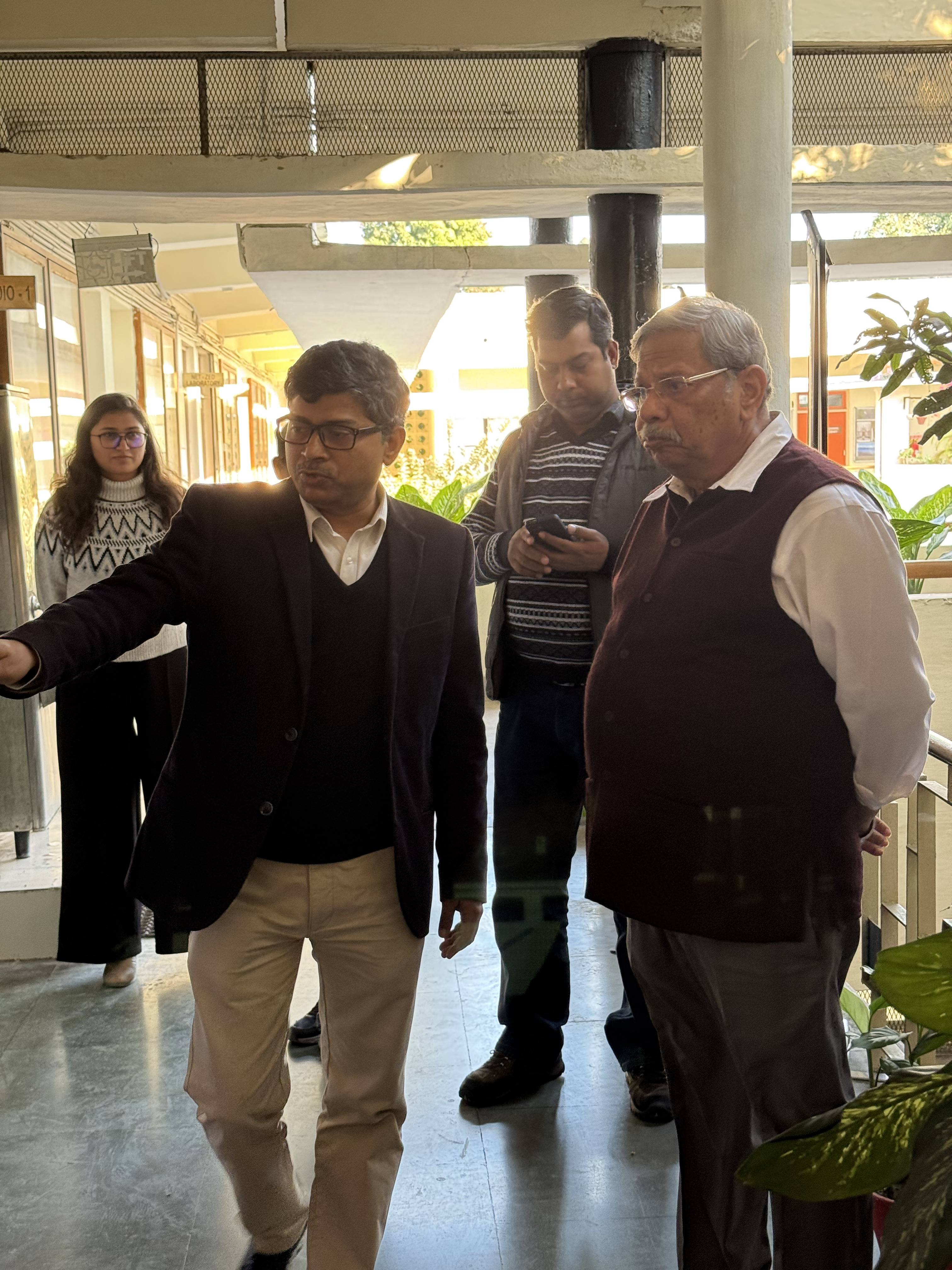
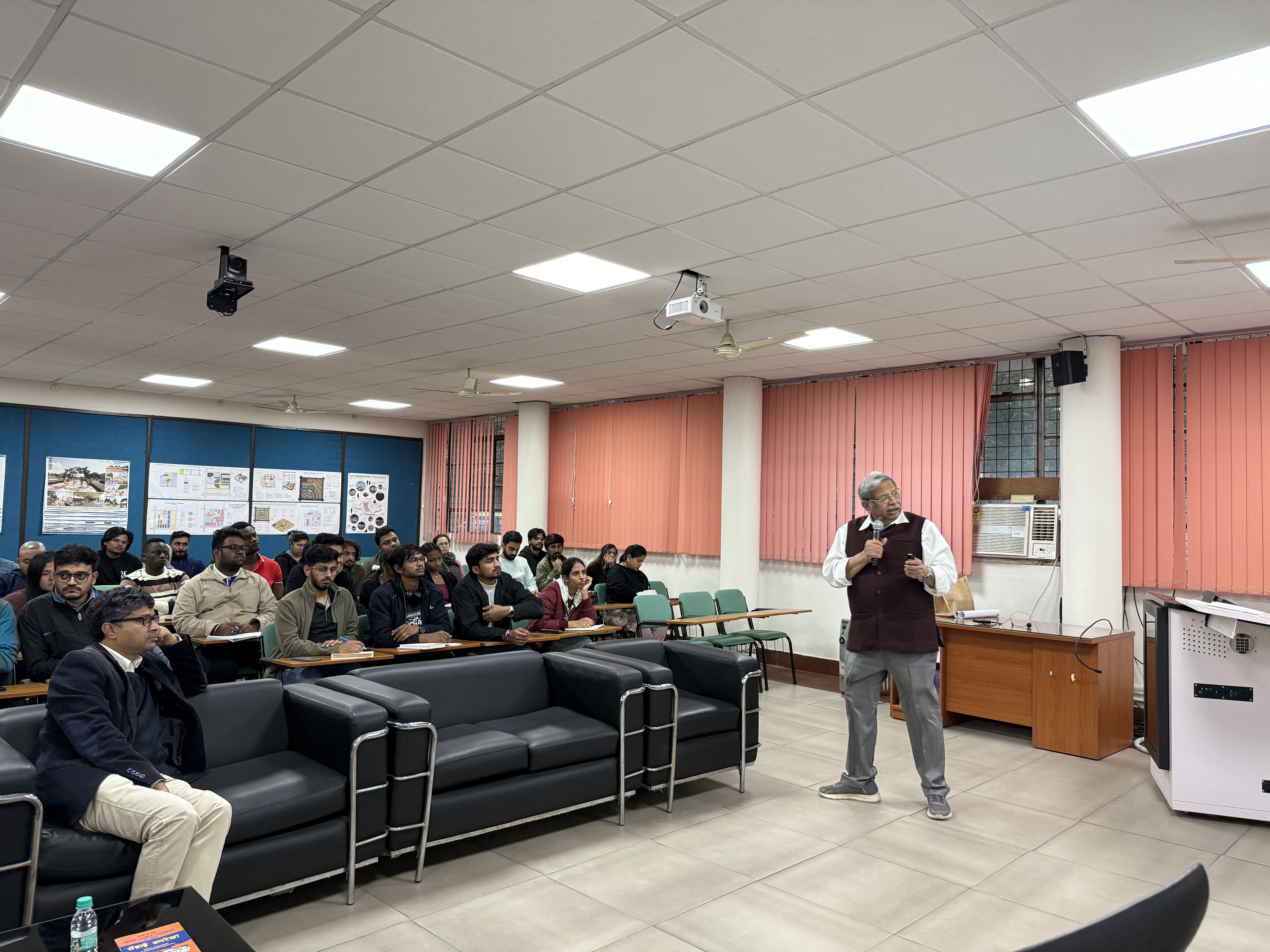
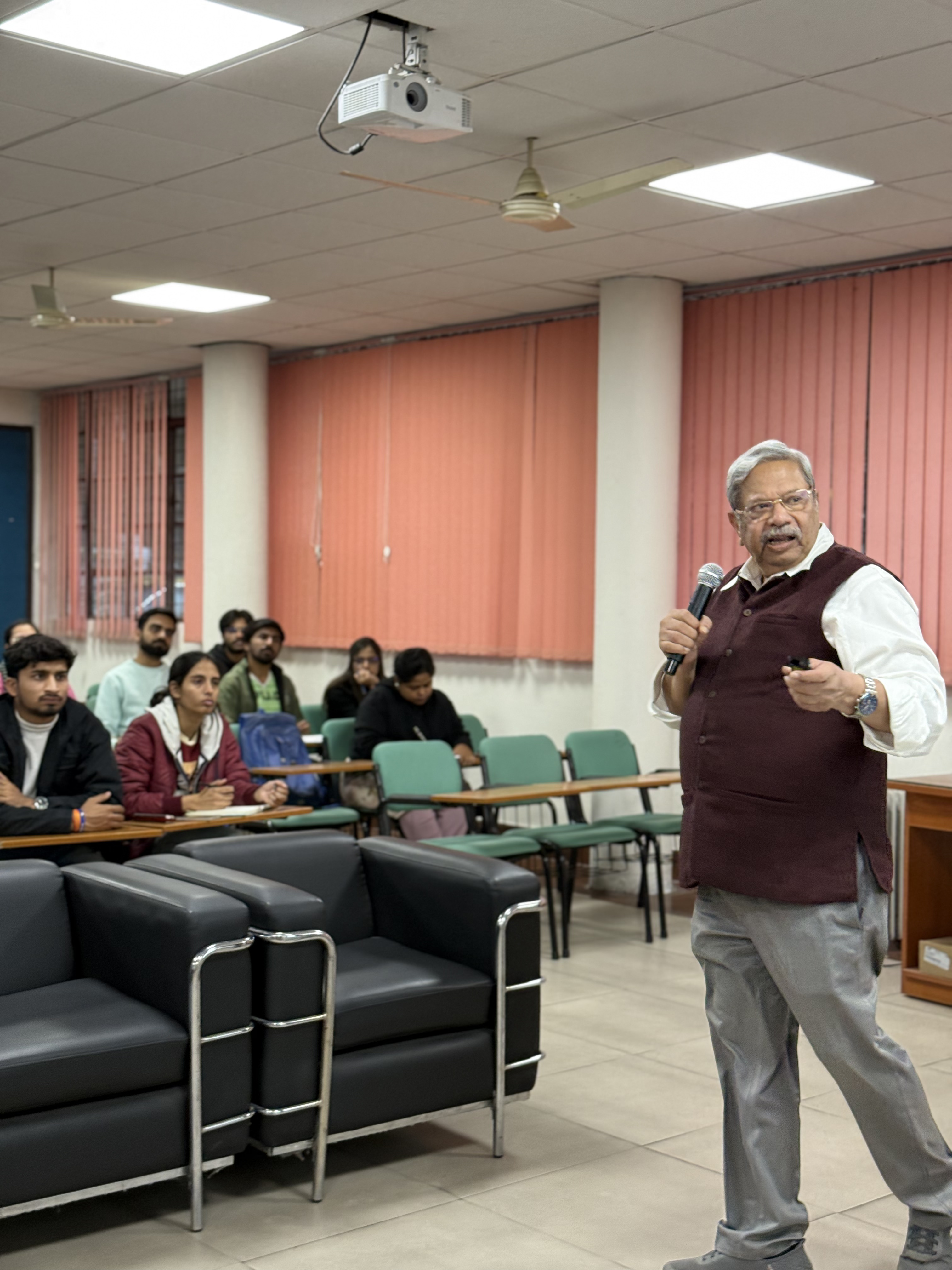
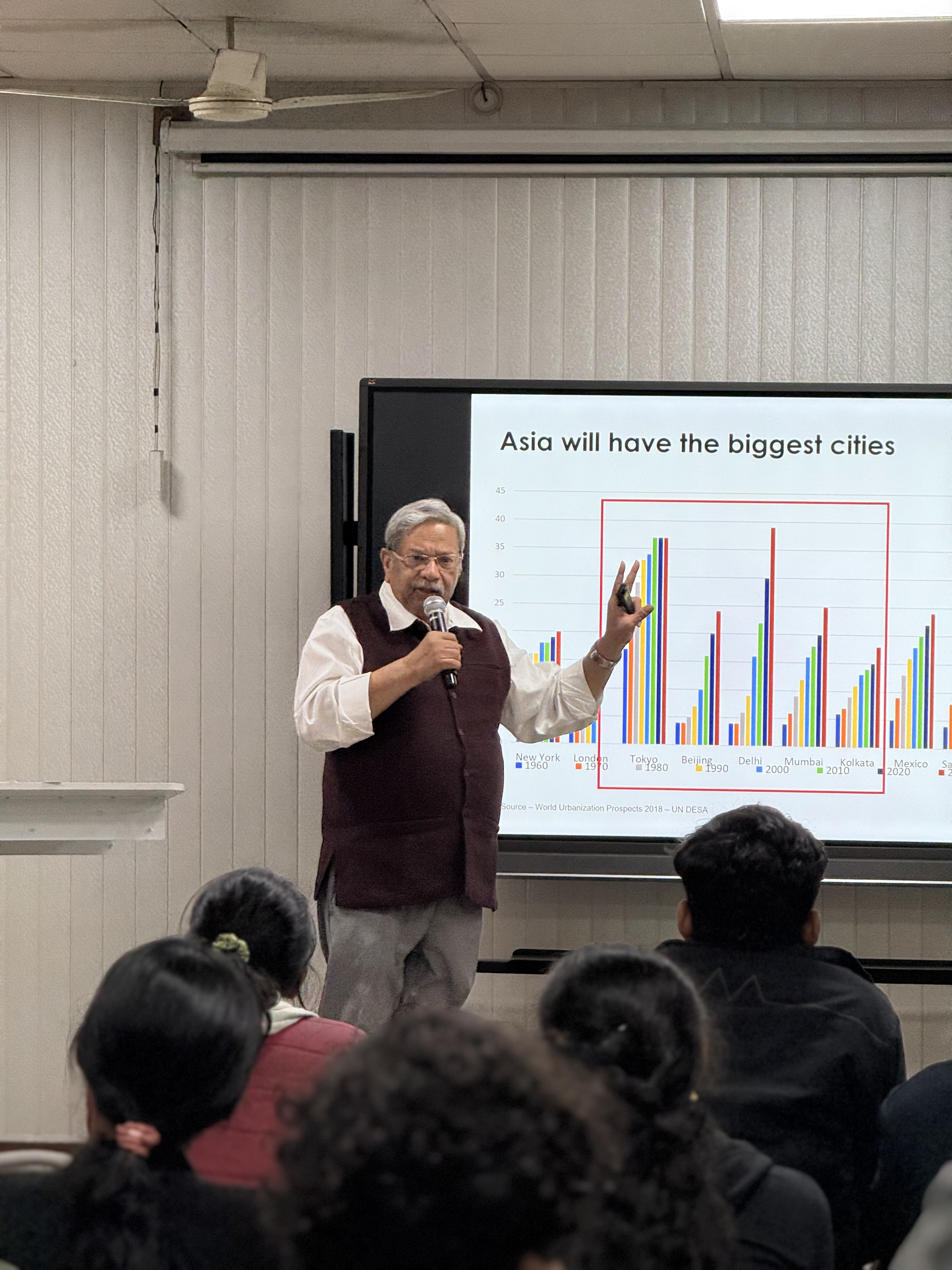
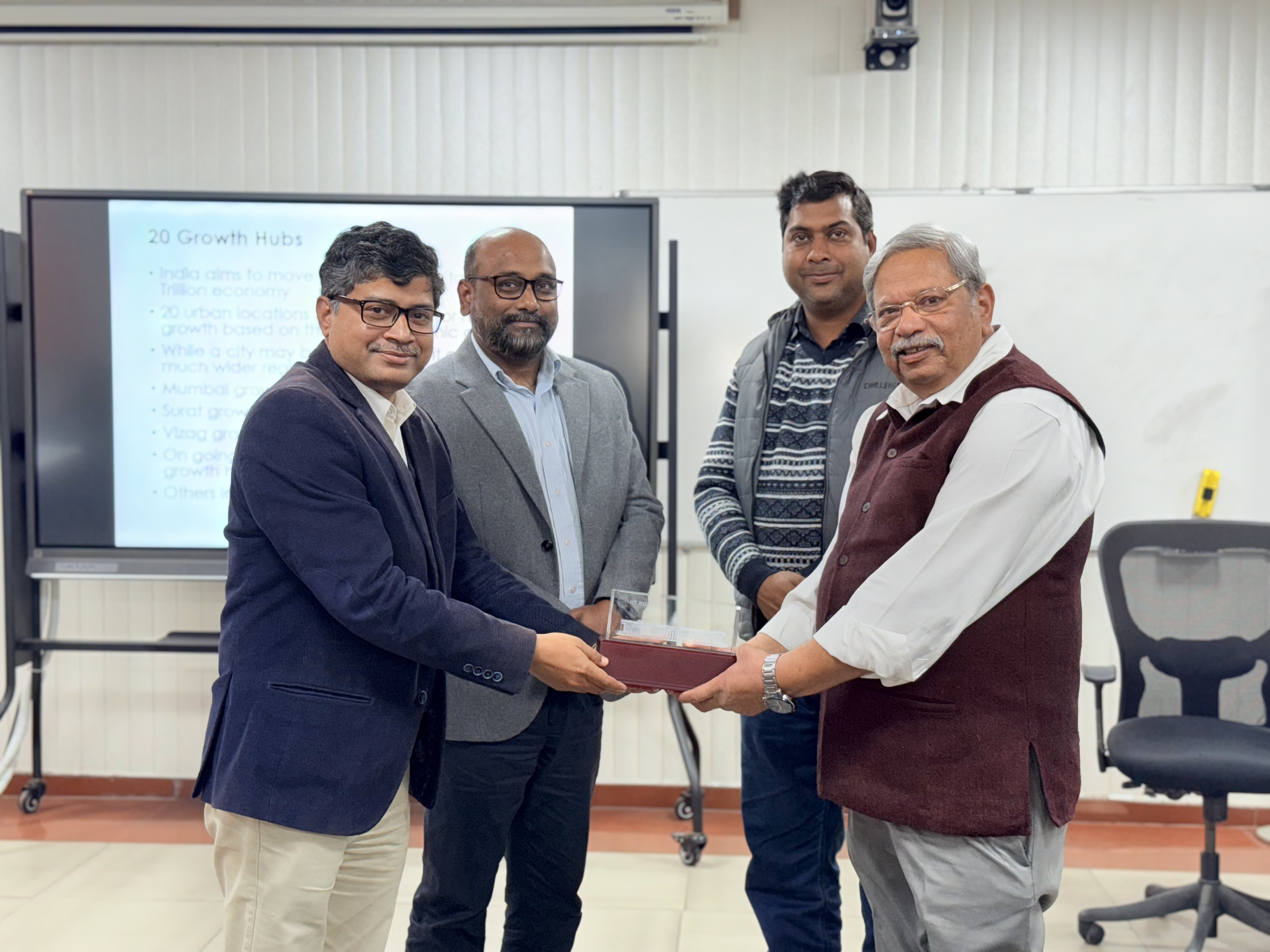
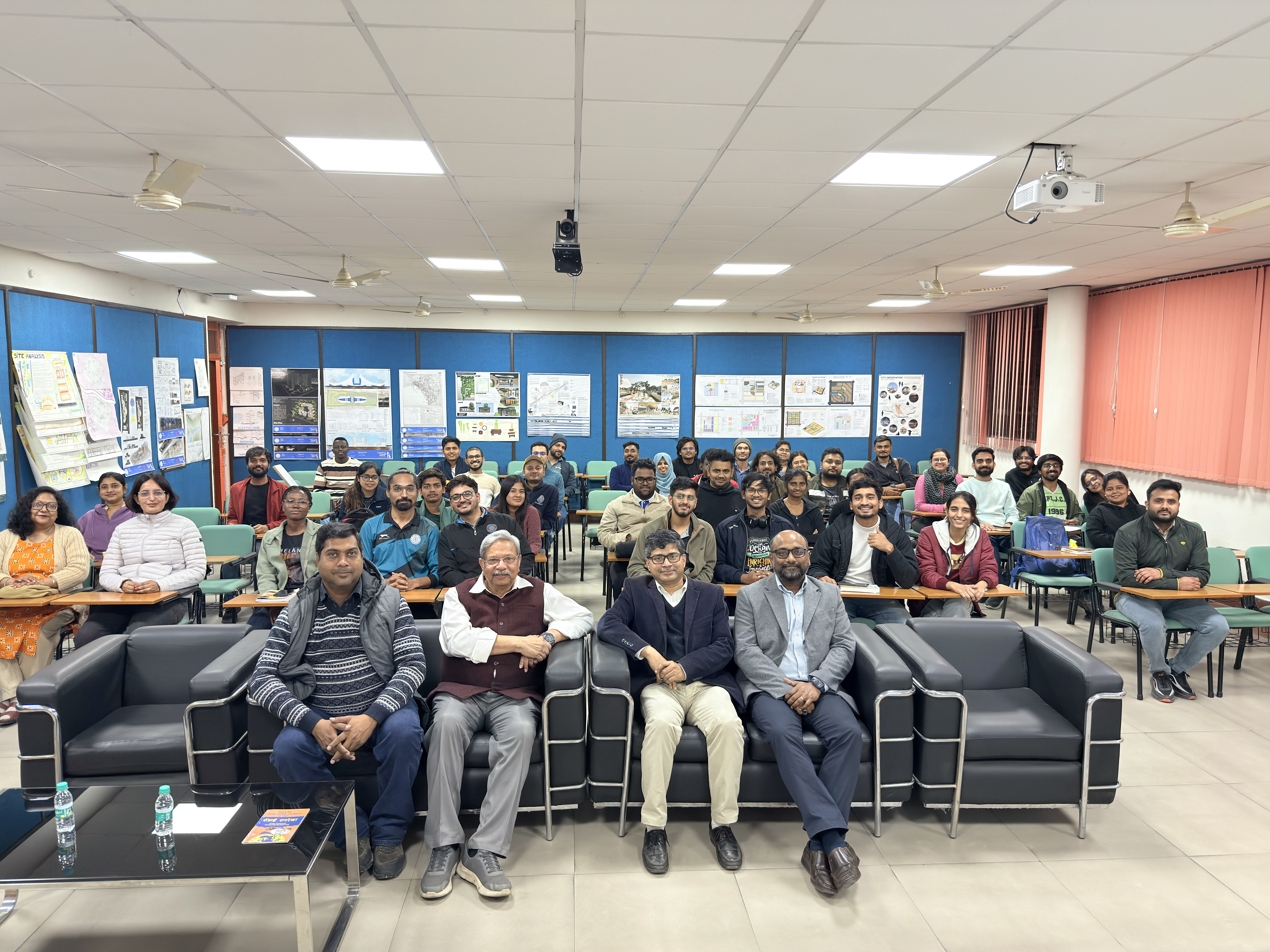
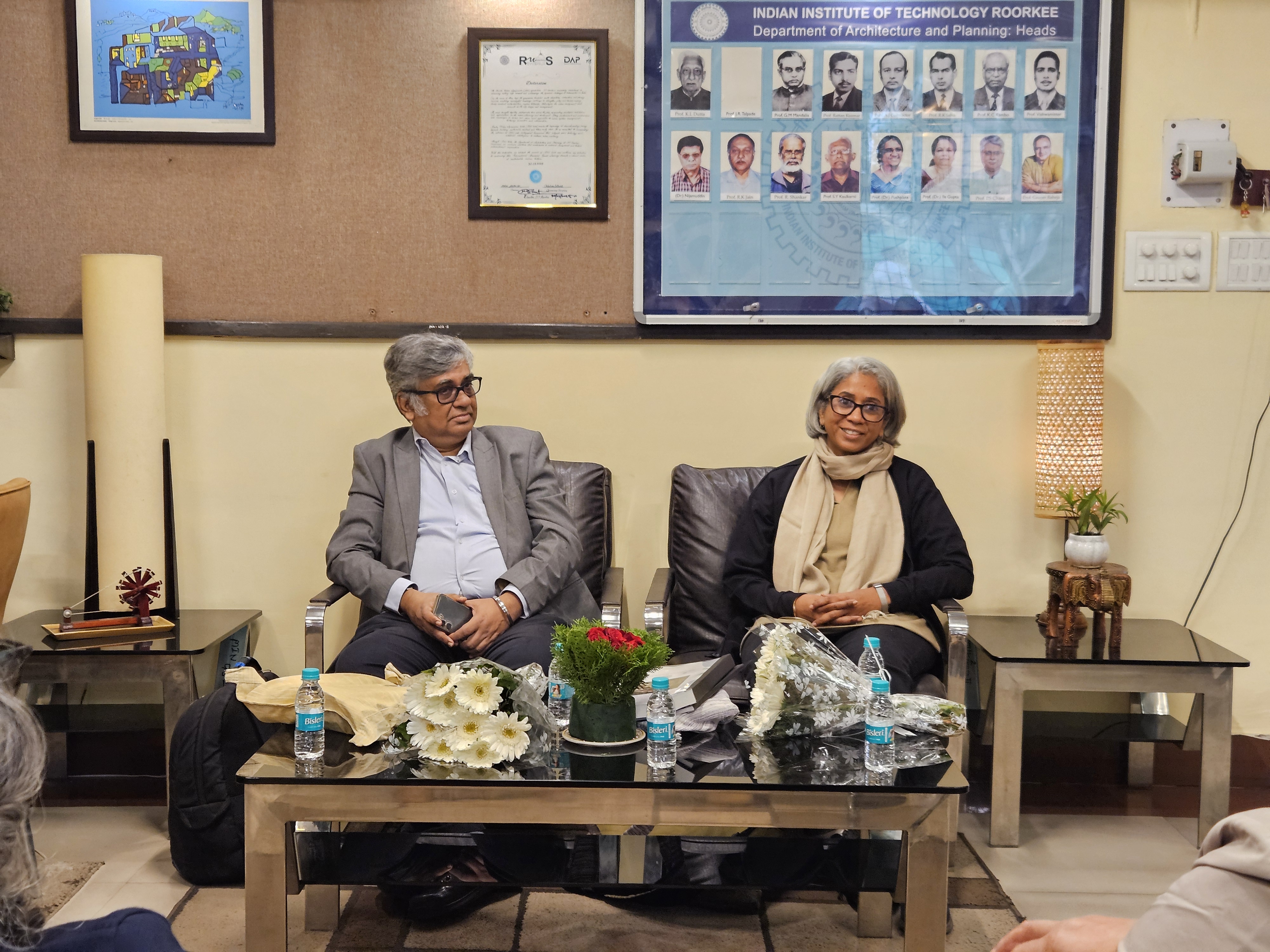
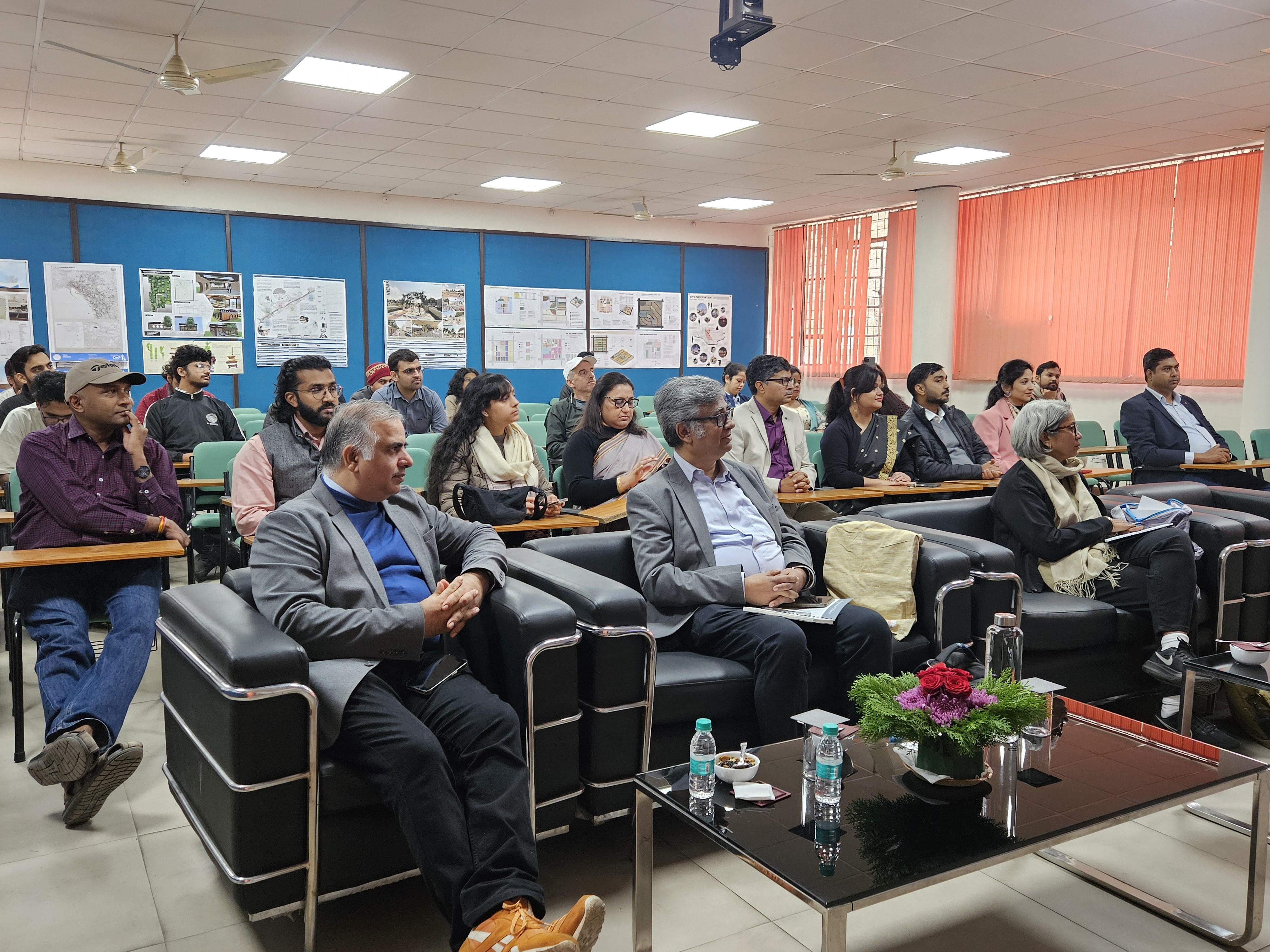
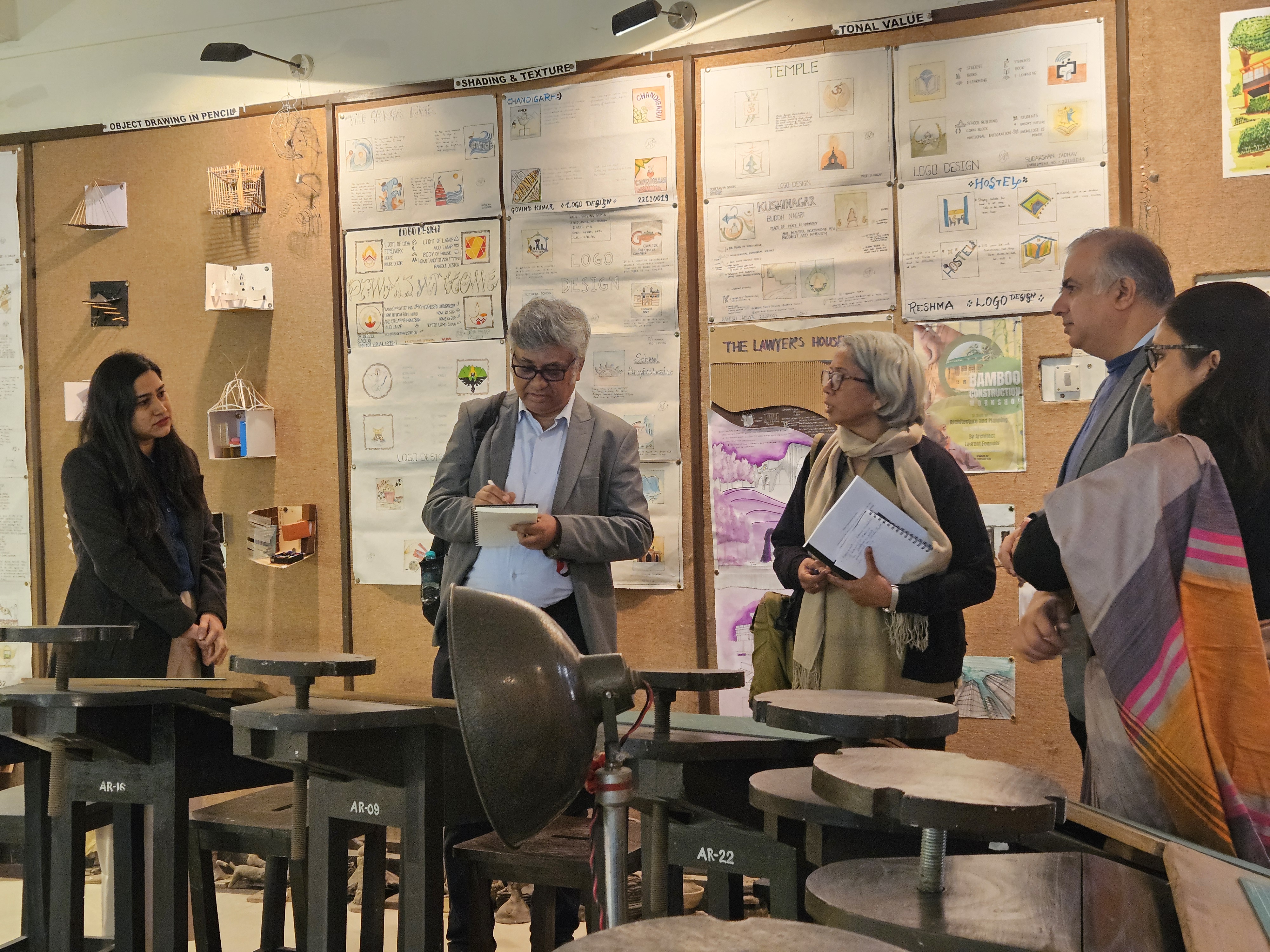
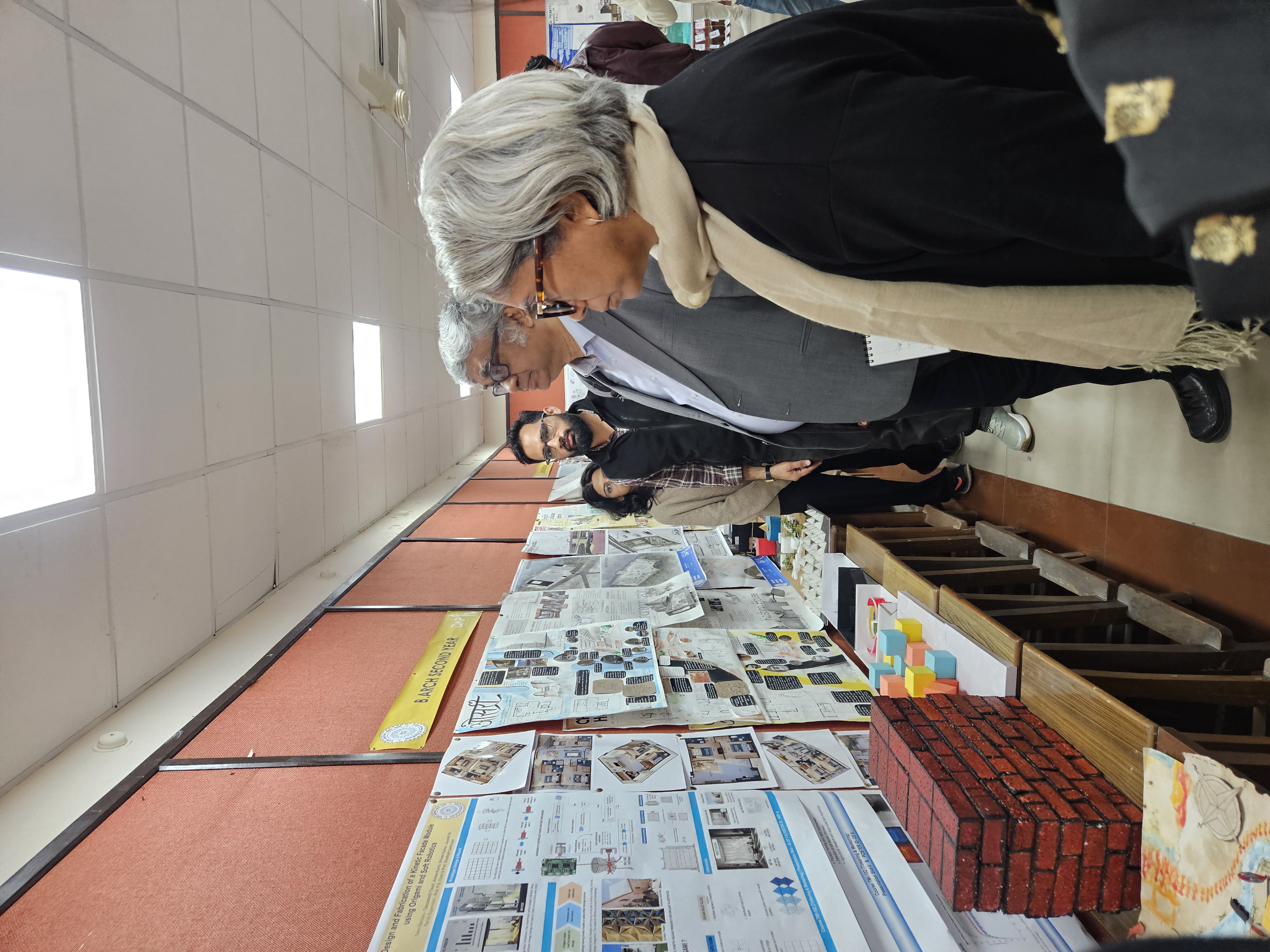
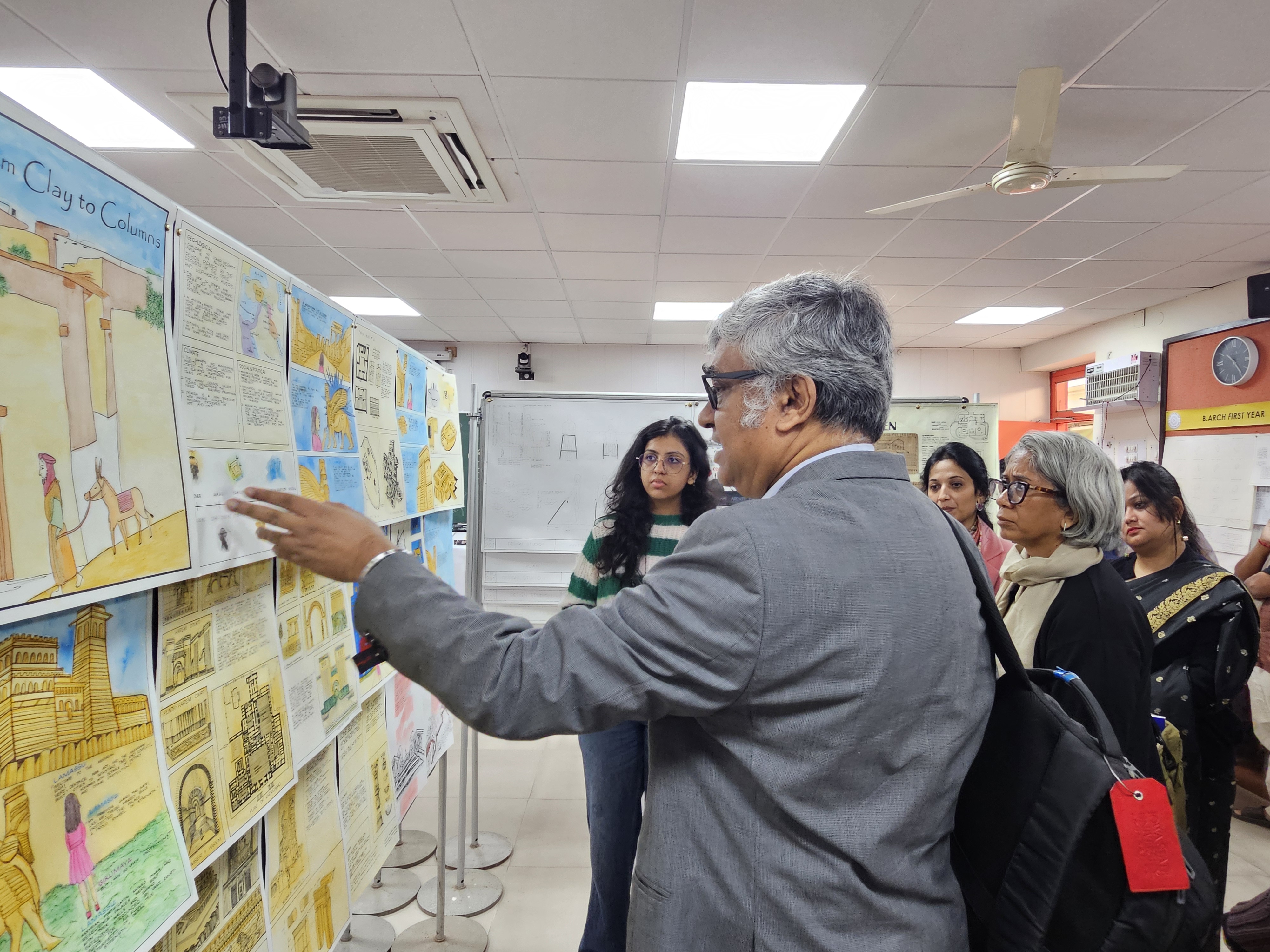
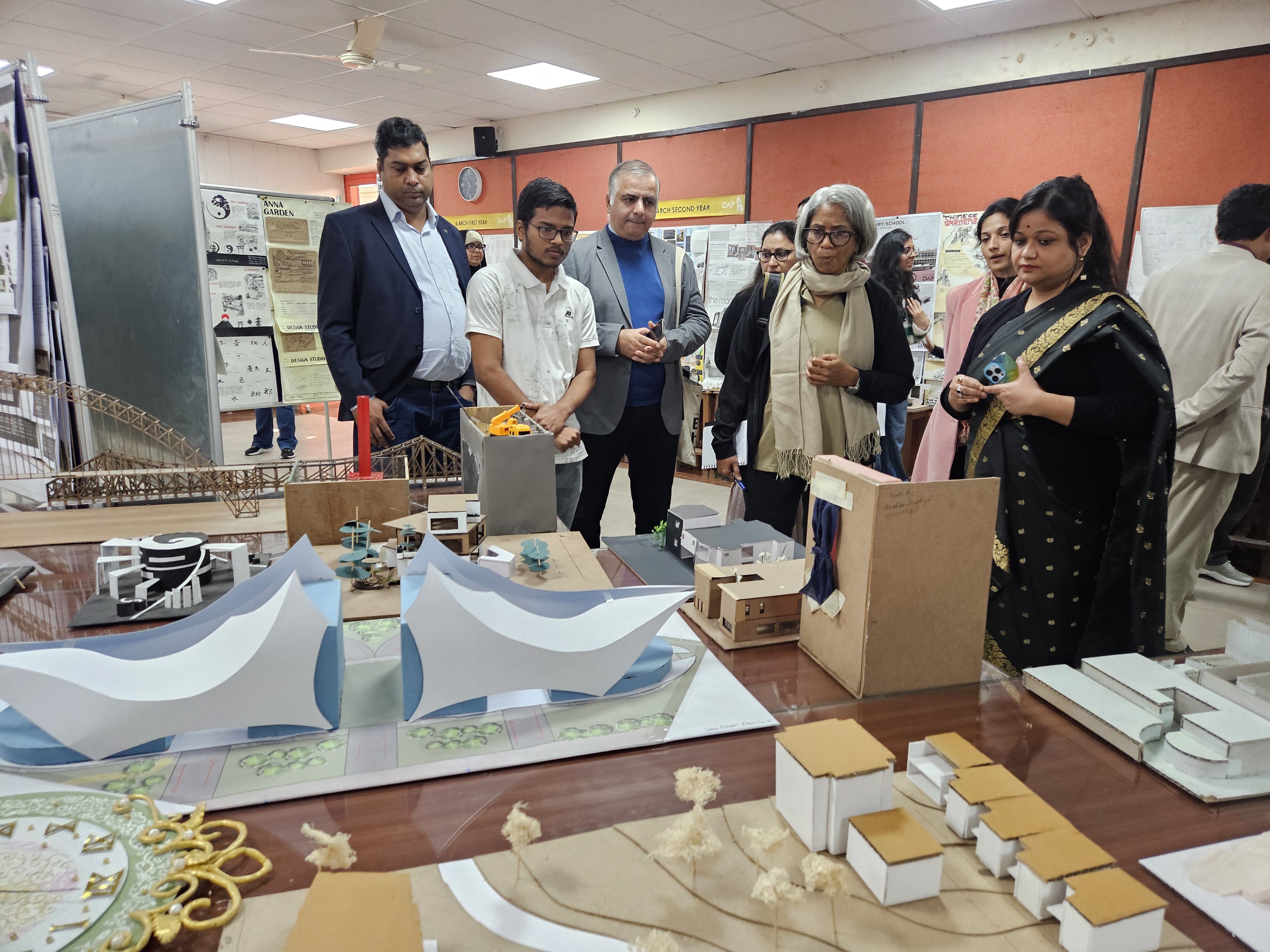
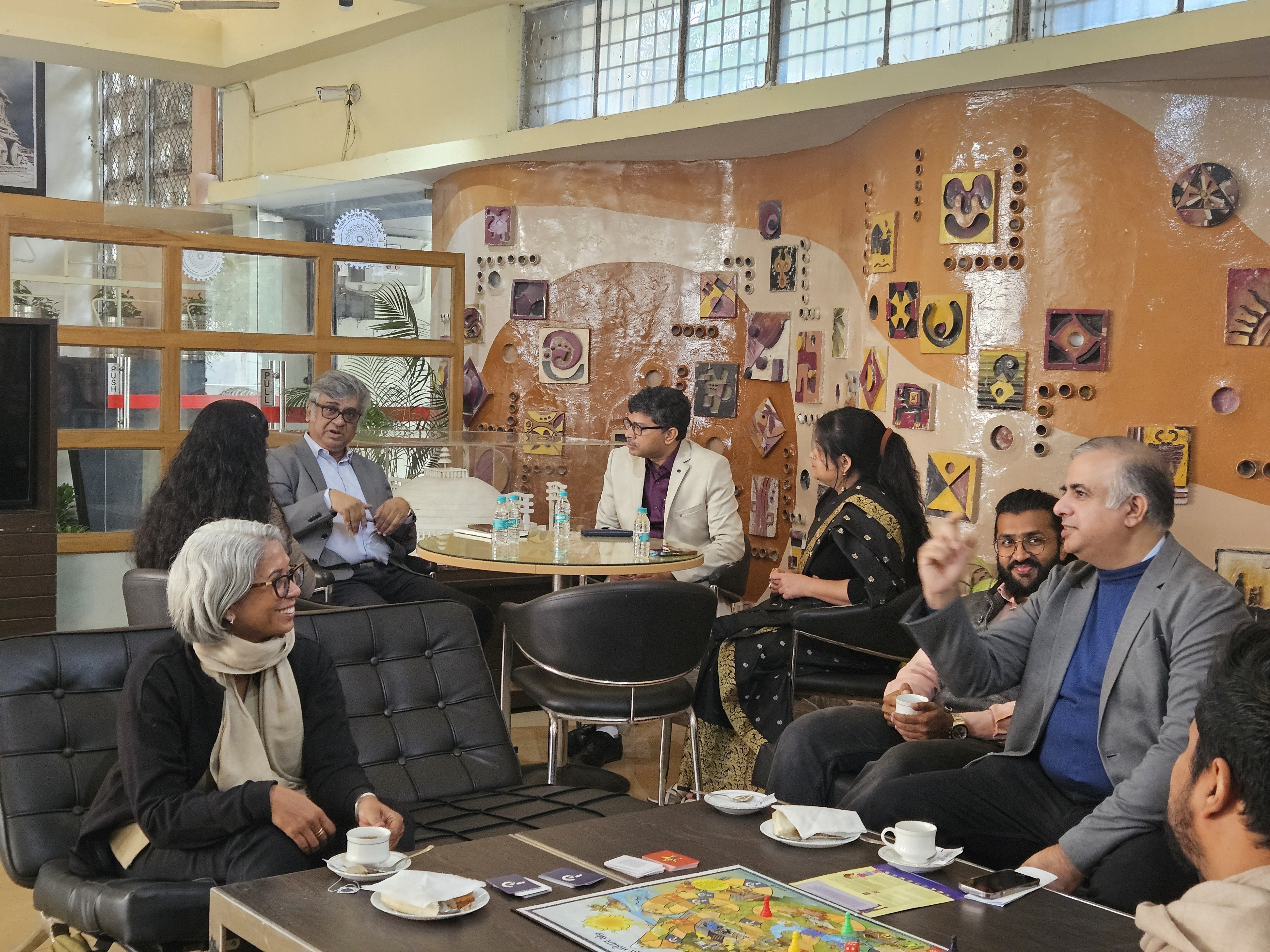
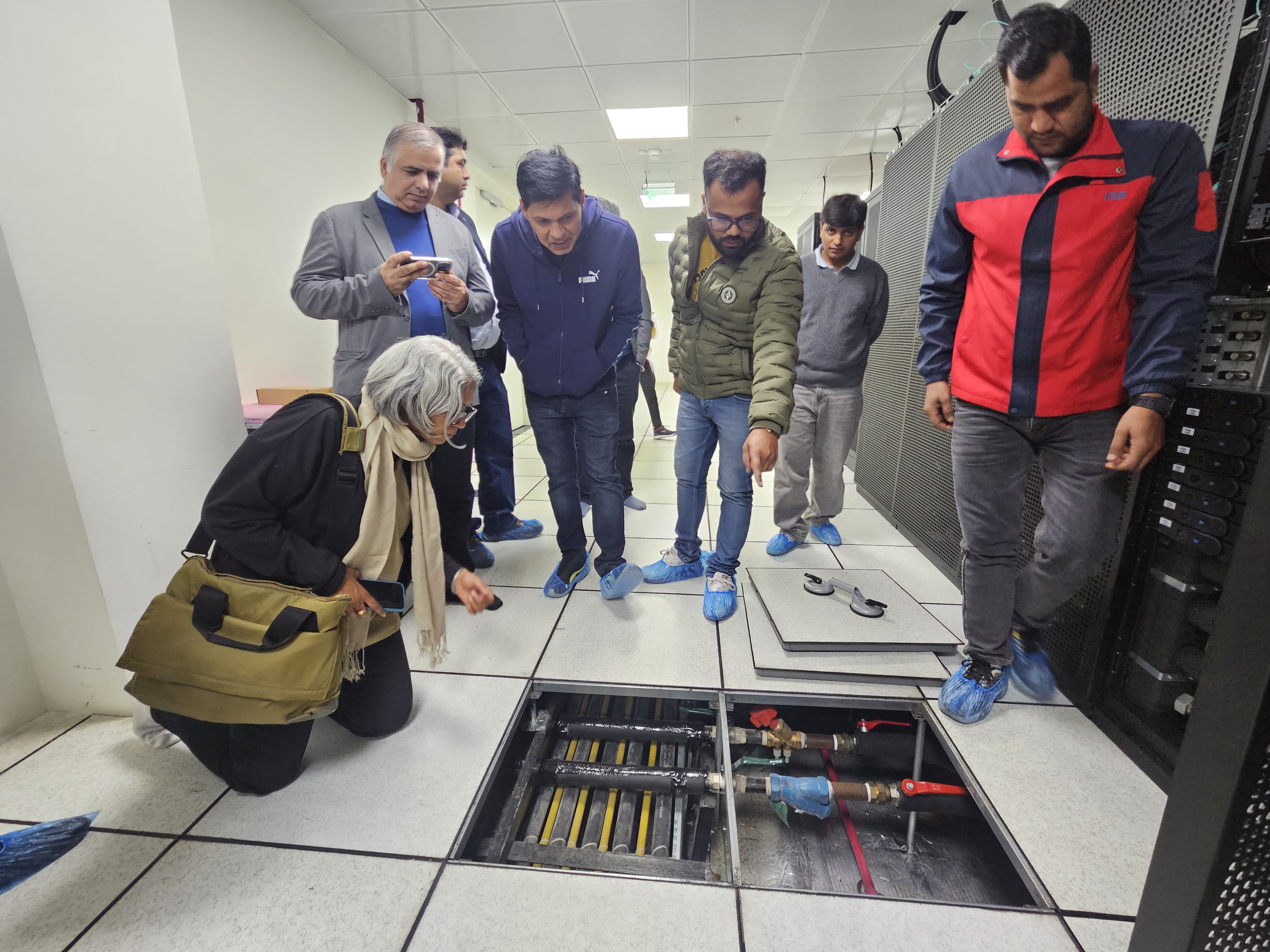
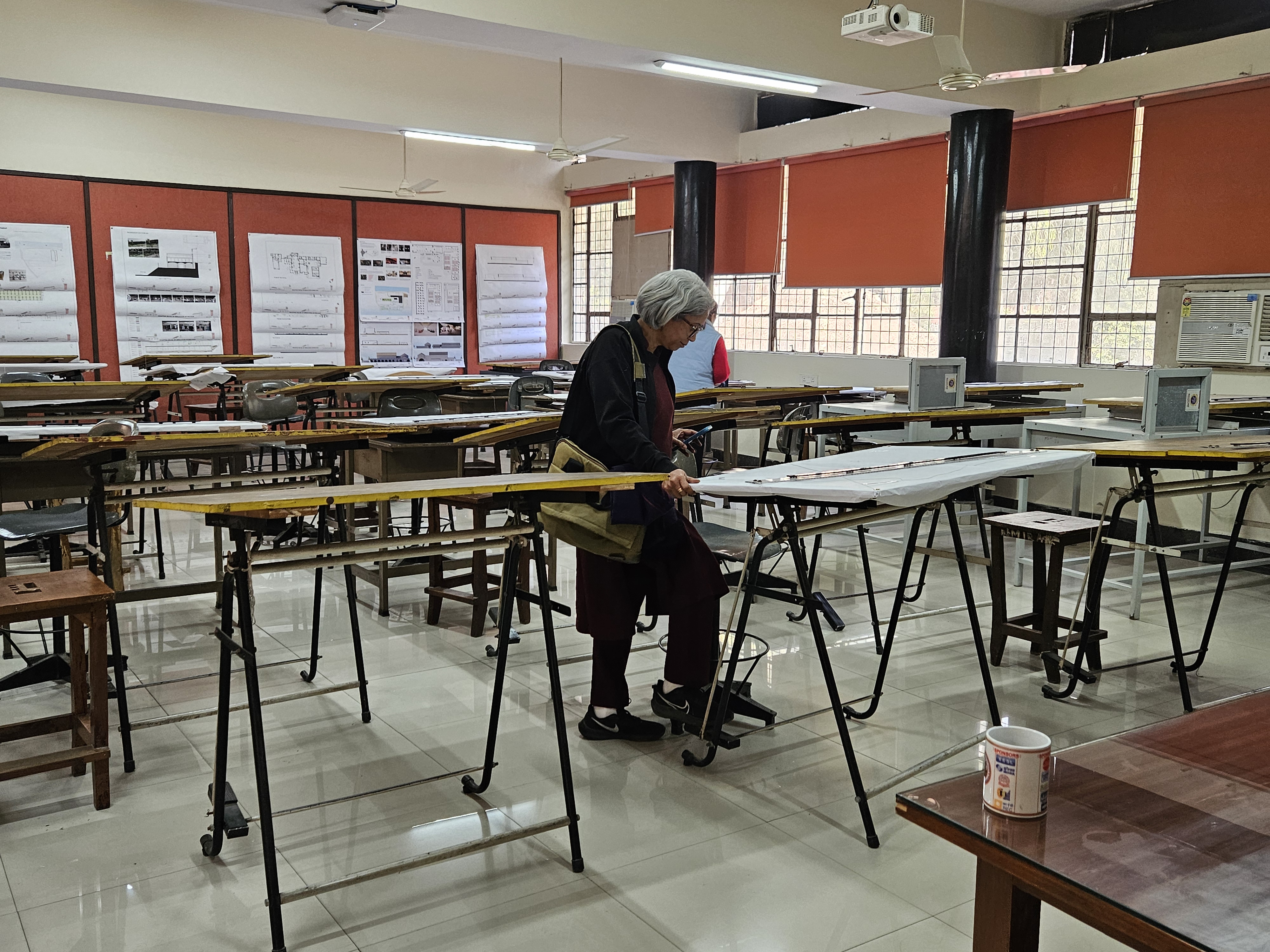
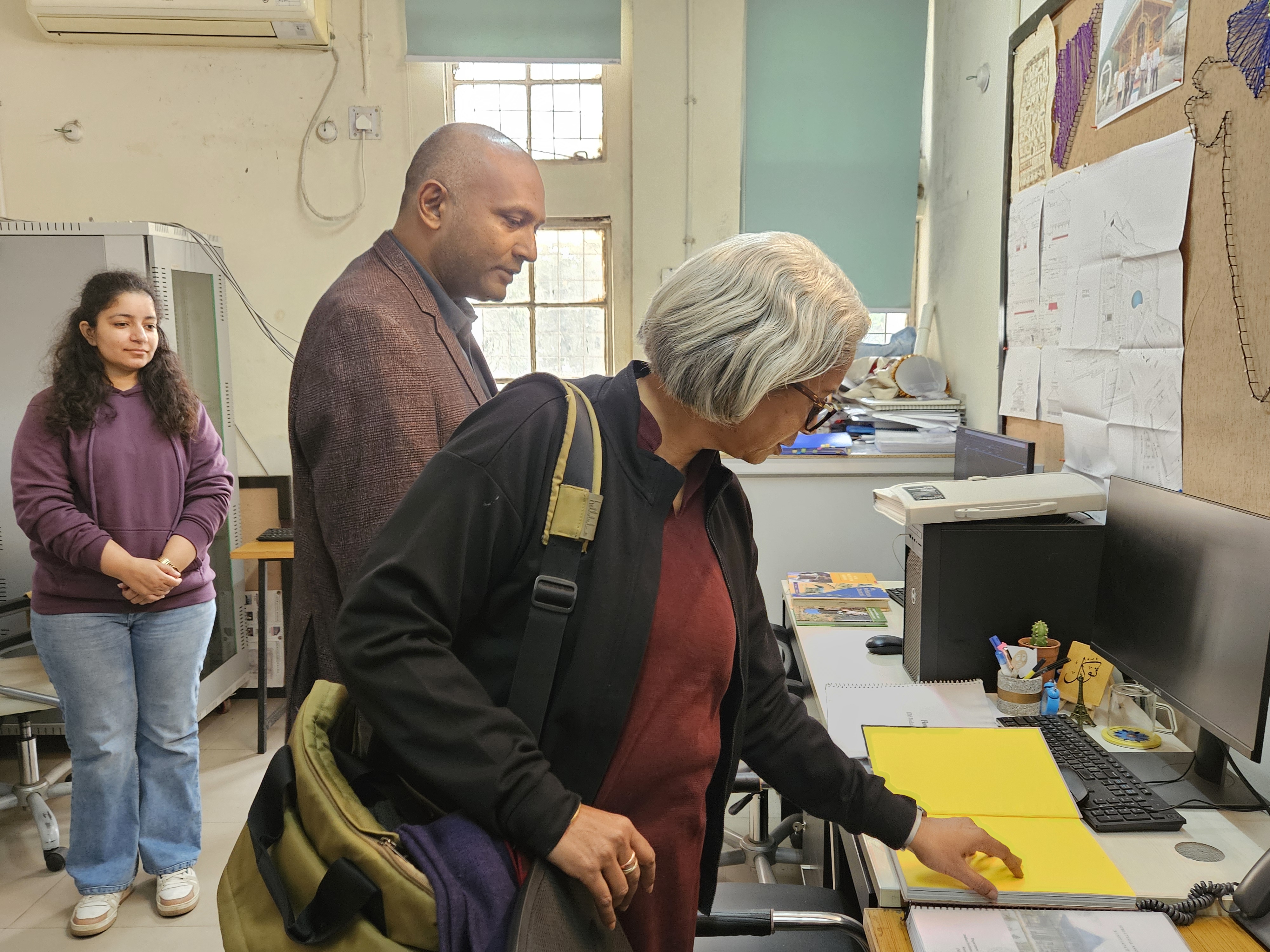















_page-0001.jpg)
